
































CONNECTICUT , MASSACHUSETTS & RHODE ISLAND
vol. 4, no. 2 Fall/Winter 2024 ISSN 2766-5011 PRINT; 2766-502X ONLINE
99 Bissell Road, Williamsburg, MA 01096 • phone: (413) 268-3302 • communityhorse.org
Community Horse is owned and operated by Community Horse Media LLC and is an all-breed, all-discipline equestrian publication for Connecticut, Massachusetts, and Rhode Island.
© 2024 Community Horse
All rights reserved, including the right to reproduce this magazine or portions thereof in any form without prior written permission.
publisher
Stephanie Sanders • steph@communityhorse.org • (413) 268-3302
editor
Kathaleen Emerson
public liaison
Sally L. Feuerberg . (203) 339-0357, sally@communityhorse.org
feature writers
Nicole Birkholzer, Chrissy Capacchione, Sally L. Feuerberg Jennafer Maselli, Geena Monahan, Stacey Stearns
contributors
Lindsay Ditullio, Joanna Jodko, Erik Nelson


the fine print
advertising & questions
main office • (413) 268-3302 • info@communityhorse.org
Jane Fitzwilliam • (802) 376-9449 • jane@communityhorse.org
© Samuel Perales

The views and opinions expressed are not necessarily those of the CommunityHorse staff or independent contractors, nor can they be held accountable. CommunityHorse will not be held responsible for any misrepresentations or any copyright infringement on the part of advertisers. CommunityHorse will not be held responsible for typing errors other than a correction in the following issue. All letters addressed to CommunityHorse, its publisher, editor, and staff are assumed for publication. Photos, stories (verbal or printed), notifications, news items, and all other material that is submitted, including all materials and photos not specifically solicited by CommunityHorse, are assumed to be legally released by the submitter for publication. CommunityHorse assumes no responsibility for damage to or loss of material submitted for publication. Reasonable care will be taken to ensure the safety and return of all materials. Community Horse is printed with soy-based ink on recycled paper.

I enjoy being part of the equestrian community. Every summer I grow several unique varieties of pumpkins using aged pony poo. After all, Miniature horses Peanut, Pequeniño, and Little Rasta Man

provide a never-ending supply. Pumpkins love growing in horse manure. This summer there’s been plenty of rain, so I hope to have a good harvest. In my best growing season, the harvest was 80 big pumpkins!
What does this have to do with community? After each pumpkin harvest, I sell the pumpkins for whatever friends and acquaintances would like to pay. All the money goes to the Emergency Equine Relief Program (EERF) run by the Massachusetts Society for the Prevention of Cruelty to Animals (MSPCA) at Nevins Farm in Methuen. For horse owners going through a temporary period of financial insecurity or a family crisis, the EERF acts as a safety net. The program takes a proactive approach, working to keep horses and people together. The EERF is a resource for those who need short-term help feeding or caring for their horse(s) and can also assist owners who are facing end-of-life care for their horses and need assistance with euthanasia. To learn more, visit mspca.org/programs-resources/petcare-assistance/equine-assistance-program/. Let us know what you enjoy doing in our equestrian community. All letters will be entered for a chance to win a $75 Cheshire Horse gift card! Write to: steph@communityhorse.org.
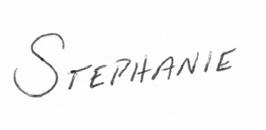
Let us know your thoughts!
We’ll enter you to win a $75 Cheshire Horse gift card!
All letters received by February 5 will be entered in the drawing. Send your letters to: letters@communityhorse.org or CommunityHorse, 99 Bissell Rd., Williamsburg, MA 01096

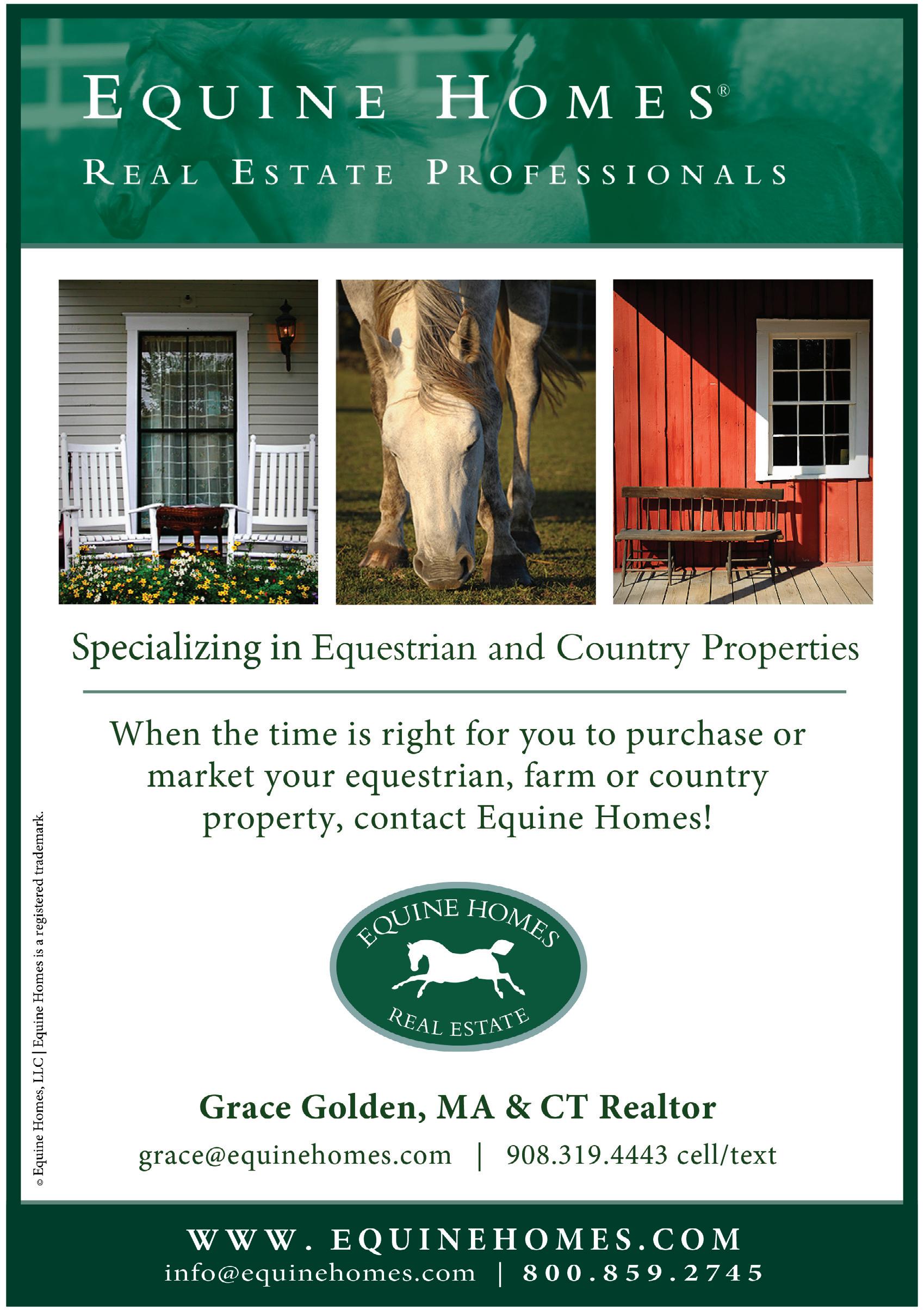
To the Editor:
Thank you to Community Horse, Sally Feuerberg, Suzanne S. Cox Testani, and Kat Weeghman King for the feature and all your kind words! [Community Horse Spring/Summer 2024] I’m so incredibly blessed to have a career that is also my passion. Horses have not only brought tons of joy to my life but also so many wonderful people.
Montana Calloway Bychurch, Newtown, Connecticut


To the Editor:


We were thrilled to be interviewed by Community Horse and share how Keystone Sporthorses got started and why I’m so passionate about our breeding program!
Amanda Tourtellot, Keystone Sporthorses Danielson, Connecticut
To the Editor:
Congratulations to our youth team members Ryder Mills Frick and Klara Punsalan for being highlighted in Community Horse [Spring/Summer 2024]. Thank you to Community Horse for sponsoring these awards and for your commitment to the Connecticut, Massachusetts, and Rhode Island horse communities.
Kate Rand, membership secretary Southern New England Horsemen’s Association
To the Editor:
What a real pleasure it was to interact with writer Sally Feuerberg for her feature on Montana Calloway Bychurch. [Community Horse Spring/Summer 2024] Sally was
gracious, eloquent, and knowledgeable when discussing everything equine. We even reminisced about taking riding lessons in days of yore at the very same farm. Thank you again for publishing this wonderful article on the magic of Montana and King’s Bridge Farm.
Suzanne S.Testani, boarder at King’s Bridge Farm Newtown, Connecticut
To the Editor:
Thank you to writer Sally Feuerberg for your talent and skill in reporting and writing for this jewel of a magazine. My life with horses has been so enriched by it.
Elisa Tebbens, via email
The Connecticut Dressage and Combined Training Association (CDCTA) is grateful to Community Horse for supporting our organization. We’re fortunate to have such a positive regional publication that reaches equestrians. The free Community Horse Youth Awards are one of the best parts of our schooling shows — the junior riders are always thrilled to receive the award and ribbon! It’s a particularly great lesson to help young riders understand the importance of sportsmanship and horsemanship even when the blue ribbon goes to another competitor. Thank you for all that you do.
MaryAnn Smith, CDCTA interim president
To the Editor:
I’m so proud to be featured in the Spring/Summer Community Horse. This publication is such a tremendous local resource for the New England horse community.
Jenny Cournoyer, Grey Mare Magna Wave
To the Editor:
I wanted to let you know I received my copy of Community Horse. I love the design and layout of the publication. Well done! Diane Jones, via email
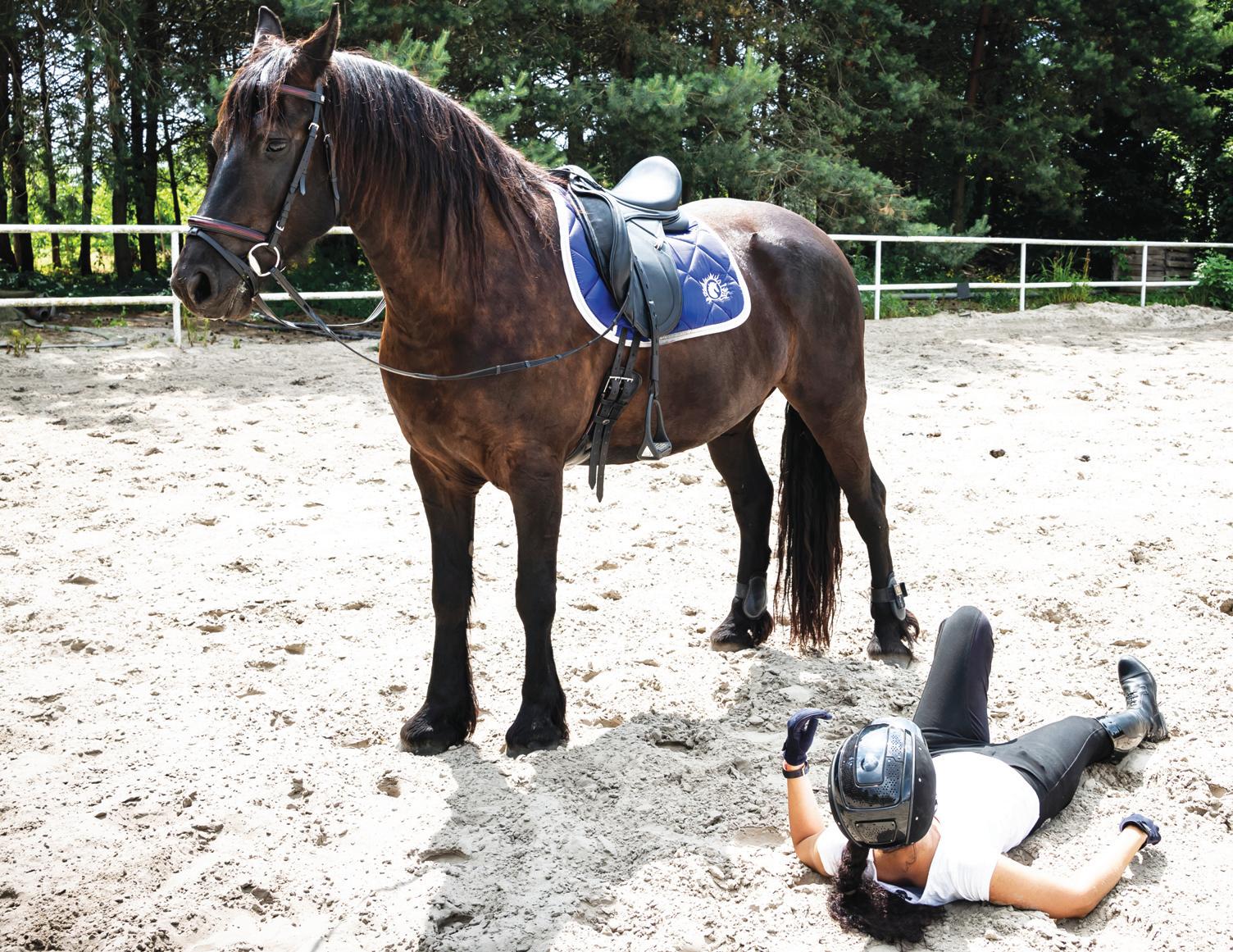
There are certain things people simply don’t like to think about: taxes, death, and insurance, for example.
We go about our day-to-day routines with our horses, many of us wrapped in a bubble of “It won’t happen to me,” which only makes it an even more brutal intrusion when the unthinkable does happen.
Maybe it’s human nature to cringe at thinking ahead to the worst, or maybe it’s weighing financial output against calculated risks, but whatever it is, it can interfere with you protecting yourself adequately in case of an emergency.
Properly insuring your horses and your farm is one of the most important things you can do for yourself and your family.
For a commercial facility, insurance is an important part of being in business. For the average horse owner, those of us with one, two, or three equines in our backyard, insurance may be something that gets pushed aside.
Indeed, many of us aren’t aware of just how many types of coverage are available, or what all of the options are. Sure, most of us know about mortality coverage.
But what about major medical? Loss of use? Personal liability?
Think your homeowner’s insurance will cover that last one? Better check that policy before you need to use it.
So are you one of the ones still thinking “It won’t happen to me”? Let’s take a look at some potential scenarios.
You aren’t a commercial farm or operation, just an enthusiast. You love to show and have been successful at it for years. You load up your horse to take him to a local show. Prince has always been a nice, calm horse, bomb-proof.
You arrive at the show, offload him, and tie him to the side of the trailer when suddenly a neighboring trailer’s awning is sent flying by a huge gust of wind. Prince explodes, tears himself loose from your trailer, and takes off through the grounds. Along the way, he knocks down a show mom and cuts his leg. The show mom has to be taken to a hospital because she hit her head when she fell, and Prince requires three stitches in his leg. You’re stunned
when you receive a bill from the show mom for her hospitalization and now have a vet bill too. Who’s responsible for the damages?
Well, actually, you are. Even though the wind knocked loose someone else’s awning, it was your horse that tore through the grounds. And now those bills are being presented to you.
Everyone who owns a horse should purchase a liability policy for it.
Stand alone liability policies for personal horses start at $40 per horse. Find a homeowner company that will cover personal horses on and off premises. Some homeowner companies will cover up to five horses.
If the number of personal horses gets too great there are companies that will write a hobby farm policy that will compete costwise with a homeowner’s policy. This is a better insurance strategy, because if you have the need for a liability umbrella policy, that umbrella will also cover your horse exposure that’s covered by the underlying policy, bringing all of your protection into play.
Liability umbrella policies increase the coverage limit you have on any policy that the umbrella policy goes over. So if you have a homeowner’s or farm policy with $1,000,000 of liability coverage and you add a liability umbrella for $1,000,000 you now have $2,000,000 to settle any liability claim covered by the homeowner’s or farm policy. Just keep in mind that if a situation is excluded on the homeowner’s or farm policy it’s also excluded on the umbrella. If the situation is covered by the homeowner’s or farm policy it will be covered by the umbrella as well.
Limits of liability on a homeowner’s or farm policy start at $100,000. The option for higher coverage amounts are available at $300,000, $500,000, and $1,000,000. If you want more than $1,000,000 you can purchase a liability umbrella policy in $1,000,000 increments up to $10,000,000.
Now, regarding the stitches Prince needed after his romp through the grounds, unless you have a major medical policy on him, and very likely even if you
do have one, you’re paying that bill. Liability won’t cover damages to your horse: it covers only damages caused by your horse to someone else.
For damage to your horse, you’ll need a major medical policy in place. This type of policy has a deductible and offers major medical coverage for up to a certain amount per year in protection for your horse. This covers diagnostics, and reimburses you for your vet bills . . . a very important distinction here: reimburses. Many people are under the impression that they just submit the bills to the insurance company, but it doesn’t work that way. You have to pay your bills first and then you get reimbursed for them, minus any deductibles.
Another thing to bear in mind with this scenario is that the event you attended probably also carried insurance. So you think, “Why wouldn’t the event itself cover this accident?” Well, event coverage is a tool designed to protect an event holder from lawsuits from third parties. Though the event holder would be covered if the show mom sues it, you won’t be.
Little Susie is taking lessons at your barn. She’s riding Ranger, a longtime school horse. Ranger’s getting a little long in the tooth, though, and lately has taken to stumbling. While walking through the parking lot to the outside ring, Ranger stumbles. Susie hasn’t been paying attention and goes off over his shoulder, causing him to step sideways away from her. Unfortunately, he bangs into the fender of her mother’s car and dents it. Susie is crying and holding her wrist, so to the hospital she goes for x-rays.
A commercial operation should have in place general equine liability along with care, custody, and control policies at the very minimum. Commercial liability insurance protects the policyholder against lawsuits from your actions or inactions causing injury or damages. Usually it will cover up to $5,000 in medical payments without lawsuits.
That’s an important distinction: with-
out lawsuits. In the case of Susie’s accident, not only is her hospital trip to x-ray her wrist covered, but the dent in the fender of her mother’s car is too. If Ranger had sustained an injury in all of this, however, he wouldn’t be covered unless he had his own medical coverage policy in place.
You take good care of your horses. You make sure they’re eating properly, are dewormed regularly, have vet care, and get good hay. Therefore, it comes as a shock when one of your horses starts colicking . . . and he doesn’t respond to traditional treatment. To your horror, the vet diagnoses a twisted gut, and you find yourself en route to Tufts. Your horse is only eight years old. You gulp, hand over your credit card, and watch the charges mount.
Colic is one of the most dreaded words a horse owner can hear. A horse is built with an internal schematic that’s a recipe for disaster. Many feet of intestine loop back and forth, packing its barrel full of gut. It can’t burp or vomit. Horses love to roll around on the ground, and will often eat things they shouldn’t. Now add humans and their artificial environments for horsekeeping and it’s no wonder that colic is such a common occurrence.
You can build in protection for your horse by purchasing policies specific to colic. Most companies offer some level of colic surgery within the mortality insurance. You can also purchase a policy specific to the care and treatment of colic, often up to $10,000 worth. And as anyone who has ever experienced this can testify, in an equine hospital you can reach $10,000 in a matter of days.
Alice and Peggy were out trail riding. Peggy was on a young horse, one that wasn’t too good about crossing water. They reached a small brook, and her youngster started to refuse. Peggy asked and asked him to cross, but the horse
refused every time. Alice was sitting on her old-timer to Peggy’s left. She was riding western, with an eight-foot set of split reins tied in a knot so she wouldn’t lose a rein when she dropped them on her horse’s neck. She was sitting quietly, waiting, with the reins hanging in a low loop below the neck. Peggy asked her youngster again, and that’s when he lost it. Wheeling to his left, he thrust his head beneath the neck of Alice’s horse . . . right through the loop of reins. Suddenly both horses were panicking and bolted through the woods, tied together. Peggy and Alice hit the ground and sustained injuries; the horses sustained injuries too. Fortunately, all the injuries were minor. There are a couple of things that could happen here. Peggy’s homeowner’s insurance might cover damages to Alice and her horse. Homeowner’s is supposed to cover damages caused due to negligence by the policyholder. If they were riding on Peggy’s land, she’d have a chance at having the claim honored if her company hadn’t specifically excluded horses. Otherwise, Peggy had better hope she had a personal liability policy on her horse, because she could be held liable for the damages to Alice and to Alice’s horse. Many of you are probably wondering why your homeowner’s wouldn’t cover accidents like this one. After all, it would cover liability from pets, if your cat scratched the neighbor’s child, say, or your dog gnawed their rare oak deck furniture. So why wouldn’t it cover equine damages?
The focus of farming has shifted from such agrarian activities as cattle/ animal raising and crop farming to now include more equine-related activities. The role of the horse went from the farm work animal to the backyard pet, and can now often be found as part of a business venture with significant changes in liability exposures.
Equestrian insurance companies have adjusted and refined the business liability coverage on its special farm package contract to address the varying liability needs often found in the horse world. Horse
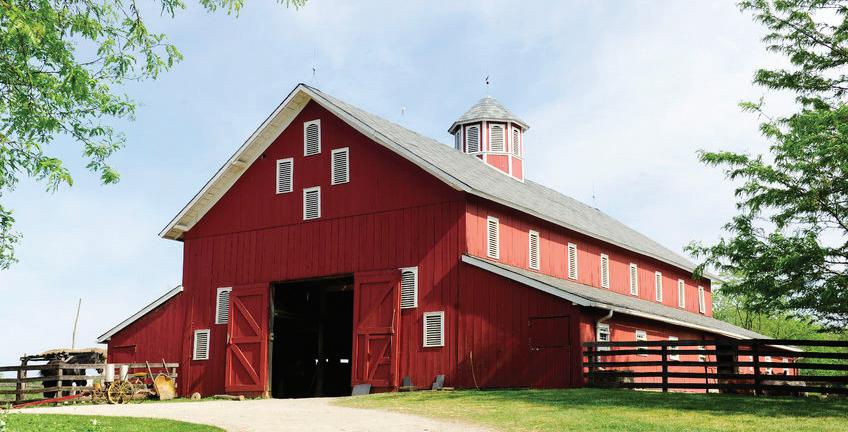


boarding, riding lessons, off-premises rides and carriage activities, horse sales, breeding operations, pony rides, horse training, and many more are now common activities found within the horse community, and are, as such, businesses.
The personal liability of the standard homeowner’s policy most often excludes commercial/business/farm activities from their contracts. Some carriers specifically exclude any horse exposure. A company that allows liability for personal horses will usually limit the number of horses owned from to one to four.
As we all know, horses have a mind of their own, and people take their gentle manner and kind eye as a sign that nothing could ever go wrong around them.
Sudden noises, a barking dog, kids running through the fence to see the pretty pony, or a gust of wind can send a fearful gentle giant fleeing. These are things that your standard homeowner’s contract may cover, but you want to know those specifics before something happens, not after. Be sure to check with your insur-
ance carrier to assure you have the right coverage for your specific equine needs. A dollar spent now could save you thousands later.
You own a small commercial barn and you have equine general commercial coverage in place. You’re trailering your own horse to an event and your neighbor, John, asks you to take his horse too. You have room in your trailer, and John’s always been a good neighbor, so you say sure, and you don’t charge him for it.
Along the way, you get cut off by someone, causing you to swerve hard to the right. A trailer wheel drops into a ditch and flips the trailer. John’s horse has to be euthanized because of the injuries he sustained. John presents you with a bill for the value of his horse, some $25,000.
This is a case in which you should have had care, custody, and control insurance in place. This type of policy endorsement provides the farm owner a
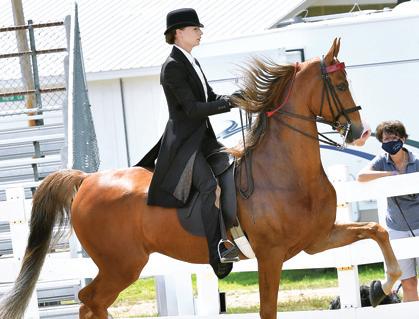

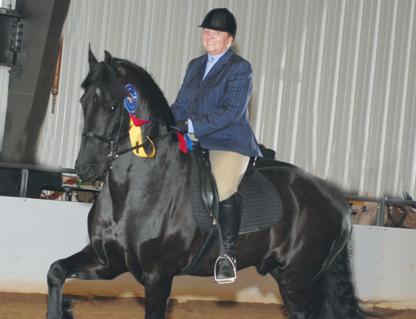

layer of protection. Care, custody, and control (CCC) is an endorsement added to a farm’s commercial equine liability policy and not a policy itself. It is issued to boarding/training/riding stables to protect the business owner from claims brought against them from clients whose horse is injured, gets sick, or dies because of negligence or a mistake on the farm owner’s (or employee’s) part, up to the limit of the CCC endorsement.
The CCC endorsement, as part of the farm’s commercial equine liability policy, pays amounts you are legally obligated to pay to your clients for the death, injury, or theft of horses, and defense costs for suits brought against you, for horses in your care, custody, or control.
One very important concept for the farm owner is that CCC coverage does not apply to horses you own or lease. The stable owner’s horses typically are covered by the farm’s commercial equine liability/ mortality policy. The commercial equine liability policy will respond if the farm’s owned horses cause property damage or
bodily injury to a third party that results in civil suit against the insured.
Additionally, a CCC endorsement does not cover you if a client’s or thirdparty’s horse in your care injures someone else or damages their property. The CCC endorsement only protects you against claims of damage to, or loss of, the client’s horse itself. The client is responsible for any damage or injury his horse causes to others and should carry his own private horse owner’s equine liability policy.
Premiums for the CCC endorsement are generally based on the average number of horses in your care, or the total number of horses in any one barn, whichever is greater.
The trailering scenario is a common question in the horse community, especially for smaller operations. One gray area of this particular question is neighbor If John keeps his horse at his farm and walks it over to put on your trailer, is he a client? Technically CCC will not extend to a farm owner who is shipping non-owned horses from other barns, as the coverage is
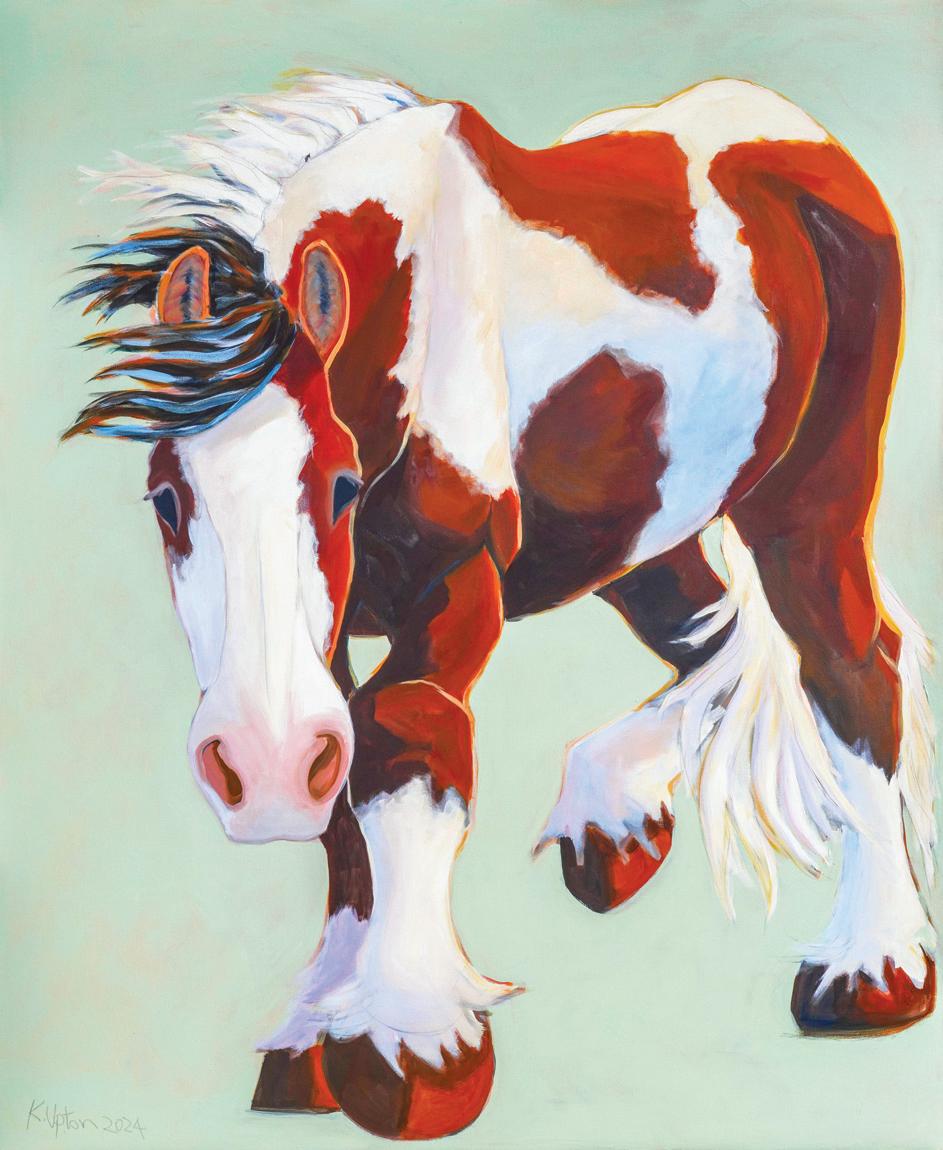
for existing clients’/boarders’ horses at the farm’s location as it is part of daily farming operations. In this situation, it’s strongly suggested you get a signed release from the horse’s owner, drafted according to the state’s guidelines, relieving you of liability and spelling out the details of shipping the horse.
Most CCC policies will cover incidental transportation of horses in your care. Incidental transit is typically defined as up to six trips of 150 miles or less per year. It’s always best practice to be honest and straightforward when filling out your insurance applications. Remember, the underwriter has the right to check your company records to verify the actual amount of business and trailering for others you do, so if it’s a busy part of your business, it’s recommended you get an additional trailering coverage policy.
CCC won’t provide coverage if your client’s horse is injured or killed in any manner that’s unrelated to the insured stable or transportation.
The Sixth Scenario Maria finally received her instructor’s license and wants to work as a freelance teacher. She doesn’t have a place of her own and doesn’t want to work for just one facility. Can she legally practice her trade now?
If Maria goes to work at a farm that has in place an equine general commercial policy, it should cover both employees of that farm and independent contractors. For added protection, she should purchase her own general commercial liability policy. This coverage will follow her no matter where she teaches. Shop around and ask questions. Ask about what the policy covers and what sort of deductibles it may have.
It’s a lot more affordable than most people think it is.
As you can see, insurance is a worthwhile investment. But what exactly should you get? Call around and talk to agents. Get advice to see what sort of coverage best suits you, get quotes, research companies.
Ask people who have insurance if they like their company. If they’ve ever had a claim, how well was it handled? Were they satisfied with the results?
As a rule of thumb, commercial operations should have — at minimum — a general equine liability policy and a care, custody, and control endorsement added to it.
If you have a horse that’s valuable, it would be to your advantage to have at least mortality insurance, as well as major medical and possibly loss of use.
You need at minimum a personal liability policy covering your horse. You also want mortality if the replacement value is more than you could afford out of pocket, and major medical if it is a competition horse, valuable, or your horse of a lifetime. The more you use your horse, especially if you travel with him, the more coverage he should have.
Research whether the equine insurance company can pick up your homeowner’s policy as well. Some companies offer policies for the barns and outbuildings associated with a farm, along with coverage for equipment. Having your insurance needs met through one company could streamline things if you ever have a claim.
When it comes to horses, you can’t be too safe. Be prudent: Protect yourself and your barn from serious financial repercussions. In today’s litigious society, it’s unwise not to take care of yourself and your family first.
Remember to shop around and ask questions, and don’t be afraid to compare companies until you find the right fit for you and your barn.
This type of policy is strictly for death. Check with your agent to verify the coverage period and the conditions attached. You must have a realistic assessment of a horse’s

replacement value. If a horse is valued much higher than is plausible, the company may send someone to appraise the animal. On average, this policy is available for foals on up to age 19. There’s usually some colic surgery and theft coverage built in. Premiums are assessed on a horse’s insured value, ranging from 3 percent on horses up to 15 years old to as high as 12 percent on horses 16 and older.
Some companies offer this in addition to the mortality insurance. MMS typically covers medical and surgical procedures, including diagnostics necessary as a result of accident, illness, injury, or disease. This coverage is available for horses aged six months up to about 15 years. Some companies offer a surgery-only addendum to a mortality policy, meaning that coverage would be for surgical costs, not diagnostic testing. Ask your agent for details. MMS coverage usually runs from $7,500 to $10,000. This type of policy is a must for anyone who does heavy competition with her horse.
A condition-exclusive policy, this covers strictly colic-related medical and surgical expenses.
This coverage is for horses that are injured or otherwise compromised such that they can no longer be used in the manner they were intended for. This loss of use may be the result of an accident, illness, injury, or disease. Coverage may pay up to 50 percent of the insured value; check with your agent. This coverage is available for select coverage only. Note: In some cases, the ownership of a horse is turned over to the insurance company upon payment of an LOU claim, so be sure to get full details from your agent about the restrictions and conditions of this sort of policy.
You can insure against specific events, such as fire, theft, wind, lightning, and accident. Some agencies will allow you to pick the coverage you want; others group them in tiers of protection.
This policy covers an owner in case of damage or injury caused by her horse to a third party. It does not cover things like someone riding your horse with your permission. You may purchase a policy from $25,000 up to $1 million. Coverage may be added to an existing mortality policy or be a stand-alone policy for up to five horses, with the ability to purchase coverage for more than that many. Everyone who owns a horse should invest in this coverage; many boarding stables are now making this a requirement.
This coverage is very important if you perform any commercial equestrian activities, such as boarding, instruction, training, breeding, and buying and selling horses. The policy can be augmented to provide on-premises coverage for independent trainers or instructors while acting within the scope of their duties at your operation. Be sure to have your agent explain exactly what’s covered, what sort of aggregate it carries (multiple incidents in one year), and what the maximum coverage will be. Also find out what other policies could be purchased with this one: perhaps Care, Custody, and Control (see below).
Consider this coverage if you board, train, or breed horses for others. If one of those horses is injured or dies while in your care and you are found negligent, this policy will provide for the medical care or replacement cost of the horse up to the coverage limits. Legal defense costs are also covered. This policy extends to trailering horses too, although there may be a range limitation in place, such as up to 100 miles from home or within the United States only. Every barn owner who has horses that belong to someone else should carry this policy.
Equine member organizations that would like to protect themselves can obtain this liability coverage. The basic policy provides coverage for several public event days during the year, and coverage for additional days is available. This policy helps to protect your group if you are
faced with a lawsuit by a third party. Defense fees, as well as property damage and/or bodily injury, are covered. This sort of coverage is a must for anyone who wants to hold public events. Many companies offer policies for one-day events too. Some of them will even cover the setup and break-down required for that event.
You can establish almost any degree of coverage you want, from Equine Commercial General Liability (ECGL) and CCC to coverage for your residence, structures, equipment, livestock, and more. Having all of your insurance needs covered by one company can eliminate the lag time incurred when several agencies must determine whose coverage applies to the situation. Ask your agent to explain the various packages. Most companies offer tiers of protection, for a homeowner with one or two horses, a private owner of several horses, or a commercial operation taking place at your residence. Make sure you have your equipment properly covered, as well as your buildings.




CENTERVILLE
508.428.0440
Mark.Sylvia@american-national.com
GREAT BARRINGTON
413.528.1710
Dominic.Sinopoli@american-national.com
NORTH ADAMS
413.398.5011
Kim.Perry@american-national.com
NORTHBOROUGH
508.393.9327
Jeff.Pichierri@american-national.com
PLYMOUTH
508.747.8181 | 508.998.0512
Andrew.Brodeur@american-national.com
Kevin.Sullivan@american-national.com
SOUTH DEERFIELD
413.665.8200
T.Viles@american-national.com
SOUTHWICK
413.569.2307
TheMasonAgency@american-national.com
TOPSFIELD
978.887.8304
Scott.Brockelman@american-national.com
Jason.Charette@american-national.com
WILBRAHAM
413.887.8817
Sean.Rooney@american-national.com
WORCESTER
508.752.3300
Thomas_Carroll@american-national.com
WEST GREENWICH
401.397.1050
Ashley.Johnson@american-national.com
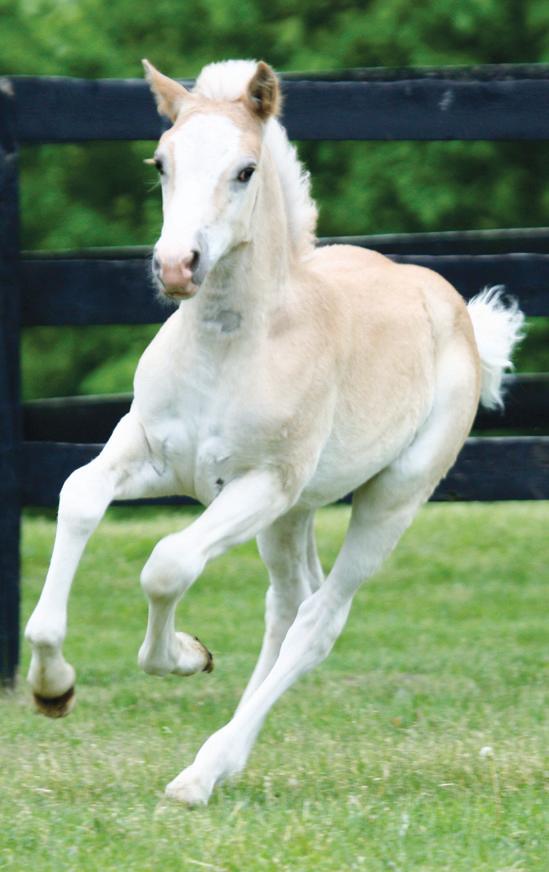



by Chrissy Capacchione
itch Hill Road in Uncasville, Connecticut, is home to Silver Brook Stables. The property rests atop 217 acres rich with agricultural and family history. Ownership of the property now resides with Lynn and Erik Nelson — third- and fourth-generation owners respectively. While
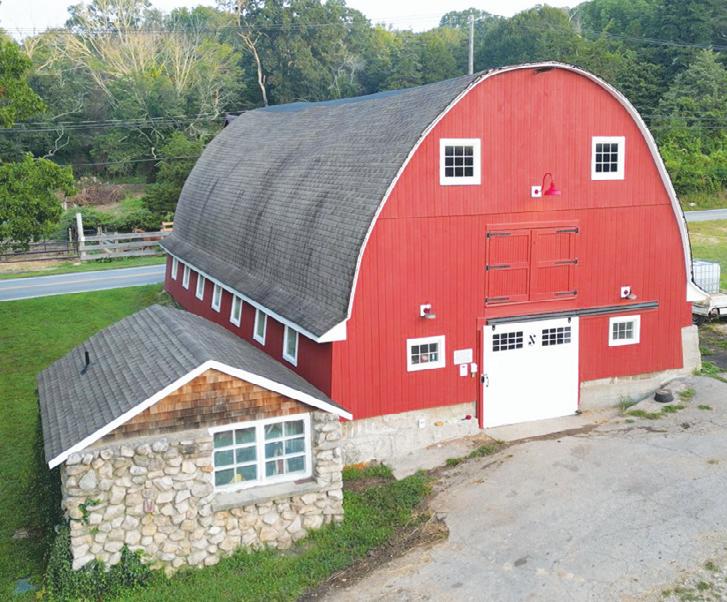
horses were always an integral part of Silver Brook’s early days working the farmland, today the Nelsons and their wonderful staff have made the property a place where horse owners can rest assured that their equine partners will receive the best of care.
Community Horse spoke with Lynn and Erik Nelson as well as Cassie Vidals, barn manager and lead instructor.
CH: Tell us a bit about the Silver Brook Farm’s generational history.
Erik: Horses have always been a part of Silver Brook. Up until 1940, Sigfrid Nelson, who named the farm, used horses for cultivation. Once tractors and other machinery became commonplace his daughter, Thelma, and his son, Conrad, almost always had a horse on the farm for both pleasure and practical purposes. My father, Lynn, is Conrad’s son and the thirdgeneration owner; I’m the fourth. In total, six generations of Nelsons have been a part of the property.
For most of its history, Silver Brook was a
dairy farm with a peak herd size of about 220 cows. It was quite successful and in 1972, Conrad, along with his wife Marion, earned the Governor’s Trophy for exceptional achievement in dairy farming and were awarded the title of Dairyman of the Year by the New England Green Pastures Association.

The primary crop grown was corn, which was harvested as silage for the dairy.
In 1990, Conrad and Marion semiretired and sold their remaining herd of Holsteins. However, silage production continued, and Conrad, alongside his son Wayne, continued his farming career by raising and feeding around 120 heifers each year for a local farmer. They fully retired in 1999, after which they switched crops from corn to hay.
In 2019, my father and I, with much help from other family members, sought to revive the historic property and give it a purpose. We converted the calf barn to a horse stable, fenced off the hay field into paddocks, and replaced the pole barn with an outdoor riding arena. We also converted the house on the property to a short-term rental, which can be used by those seeking riding lessons or looking to spend time in southeastern Connecticut.
CH: Do you have a favorite memory of Silver Brook Farm?
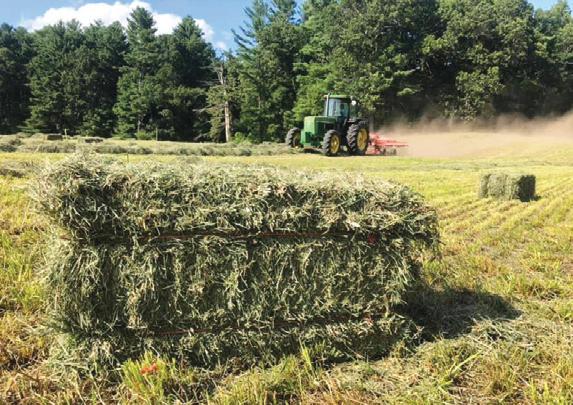


We provide consistent quality hay year after year! We’re hard-working professionals with generations of experience and knowledge in crop production and customer service to the benefit of you and your animals.
Small & Large Square Bales . Large Round Bales . Wrapped Round Bales
Timothy . Timothy/Orchard Grass . Orchard Grass/Alfalfa . Alfalfa
Nutrient analysis of our hay is available!
Pleasant View Farms has a full-time equine specialist and nutritionist who can assess your individual horse’s needs and make recommendations on the most beneficial feeds.


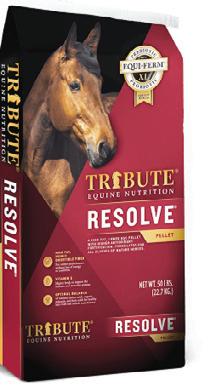


We carry a full line of Tribute Equine Nutrition products as well as Kalmbach Feeds for all classes of livestock.
Bagged Wood Shavings & Bedding Pellets

Premium kiln-dried bagged shavings in fine, medium, and big flake sizes. Wood pellets. Hemp Bedding.
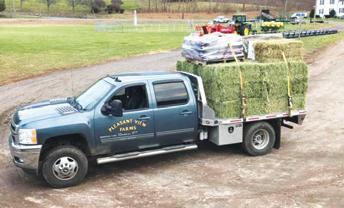
Wheat Straw & Rye Straw
Square and round bales.
Locally raised beef.
Delivery

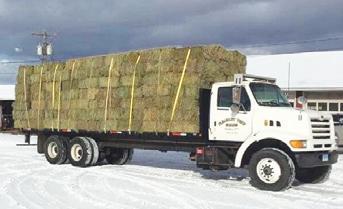
Lynn: For me, it’s not one memory, but all those made during the holidays in general: Christmas, Thanksgiving, and the Fourth of July. These holidays would bring all our extended family and friends to the farm, with plenty of jokes and laughter, and made it a special place. These days we continue that tradition with an annual Farm Day held in July or August.
Erik: This is a hard question, because “the farm,” as we call it, was so many things growing up. In the spring, it was a flurry of preparation and life — fields needed plowing, tractors needed fixing, and crops needed planting. In the summer, it was a place for bonding, fresh food, long days, and a second home. In the fall, it was a place of harvest, hunting, and beautiful sights. And in the winter, it was a place of celebration, relaxation, stories, and coffee. All year, it was a place for family and friends to gather, and we are working to keep that tradition alive.
If I had to pick a favorite memory, it would be the time my grandfather, in a
rush to bale the last of the hay before rain arrived, rode by the family on his tractor laughing and disregarding the hay chaff that had caught fire on top of the baler. He just kept on baling the hay, and we kept on stacking it. It was during those few days each year that we affectionately called him the “hay lord,” and on those days he had a one-track mind.
CH: What has your experience with horses been like throughout your lives?
Lynn: As a kid, I was more into motorcycles and cars. My older sister, Judy, had a pony, but I would find myself on the ground more than on its back. I’ve started riding again and have a draft cross named Stetson. Western trail riding is my preference — slow and easy.
Erik: Growing up, my grandfather had a pony named Sugar. She was temperamental and would bloat her gut when tacking her up. Once I was in the saddle, she would suck her gut in during a fast trot and I would find myself sideways, or upside
Your local, family-owned shop for all your horse supplies!
Complete Line of Farrier Supplies In Stock
More than 400 Pleasure, Trail, Ranch, Roping, and Barrel Racing Saddles In Stock
English Tack & Riding Attire by Finn Tack, Horze, and Shires Equestrian
More than 300 Pairs of Western Boots by Ariat, Corral, Lucchese, Double H, Dan Post, Tin Haul, and Twisted X
Horse Supplies & Equipment . Light Horse/Draft Collars & Harnesses
Sheets, Blankets, Turnouts in All Sizes . Breyer Horses . Gifts
Amish Made Two Place Saddle Lockers . Dac Products . Bagged Shavings
Blue Seal, Poulin Grain, and Nutrena Feeds


•
•
•
•
•
•

down on that saddle. Today, I do not ride much. My passion with the stable lies in optimizing its operations, developing the property, and managing the business.
CH: What do you like about being involved in the horse community?
Cassie: The horse community is very competitive, yet at the end of the day we’re all in it for the same reason: the horse. We all love these horses and put them above all. One of the best parts of the industry is the people and farms with different disciplines, training techniques and beliefs coming together to support one another. I experienced this recently at a large rated show — a highly competitive regional qualifier for all regions. I was stalled with some kind people who saw my very questionable braiding skills and, despite competing in the same class together, the trainer made time to ensure my horse was braided for all my classes. This was just one example of many where I have seen the horse industry morph from being competitors against each other to equestrians who share the same love for horses.
CH: What changes in keeping a facility up and running have you experienced?
Cassie: The overhead cost for horses is substantial. Feeding expenses, both in hay and grain, have increased drastically over the last few years. Maintaining quality forage is a priority for Silver Brook Stables, and we have found that investing in larger, nutritious bales of hay is more cost effective than lighter, less nutritious hay despite the price per bale being higher. We are also extremely lucky to have the acreage we do. The large pastures, which Lynn maintains meticulously, allow for constant forage access. The horses at Silver Brook get most of their calories from forage (hay and pasture), allowing us to supplement with little to no grain.
Most of our boarded horses are on a high-quality ration balancer to ensure they are getting all the vitamins and minerals that may not be present in their hay and pasture. Not only is this way of feeding more cost-effective, it’s also healthier for our horses. Lastly, due to the spacious
turnout and constant forage, our horses stay outside as much as possible. Full-board horses have a stall for inclement weather such as storms, extreme heat, or cold. Our outside horses all have a run-in shed. This helps with bedding costs, which have also increased significantly over the past few years. Our philosophy in providing constant forage and forage-based diets, along with ample turnout, not only yields happy and healthy horses but it also helps combat overhead costs.
CH: How many horses can the facility accommodate?
Erik: Silver Brook Stables currently accommodates 25 horses (9 full-barn board and 16 run-in board). The horses enjoy a minimum of eight hours of turnout on 21 acres of grass pasture.
CH: Who works with you to run Silver Brook Stables?
Lynn: Silver Brook values work ethic, and Cassie, Bella Dubois, and Gabby Herman are hard workers who are totally committed to providing the best possible care for the horses at the stable. They are also personable and dedicated to ensuring the clients and public have a great experience. We consider them family and could not be happier with this outstanding team.
CH: About how many lessons are taught at the facility weekly?
Cassie: We have a few students that stick to a consistent weekly schedule. We also have students who trailer in for lessons as well as training horses that trailer in as availability allows. The farm also takes horses in for training, which I manage. Roughly, between lessons and training, we conduct between two and five lessons/training sessions a day, six days a week.
Most of our students are young adults, with a few younger horse-savvy kids mixed in on a selective basis.
CH: You have access to trails and are building a 2.5-mile obstacle trail. What are some of your other projects?
Erik: In addition to those projects, we’re building a new 10-horse stable with a large
tack room, wash stall, and a second bathroom with a shower for the boarders and staff. We will be accepting new boarders this fall. We will also be adding stadiumstyle lighting to the outdoor arena.
CH: Horses and the privilege to be involved with them means something different to every generation. Lynn, what is it that drives you to pursue a life involving horses?
Lynn: Growing up on a farm has instilled both a love and respect for animals. I’m thankful to be a part of this community because not a day goes by that one of these horses doesn’t bring a smile to my face, or a pain in my back — and I’m grateful for both.
Chrissy Capacchione is a freelance writer and assists in managing and operations at her parents’ Connecticut farm. She enjoys restarting off-the-track Thoroughbreds and continues to develop her riding and equine management skills.

Looking for an equestrian property? Selling your farm? Consult Amanda!
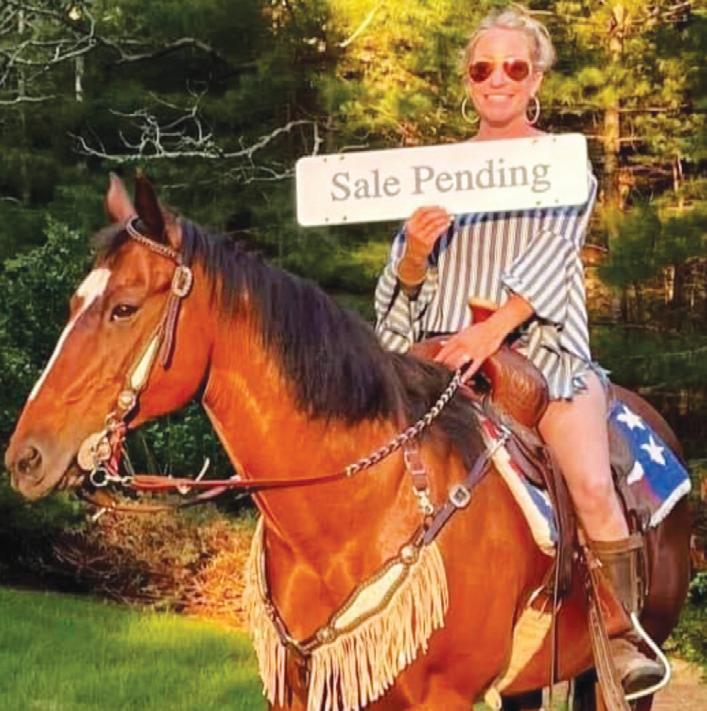
As an Equestrian Specialist with William Raveis, Amanda is passionate about helping her clients realize their dreams. She’s a Realtor who grew up on the Cape and has won numerous awards in sales and excellent customer service. Dedication, honesty, and passion all describe Amanda.
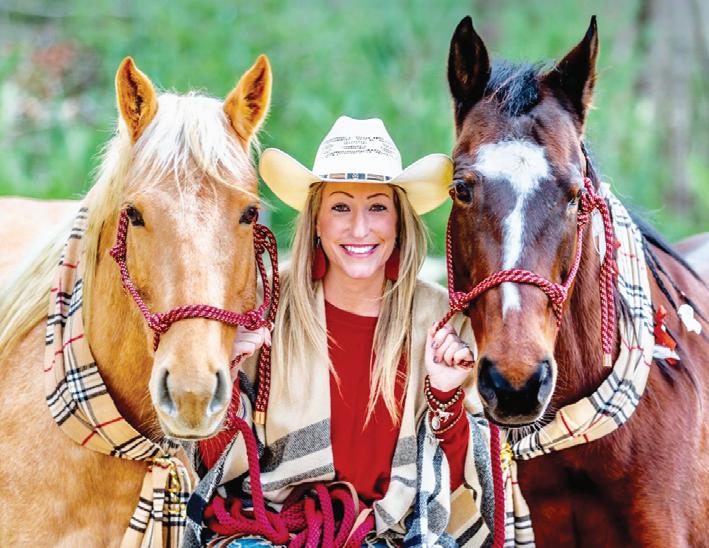
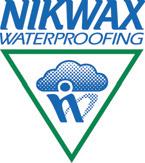



Phillipston
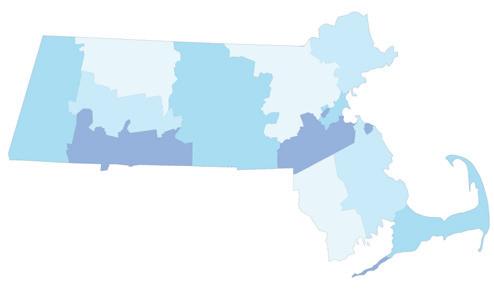
by Jennafer Maselli
The Farm at Millstone Oaks, located in Phillipston, Massachusetts, is where farm life is a family affair. Dawn and Andrew Laughlin are parents to Kory (21), Bella (18), Samantha (14), Drew (12), and Danny (7). The family’s five children ride and show locally, compete in gymkhanas, and they’re also active in helping run the farm. Drew helps with property maintenance and Danny is the
George and Kory

first to welcome guests. Samantha competes in the Interscholastic Equestrian Association, and Bella rides, drives her Miniature horse, and will attend UMass Amherst in the fall to pursue veterinary medicine. With the help of this incredible support team, mother and daughter duo Dawn and Kory run the farm’s successful riding and horsemanship lesson program.
Community is a key element of Dawn and Kory’s program. Both women work as hard to serve the community as they do to be present within it. Kory has served as a junior board member for the New England Equestrian Center of Athol (NEECA) for the past year, offering the perspective of the next generation of
equestrians to the board. At home on the farm, Millstone Oaks’ lesson program welcomes riders of all ages and levels, including riders’ families, to come and enjoy all that life on the farm has to offer.
CH: How did this family-wide love of horses and farm life begin?
Dawn: I was in the third grade when my dad bought a Shetland pony named Abby

for the five of us kids. None of my siblings were really interested in the pony, so she was pretty much mine. Abby taught me so much about finding confidence, as well as communicating with and caring for my own horse. After that I pretty much always had horses and grew up in the barn. The passion stayed with me and motivated me to study equine management at UMass Amherst. I took as many of the teaching and training classes as I could and participated in the riding program. Having grown up with horses and worked at various barns, it was important to me that my kids grow up with horses. My husband and I made the decision to homeschool our kids. The horses and our
other animals, including goats, sheep, geese, bunnies, cats, and dogs, all became an integral part of hands-on engagement for their education. We started off with a few horses in our backyard and it all just grew from there. That’s how the children, especially Kory, got into horses.
Kory: It was an easy decision to go for my instructor’s license and CHA certification. I always knew that training horses was going to be a part of my life, and I can’t imagine doing anything different.
CH: What motivated you to move to Phillipston to start your program?
Dawn: When we lived in Berlin, we had our horses on our property, but it was nothing like the barn that I’d always envisioned. Moving to Phillipston enabled us to buy a beautiful piece of land where we could develop the farm into something we had always dreamed of. Now we are in a place where our family can help bring horses to the community.
Devoted to the preservation and promotion of the critically endangered Dales Pony since 2013.
Home of Kingmaker Jupiter. Newly imported, licensed Dales Pony stallion. Stallion service available to Dales Pony mares and other breeds.
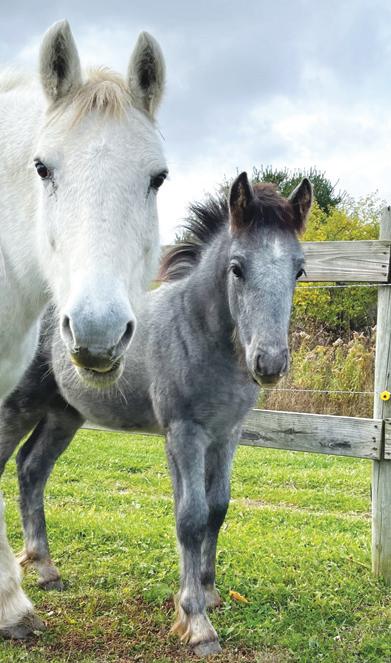
CH: How did the Millstone Oaks program begin?
Dawn: When we bought the property there was no barn here, and it was all woods. We boarded our horses at a farm down the road and that was where we started our Millstone Oaks horsemanship program in 2013. In 2017, we were finally able to bring our horses home and run our program out of our own place.
CH: Your barn is beautiful! Is there a story behind it?
Dawn: We began by taking down the trees to clear space for the barn, and my husband, Andrew, who is a building contractor, built the barn using reclaimed wood. The lumber originally came from a barn built in the 1800s. We love the natural beauty of the exposed beams and his vision to create this beautiful barn for us.
Kory: All together, we have eight stalls in the barn with several run-in sheds on the property, which allows us to house a few
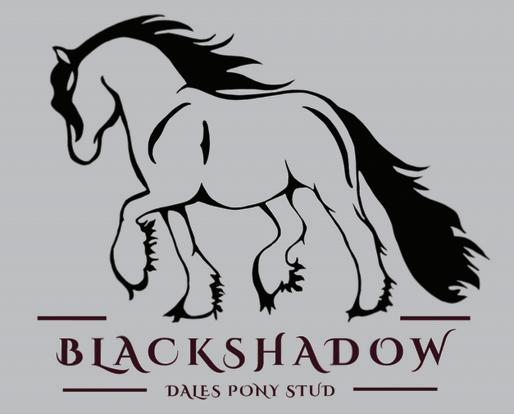
Exceptional young stock available annually; reserve a foal in utero.
Exhibiting a calm and intelligent nature with exceptional conformation.
The Dales Pony can truly do it all . . . dressage to driving and jumping!


more horses living outside. We currently have 13 horses here. All the horses participate in our lesson program.
CH: What is unique about your farm and horsemanship program?
Kory: Our emphasis is on providing our riders with a solid foundation so they can be safe and have fun wherever their riding career takes them. We teach balanced seat riding, which, as our students progress, allows them to enjoy a variety of disciplines from hunt seat and jumping to barrel racing and gymkhanas. It’s important that our students feel confident and prepared to try any discipline. It’s equally important to teach horsemanship and horse care to our students, in addition to basic riding skills. Students enjoy feeling involved.
Dawn: To me, what makes our program unique is the way we structure our program for families. Having homeschooled our children, it was important to me that we support other families that choose to homeschool. Throughout the summer, we have camps almost every other week. We


start in early June so that there is at least one week geared for the kids who are homeschooled before all the schools let out for the summer. The horsemanship camps include riding lessons, horsemanship sessions, and general farm care and skills.
We offer birthday parties as well as our Pony Pals lesson program for families. For the Pony Pals, if the parents are involved, we can do horsemanship and riding lessons for several young children at a time, even those who only want to be around the horses and other animals. It’s such a great experience for young children to gain confidence and experience a sense of peace on the farm. Kory has so many creative ways of teaching to keep the little ones engaged and motivated. She’s great at making up games with prizes, even for barn chores, such as cleaning stalls.
CH: What do you love most about the program you have created?
Kory: We have such a wide range of students. Our students vary in age from 2and 3-year-olds to riders in their early 70s. We have a lot of beginner students who are just getting into riding, and quite a few who are getting back into the sport after many years away from it. We even have some parents who will take their child’s lessons if the child cannot make it for some reason. It’s so much fun to see them fall in love with the sport, and in some cases, rekindle their love of horses and farm life.
Dawn: Horses that come here have a forever home. Some of our horses are a bit more medically complex than the average horse, but regardless of what they need, they get it, and they become a part of our family.
We try to keep the cost as low as we possibly can for our students and families. It’s important to us that we reach as many members of the community who want to ride, or be around farm animals, as we possibly can. As horse owners, we know that horses are expensive, and that cost can be a barrier to those who want to
access the sport. All the money generated by our programs goes directly toward care for the animals and the farm.
CH: It’s incredible the way your family has been able to grow the program and property to match your dream. What are some goals you hope to achieve in the future?
Kory: Honestly, we are in a really great place right now. It’s exciting to be able to say that. The program has grown so much already, so for the moment it’s nice to enjoy what we have worked so hard to accomplish. Kids who started with us as beginners are now achieving milestones such as first jumps and competing in their first local horse show.
We are at a point where we must decide when and how we continue to grow. Ultimately, we want to keep growing the program, but for now we’re okay with taking our time to do that. It’s important to us that when we do bring in another instructor, they match our values and care about the horses as much as we do.
Down the road, we hope to put up an indoor arena. For now, if it isn’t icy, we continue right on through the winter outside, or do horsemanship and horse-care lessons in the barn. It’s another way we focus on the foundations of riding and horse care. Even when we do have an indoor arena, that part of the program will never change for us.
Jennafer Maselli, a freelance editor and writer, lives in Berkshire County, Massachusetts. As a horse owner and rider, Jennafer enjoys everything from trail riding to reining to playing polo, and is an active USEF competitor with her Irish Sport Horse and Thoroughbred-cross geldings.




Amherst Farmer’s Supply
320 South Pleasant St., Amherst (413) 253-3436
amherstfarmerssupply.com
A.W. Brown Pet & Garden Center
144 Shaker Rd., E. Longmeadow (413) 525-2115 . awbrown.com
Bridgewater Farm Supply
1000 Plymouth St., Bridgewater (508) 697-0357 bridgewaterfarm.com
Essex County Co-op
146 S. Main St., Topsfield (978) 887-2309 essexcountycoop.com
Greenfield Farmers Co-op Exchange
269 High St., Greenfield (413) 773-9639 greenfieldfarmerscoop.com
Hardwick Farmers Co-op Exchange Rte. 32, Gilbertville (413) 477-6913 . hardwickfarmers.net
Sweet Meadow Feed & Grain
111 Coolidge St., Sherborn (508) 650-2926 sweetmeadowfeedandgrain.com
Benedict’s Home & Garden
480 Purdy Hill Rd., Monroe (203) 268-2537 . benedictsgarden.com
G. M. Thompson & Sons 54 Middle Tnpk., Mansfield Depot (860) 429-9377 . gmthompson.net
Litchfield Blue Seal Store 99 Thomaston Rd., Litchfield (860) 482-7116 . blueseal.com
Lock, Stock & Barrel
770 Amity Rd., Bethany (203) 393-0002 . lsbfarmsupply.com
Meriden Feed & Supply
846 Old Colony Rd., Meriden (203) 237-4414 facebook.com/MeridenFeed
Leeway True Value
790 Great Rd., North Smithfield (401) 765-2222 leewayace.com


Saunderstown

by Geena Monahan
t the end of a long gravel driveway lined with sweeping grass paddocks lies Morning Star Horse Farm. It’s clear that this stunning, expansive property in Saunderstown, Rhode Island, has been cherished for many years.
This farm has been many different things to many different people since it

was built in 1842. Today it is the home of McSoley Equestrian at Morning Star Horse Farm, owned by Nancy Pottish for 14 years, and run by head trainer and barn manager Cara McSoley. As Nancy and Cara sat at a picnic table overlooking the 57 acres of well-manicured fields and happily munching horses, one word continued to pop-up in the stories they shared: serendipity.
Nancy and Cara’s paths crossed at a time when both were looking for something new in their lives: Nancy was searching for a new head trainer and Cara was searching for a new facility for her business. McSoley Equestrian at Morning Star Horse Farm was born three years ago, and together Nancy and Cara have created an ideal environment—a place where riders and horses of all ages and skill levels can thrive.
CH: Cara and Nancy, how did you each find your way to Morning Star Horse Farm?
Cara: It was serendipitous; in 2021, I was searching for a new facility and the manager here was leaving after ten years. I called the manager and learned they were looking for someone who could teach both

English and western, and I grew up doing both. The reason I’m even in Rhode Island now is that I grew up vacationing in Saunderstown and fell in love with the area. In 2005, I brought a few of my horses down here so I could continue riding in preparation for an upcoming horse show. One of those horses from that trip, Goose, is still here with me and now retired at age 26.
Nancy: Buying a horse farm was never the plan when my husband and I bought a sailboat and moved here from Utah 14 years ago. After a few months here, I met a horse trainer who invited me to come riding with her. I was in my fifties, and hadn’t ridden since I was in my early teens, but I gave it a try and fell back in love with it.
In 2010, the trainer, myself and a few other women in our riding group were looking for a new barn to rent out and
when I found out this place was for sale I decided to go ahead and buy it. I later learned that this property used to be owned by friends of my husband’s family, and that he worked here when he was a teenager. It’s nice to be able to keep a place going that has meant so much to so many people throughout the years.
CH: Can you tell us about the farm’s amenities?
Cara: We’re full-service. Full board is everything you can need, and then we have “á-la-carte” options on top of that. Whether you want grooming, training, or any other horse-care related service, we offer all of those. We have two outdoor arenas and an attached 72' x 168' indoor arena that has been redone recently with dust-free GGT footing. We have hot- and cold-water wash stalls, a viewing room, and offer both on- and off-farm events. Our main goal is to build a community, not just a successful business.
It’s also really important to have hardworking, trustworthy staff and I’ve been lucky to find that in Lexi Stone, my assistant trainer for the past five years. She helps with barn management and teaching lessons, and she’s instrumental in keeping the barn running smoothly.
CH: What separates Morning Star Farm from other facilities in the area?
Cara: Our farm is unique— we’re all here because we love it and we’re not super competitive. If you want to trail ride, you can just trail ride. If you want to do ground work, you can do that. We have riders of all ages, from children as young as five and six to riders in their seventies. My philosophy is that you don’t have to be at a five-star facility to get five-star horse care. We value, so heavily, our horses getting the absolute best care, but also being able to be a little bit relaxed about it. It’s really about the partnership.
CH: Cara, tell us about your journey as a horsewoman and when you decided to take on horses full-time.
Cara: I grew up in Essex Junction, Vermont, near Burlington. I’ve ridden my
entire life, probably sitting on a horse for the first time when I was three. After years of begging my parents for riding lessons, I finally earned them, and spent my first lesson sneezing and realizing that I’m highly allergic to horses. There’s a lot to be said though, for passion and Zyrtec, and I never quit.
I rode throughout my teenage years, doing the American Quarter Horse Association circuit and showed at the Quarter Horse Congress. My focus was mostly on English and western flat riding, but I would play over jumps with my Appendix Quarter Horse, Austin, who’s now retired in Virginia. I eventually chose to go to college at Roger Williams University, where I was on the riding team all four years and was named captain of the team my senior year. That’s where my love of jumping really came to fruition.
After college, I was working in development and nonprofits and brought one of my horses down to Rhode Island where I started riding and working part-time at Carnegie Abbey, which is now the Aquidneck Club. At that time, I was simultaneously offered a promotion at my e-commerce firm and a position at Carnegie Abbey as the director of equestrian programming. I had made up my mind to accept the promotion at the e-commerce firm and keep horses just as my hobby, but that morning I received a phone call that my horse had severely injured himself. While I was helping the vet, holding my horse’s head, and assisting with his treatment, I realized that I wanted to be the one giving this care to my horse, and that I wanted to give this level of care to other horses as well. I’ve been doing this ever since.
CH: What is your favorite part about the atmosphere you’ve created here at Morning Star Horse Farm?
Cara: I find so much joy in the growth of my students and watching them compete, but I’ve recently gotten the bug to start competing again too. I have a personal horse, Strident, and we recently did a clinic with Don Jessop, which was fun. I try to do fun things like that to feed my competitive bug and learn new skills I can
bring back to my students. I like to teach lessons and train horses; for me, the two go hand in hand. I can train a horse, and I can teach a lesson, but those things must marry. If I have a horse in training, I always want the owner involved, because every time you are touching your horse you are either training it or untraining it.
Nancy: Well, I really love all animals, whether it be horses, cats, dogs, or snakes. I rode as a child but never had my own horse, so having two of my own horses here and the ability to get to know them as the creatures they are is special. They’re so unique and loving; they just care about you. I love to ride, but I also enjoy just being here and being around them. I also love the community here because I’m not from Rhode Island originally. I grew up in New York and moved here from Utah, so it’s nice to be around people with the same passions as me.
CH: What does the future of Morning Star Horse Farm currently look like?
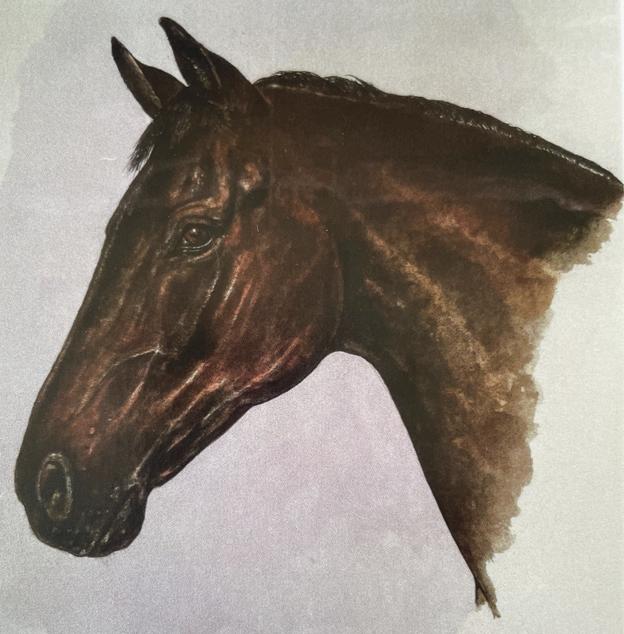
Cara: We’ve talked about expanding the program and bringing in a few more program horses. There’s been this bubble of growth where people who learned on our horses are now getting their own, so we’re really excited to take on the next group of riders. We’re also renovating a second barn on the property. We call it the “pony palace,” but it does have full-sized stalls as well.
We have 28 horses here and are excited to get that barn made over and ready to take on more horses. I’m beginning to look for some projects to bring along to continue the growth and the program. I want to keep good people here and keep making dreams come true.
CH: What would you like the community to know about your farm?
Nancy: In addition to the lessons, training, horsemanship camps, and in-house horse shows we offer, we’re always trying to build relationships with the community. We’ve offered events in the past where we had a mushroom foraging expert come explore the property, and we’ve had an arborist come to identify different species of trees, where we found out that we have the oldest Tupelo tree in Rhode Island on our property. We also offer birthday parties and plan to offer corporate day retreats in the future.
Cara: We’re really trying to tap into utilizing just how amazing this place is. People often tell us they've driven by this place a million times but have never stopped by, so we want people to know what a beautiful piece of property is in their town, in their community. Whether you want to show, trail ride, or just hang out with the horses, we share your vision. We would love for you to stop by and check out the farm.
Geena Monahan is a life-long equestrian currently residing in North Attleboro, Massachusetts, with her family and a menagerie of animals. She enjoys trail riding her semi-retired Quarter Horse mare and the magic of watching her seven-year-old daughter learn to ride.



by Sally L. Feuerberg
’ve had the pleasure of knowing Katie
Bogaert, owner of Connecticut Dressage Academy (formerly KB Riding Academy) in Madison, Connecticut, for about eight years. I’ve watched her grow in talent, knowledge, and maturity in an equine sport that is far

from easy to master. However, what I have come to admire the most about Katie is her steadfast perseverance and compassion. It shows in all the horses she rides, trains, and lovingly cares for. It’s also revealed as she teaches students of all equestrian disciplines the many benefits of dressage for horses and riders in a nonintimidating environment.
Earlier this year, however, Katie faced a challenge that would test her determination in the most challenging ways. On Sunday, May 12, there was a fire at her barn.
“I’d just returned from three weeks in Wellington,” Katie says. “At around 2:30 in the morning, I awoke to a car horn beeping out front of my house. I shot up to look outside and found my barn engulfed in flames. Immediately I ran down into the barn to find it filling with smoke. The fire was com-
ing down the stairwell into the barn. I grabbed a fire extinguisher to try to keep some of the flames at bay and then immediately started evacuating horses with my brother, Jon, who shares my house with me.”
“We were able to safely evacuate all sixteen horses within minutes to their outside
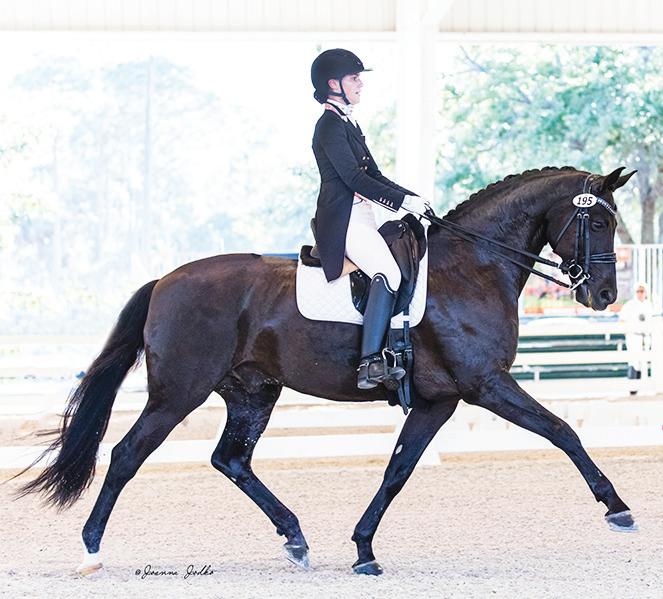
paddocks and watched the fire departments from Madison, Guilford, Clinton, and Durham contain and put out the fire,” she says. “Had it been even ten minutes later I don't know what the outcome would have been. I thank Jon for helping me get all the horses to safety and the first responders who were so quick and able to contain the fire effectively. I’m at a loss for words but I’m just so grateful all the horses are okay.”
CH: How much damage was incurred by the fire?
Katie: The fire affected what I called the “human rooms,”— the lounge area, the apartment my assistant, Hanna lived in, the feed room, and the wash stall. Luckily, Hanna was away for the weekend.
After contemplating whether we should try to remain there, we decided
there was too much damage to stay in the barn. I was aware of an empty barn just five minutes down the road from our old location and was able to contact the owner. The barn had been empty for about a year and there was a lot of work to be done to get it safely habitable for the horses.
CH: How did your horses adjust to the transitions to new surroundings?
Katie: After the fire, we all noticed the horses interacting with each other in very interesting ways that we had never seen before. We’d find a horse lying down and another one standing right above, almost as if on watch. We observed more frequent grooming and herd interaction — it was almost as if they were trauma bonding. We moved all the horses on the same day over a few trips, and they all settled in well. Because they all moved together, all the horses had a sense of relief when settling into their new surroundings.
CH: How did you adapt your riding and teaching program to the major change in venue?
Katie: We had to shut down for a month. It took some time to get the new location horse-ready and navigate the logistics of the move. Our clients, neighbors, and fellow horse people were so supportive during this time. I will be forever grateful to each person who contributed in some way — even if it was by reaching out and offering words of encouragement. We retained all our clients and horses through the process, and I’m so grateful for everyone’s support and the value they see in the program.
CH: You continue to make it your mission to share the sport of dressage with others. What inspired you to welcome riders from all disciplines and levels to ride in your program?
Katie: The most important thing to recognize is that dressage is for all horses and riders. What is cool about dressage is that it not only is its own discipline, but it’s also a supplement to other disciplines. For example, I really enjoy working with hunt seat riders using dressage to improve their

jumping. Once riders realize how helpful dressage can be it unlocks a whole new world, and that’s what inspires me to share the sport with any rider who is willing to learn. Because of how beneficial dressage can be it really should be accessible to all riders, and I enjoy fostering an environment where that is possible!
CH: Were there struggles in the beginning?
Katie: What really captivates me about dressage is that you could dedicate three lifetimes to the sport, and still not even achieve all there is to understand about the sport. When you’re young, it can be a little tough to gain respect from other professionals who have been doing it their entire life; respectfully so. Emerging as a young dressage professional was a bit isolating at first, but now I have a great network and support system with other professionals and clients. We all share and encourage each other’s success because we love the sport so much and encourage collaboration with each other rather than competition against each other. Through this experience, my goal is to make dressage as accessible and welcoming as possible. No one should feel isolated from the sport.
CH: Was there someone who ignited your passion to devote your career to dressage?
Katie: Before dressage, I had ridden hunter/jumper, cutting, some reining, eventing, and worked a lot with problem horses. I enjoyed all these things but felt a little bit like something was missing. I did an apprenticeship with Patrick King. I traveled with Patrick, giving clinics at various locations with a large array of riders— ranging from a kid who was primarily a bronc rider to top competitive dressage horses. It didn’t matter the saddle, horse, or rider, the lessons were all dressagefocused but presented in a way that wasn’t intimidating. I loved how it never failed to help every rider and horse in a beautiful and harmonious way, and that’s how I fell in love with dressage.
CH: Who are you training with now?
Katie: I currently ride with Sarah and Lee Tubman of Tubman Dressage in Wellington, Florida. Sarah is a fantastic mentor and is so genuine in all that she does. I really enjoy training with Lee as well, and the fact that I get access to two top riders, trainers, and a judge from their program gives me an edge in my education!
CH: Can you tell us about the horses that have gotten you to where you are today and who you are currently working with and showing?
Katie: I learn something from every horse I work with, but there are some that have had more influence on who I am as a rider today. My first horse, Lucky, taught me a lot in my teen years. I still own him and he’s now a part of my school program and thriving in his 20s! I also owned a beautiful 18-hand Oldenburg gelding named Winny. He had moderate shivers that made him a quirky ride but he had the best soul. He and I earned our bronze medal together. I then met Cedric, who came from a rescue in California, New Hope Equine. When I first met Cedric, he came with some quirks. Through consistent work he has blossomed into a fantastic and dependable partner. It’s been so rewarding to work with him and see the horse he is today! Cedric and I earned our silver medal together, and he was the first horse I was sponsored on. I’m now riding Furst Fritz, an impressive Oldenburg gelding owned and imported last summer by Misty Meadows Equestrian.
CH: Your program was originally KB Riding Academy and is now called Connecticut Dressage Academy. You’ve also received a grant from The Dressage Foundation. Can you tell us more about this achievement?
Katie: I opened my boarding and training business in 2015 as KB Equine, with no intention of doing lessons. Over the years that changed as I discovered my passion and talent for teaching. As the business has
grown, I’ve realized it goes beyond me and beyond KB; hence the change. As part of my growth and desire for education as an instructor, I was awarded the Major Lindgren Instructor Grant by The Dressage Foundation. The grant has aided me to ride and train with Sarah and Lee in Florida. The Dressage Foundation is a nonprofit organization whose mission is to cultivate and provide financial support for the advancement of dressage in the United States. The Foundation supports professionals, amateurs, youth, and organizations.
CH: You offer lessons, lesson horses, and leasing options, correct?
Katie: Yes! We work with riders who own their own horse, riders who need a school horse, and riders who would like to lease a school horse. I’m very proud to offer quality dressage school horses, as they can be difficult to find. I have horses for riders of all levels — from intro to Prix St Georges.
CH: What can riders who are new to the sport learn from dressage?
Katie: I would say dressage will put a clear line of communication between you and your horse. I’ve worked with many riders who are frustrated with their horse because they feel their horse won’t listen, but almost always it’s the rider’s lack of understanding on how to effectively communicate with their horse. When you learn that a half halt isn’t just pulling back on the reins and that using the outside rein to get your horse back on the rail doesn’t really work, dressage will help you speak your horse’s language and in turn, create harmony. When people imagine harmony in dressage, they picture an upper-level horse doing something magnificent such as tempi changes or piaffe and might think it is unattainable. But it really can be as simple as going into your corners, a relaxed free walk, or a wonderful and balanced transition.
Sally L. Feuerberg is the president of the Middlebury Bridle Land Association and a longtime resident of Newtown. Trail riding and continuing her lesson programs are her passions, along with the care of her family, horses, and farm.
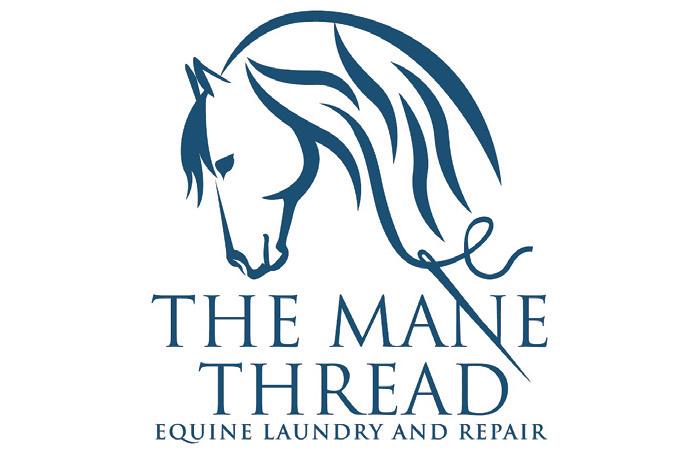
Serving Central Massachusetts and the Greater Boston Area.
Trust your blankets with us!
We follow tried-and-true blanket cleaning and repair techniques that have been passed down by the very best.
Be assured that your blankets’ care and attention is our top priority.
(978) 495-1765 voice/text themanethread.com themanethread@gmail.com



by Jennafer Maselli
Through her own tribulations, Suzanne MacPhail of Ipswich, Massachusetts, learned how impactful the love and peace of the horse can be when it comes to healing the human soul. Like so many equestrians, Suzanne’s life has come to revolve around these special creatures. She is fortunate to have also created a career that incorporates the healing

that horses can provide. As a licensed mental health counselor and Adjunct Professor of psychology at Bay Path University, Suzanne integrates equine-assisted psychotherapy into her clients’ therapy programs as well as her students’ education. Suzanne and her team of four-legged “practitioners” remind us that there is no better therapist than the horse.
CH: Horses have been a life-long passion for you. How did that start?
Suzanne: At nine years old I was lucky to be able to go to Fleur de Lis, a two-month summer camp in Fitzwilliam, New Hampshire. I met people from all over the world and got my first introduction to horses. I was just a little kid who fell in love with horses and learning to ride.
After some time away, I returned to riding in my twenties and began the search for my own horse. As we know, finding the right horse can take a long time. It wasn’t until I was 38 that I found my Rudy.
Rudy was a larger than life, 18-hand German Holsteiner, born in 1997. We showed a lot over the years, and he truly carried me through life and working

through my own traumas. He was also the beginning of my equine-assisted therapy program. My relationship with him was such a gift. After 22 years together, Rudy passed away in June.
CH: You have had a long career as a licensed mental health counselor. Did you know that was your calling, or did it come together organically?
Suzanne: I had no idea I would become a therapist. I was working at Tufts Medical Center as a clinical coordinator and found it easy to connect with the patients. One of the nurses I worked with kept pestering me about how I would make a great therapist and eventually convinced me to go back to school. I had so much support from the medical staff at Tufts.
While back in school, I realized how much I had gone through in my own life; working through that taught me a lot. My education instilled in me the empathetic ability to put myself in other people’s shoes. I began practicing in 1998. Once I was in the field, I knew there was no going back, and that I would never do anything else.
CH: How did Rudy come to be involved with your work as a licensed mental health counselor, and how has that shaped your career?
Suzanne: Horses, most importantly Rudy, have always been an important part of my own mental health and well-being. In 2009, I began learning about the Problem Adaptation Therapy (PATH) model, which utilizes five different ways of regulating emotions: situation selection, situation modification, attentional deployment, cognitive reappraisal, and response modulation. Once on that journey, I wanted to try to find a way to combine the PATH model with horses. I began working through my credit hours at Strongwater Farm Therapeutic Equestrian Center in Tewksbury.

I’ve been a licensed riding instructor in Massachusetts for 13 years, but as a specialist in trauma and grief, it could be hard to have someone working through that while also trying to focus on the riding. When I learned about the Equine Assisted Growth and Learning Association (EAGALA) model, which is all done on the ground, it seemed like a great match.
I became a certified EAGALA specialist in 2015 and have used that method since. Rudy was the only horse my clients worked with for a while and when he retired from under-saddle work in 2020, he became a full-time therapist, as I like to say. He touched so many people over the years. He was an incredible horse and I was privileged to have owned him.
CH: How many horses, or “practitioners,” do you have in your program now? How did they come to you?
Suzanne: Without Rudy, we now have five horses. In 2018, I rescued Autumn, a half-
Appaloosa hinny. She was four or five years old at the time. After that I really started to get my herd together to create a team. From there I rescued Liam, a Belgian cross, as a yearling from a kill pen in Texas and brought him out to Bolton, where I had Autumn. I began working out of the Boston Polo Club in Georgetown in May of 2020. While there, I got a five-month-old donkey, Poe, and in the summer of 2023, a retired polo pony named Sophie. My partner in the EAGALA program, Estella Moriarty, uses her horse Gamble with some clients as well.
CH: How has your EAGALA program expanded over the years? Where do you see it going next?
Suzanne: I decided to move to Georgetown and go out on my own in 2020. My business, Hands to Healing, was born, but it didn’t really kick off until after Covid in 2022. Currently, I run my retreats and operate Hands to Healing out of Ascot Riding Center in Ipswich, Massachusetts. At the retreats I




also bring in other practitioners and professionals. For example, Colleen Norris is often a part of the retreats. She is a “no crack” chiropractor based in Newbury, Massachusetts. Then there is also my friend, Reiki practitioner and spiritual healer Leah M. Hill. She and I are currently seeking out a location to open a wellness retreat center. We have been trying to find a property in the North ShoreMerrimack Valley area to purchase or lease to own. We envision Apollo Sunrise Center offering classes, workshops, and retreats including yoga, meditation, and mindfulness, in addition to the equine-assisted psychotherapy. The long-term goal is to be able to create a nonprofit so we can offer mental health services to people who wouldn’t otherwise be able to afford it. Mental health care needs to be more accessible, and we want to try to change that, at least in our community.
CH: What are some of the greatest challenges that come with your work as a grief and trauma therapist, as




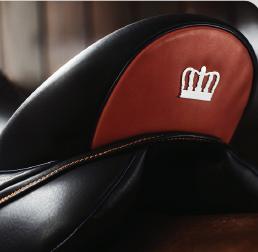
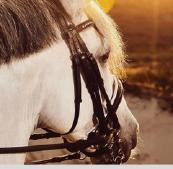












well as an EAGALA specialist?
Suzanne: Right now, finding a place where we can start our wellness center and share the services with the community is a huge challenge. I really want to be at a point where I don’t have to worry about where we are going next so that the horses can get the rest, turnout, and relaxation that they deserve. The accessibility of bringing this sort of mental health care to the community is still a battle as well. We can’t work on financial accessibility and transportation for our clients until we have a place.
The most pressing challenge is always the financial expenses for the program that ensure the horses get the best care. That’s always a top priority. This career really comes from the heart.
CH: Is there any advice you can give to others who are interested in becoming a licensed mental health counselor or learning about equineassisted psychotherapy and EAGALA?
Suzanne: People find themself attracted to the field for a reason. We all have some sort of trauma and working through your own personal trauma is an important part of being able to help others do the same for themselves. If you’re asking yourself, “Will my trauma be in the way of helping others overcome their trauma?” then that’s a good sign because it shows that you are self-aware. Being concerned about barriers makes you a better therapist and makes you open to the perspectives of others. These models encourage collaboration and community between professionals.
CH: What do you find most rewarding about your career?
Suzanne: Being able to share these special animals with my clients and give them a reason to get up, to have something to look forward to. Horses truly can heal people. So many people don’t realize that they can speak up when their therapy program isn’t working for them, and that they can try something different, such as EAGALA. I never imagined I would be able to combine my clinical background with my
experience as an equestrian. Now I get to witness healing every day. It’s an incredible gift to be able to give to someone.
This article is dedicated in loving memory of Rudy, a teacher, a therapist, and a true friend.
For service inquiries, please visit Suzanne’s Facebook page Hands to Healing, or Leah Hill’s apollosunrise.com
Jennafer Maselli, a freelance editor and writer, lives in Berkshire County, Massachusetts. As a horse owner and rider, Jennafer enjoys everything from trail riding to reining to playing polo, and is an active USEF competitor with her Irish Sport Horse and Thoroughbred-cross geldings.




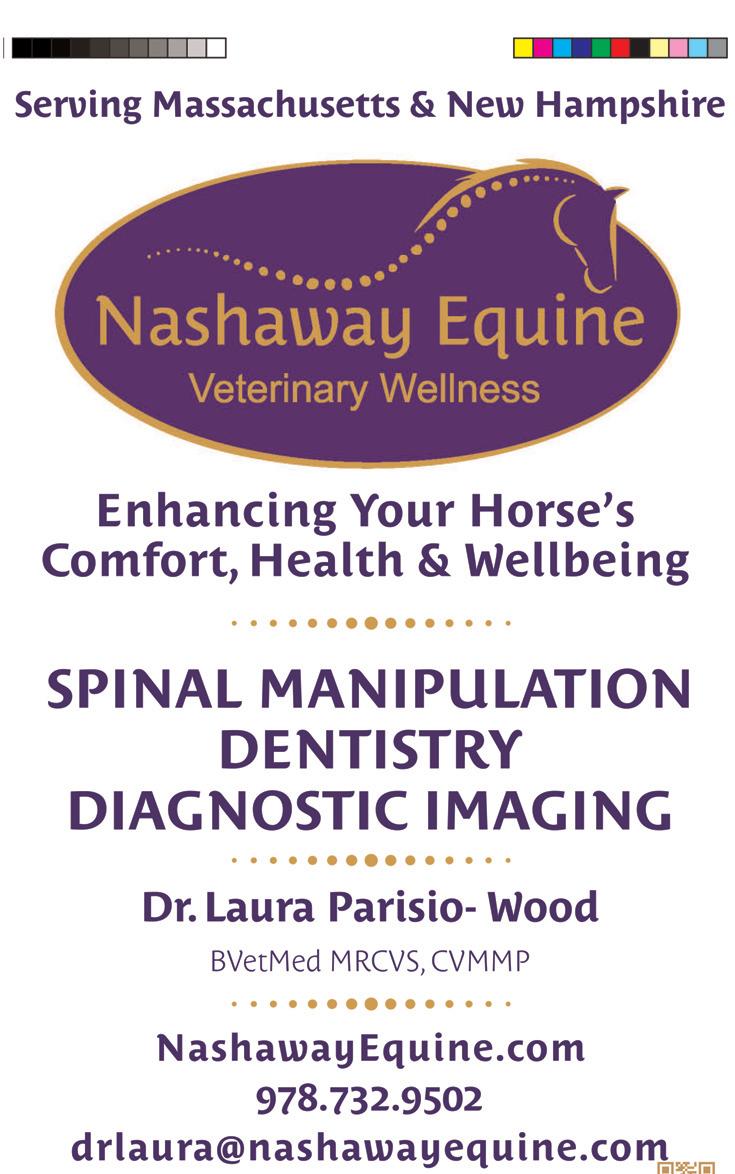

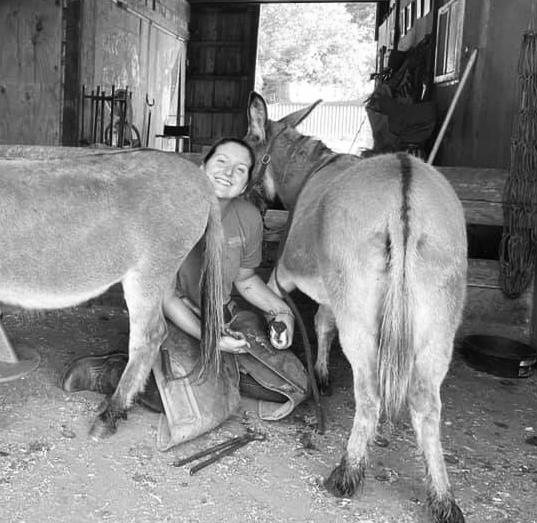


by Geena Monahan
ulie Hetrick, owner of Journey’s End Farm and co-founder of Epona Safe Haven located in Foster, Rhode Island, describes herself as a caregiver right from the start, making it her life’s mission to help those in need.
Julie bought Journey’s End Farm with her husband, Frank D’Alessandro, more
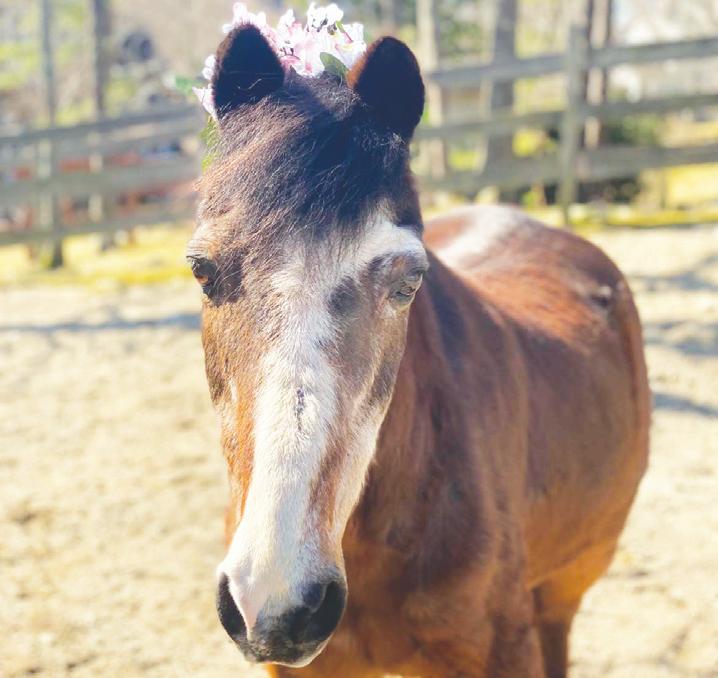
than 26 years ago, while also working as a pediatric nurse practitioner. She was ready for a change of pace when she started nonprofit Epona Safe Haven in 2018 and turned her focus to horse rescue. Julie’s brother and co-founder, Jeffery Hetrick, chose the name because of their Celtic heritage and because Epona is the Celtic goddess protector of horses.
Julie knows the history of every horse that’s come to Epona by heart. She shares the story of Belle who was feral and unpredictable upon arrival, but after seven years of treats and scratches, has learned to love human interaction. Then there is Harley, a Saddlebred mare who came to Epona as an owner-surrender that, despite having lost an eye, is a star lesson horse and looking for a kid to call her own. Julie points to Princess Poppy and her pasture mate, Hope, turned
out in a large paddock together, now bonded for life following weeks in quarantine after being rescued. Julie recounts how Poppy would cower in her stall and shake whenever a person came near her but is now trusting and rideable.
A walk down the aisle of Epona Safe Haven’s barn, complete with an attached

indoor arena, leads to a tack room with several corkboards filled with photo collages that tell of the approximately 100 horses Julie and the board of Epona Safe Haven, in addition to generous donors have rescued, rehabilitated, and rehomed throughout the years. Julie’s passion for this work becomes clear when she tells, through tears, the story of a Dutch harness horse named Charlotte. The true extent of Charlotte’s neglect became evident when x-rays showed she had been living with a shattered fetlock. Epona Safe Haven was Charlotte’s soft place to land, a place where she received as much love and as many cookies as possible before being humanely euthanized to end her pain and suffering. Julie lives by her motto of the last chapter of life being the most important for these horses, where they get to
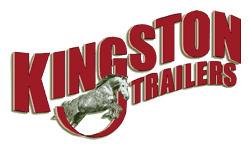
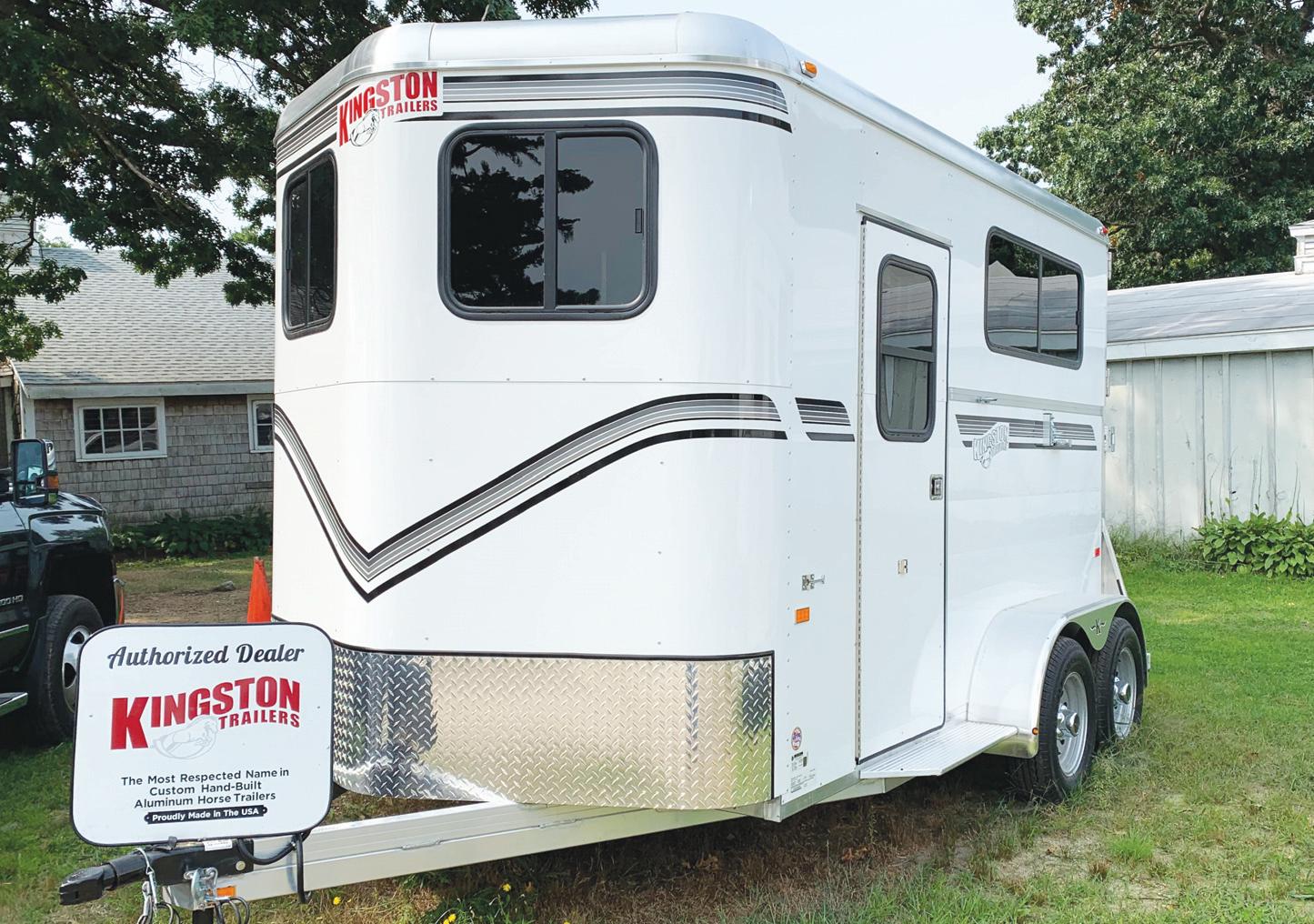


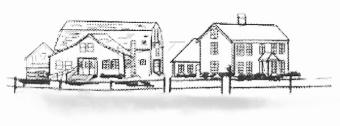
learn that humans can also be their refuge. Her mission is to share that philosophy with the world.
CH: When did you make the decision to start a horse rescue?
Julie: From a very young age, I always wanted to take care of things. I have a very nurturing personality, which is what led me to be a nurse. Several years ago, my brother, who is on Epona’s board as a cofounder, reached out to me asking if I had heard about the horse slaughter pipeline that goes through America, either north to Canada or south to Mexico. At the time, I had no idea what he was talking about. I’d been in the horse world for years and I’d never heard about horses being slaughtered. I forced myself to research it and watch videos, which I can never do again, and I knew I had to do something to help.
CH: What does life for the horses at Epona Horse Haven look like?
Julie: We have about 20 horses here now. We offer lessons and have a few boarders. I have a couple horses of my own; the remaining horses are Epona Safe Haven rescues. We like to have some of the rescues in our lesson program, with the hopes that students will fall in love and want to adopt them. The benefits are two-fold: it keeps the horses exercising and hopefully finds them their forever home. Our lesson program also creates revenue for the rescue, because as a nonprofit we must be creative in how we raise funds. We’re always looking to take on new students and always in need of sustaining donors to keep things up and running.
CH: What are your favorite events and programs to host at the farm? We’re trying out new programs for mind and body wellness. A few weeks ago, we held our first yoga-in-the-field class, which was open to the public, and had a good turnout. We’ve also had a music immersion therapist come out twice now with her singing bowls, bells, and other instruments. The response from the horses was incredible; one of our Thoroughbred res-
cues, Hope, was really intrigued and connected. We’re planning on making yoga a weekly offering and want to do a music immersion clinic in August to continue working on wellness for humans as well as our equines.
CH: When rehabilitating a horse, what are some of the first steps?
Julie: We use a lot of alternative treatment modalities here. We, of course, use traditional veterinary treatments and farrier care, but what really turned the corner for a lot of these horses that have trauma was Reiki. One of our board members, Marge, used Reiki to break through to a Thoroughbred mare that she adopted. Once I saw it in action, I became a true believer. Massage therapy and music immersion therapy also make a huge difference. We use a lot of CBD oil in the beginning to take the edge off so the horses can focus. Once we start their training, it helps them put their anxiety aside and start paying attention, focusing and moving forward. It works well.
CH: How do you stay inspired to keep doing this work?
Julie: Right now, it’s hard for a lot of rescues in terms of fundraising. Our best times were during the pandemic. We had the highest adoption rate and people just wanted to donate money. It can be easy to get discouraged when you're not raising funds, but there always seems to be something that comes out of the blue that keeps me going. Last year, my husband and I went to New York City around Christmastime. We were in Times Square, and despite the holiday atmosphere I kept thinking, “I don't know if I can continue with the rescue. It’s so much time, it’s so much money.” I happened to look up and directly in front of me was a huge sign for equine rescue. I couldn’t have asked for a bigger sign. On a smaller scale, the success stories and messages I receive from people sending me pictures of the horses they’ve adopted really keeps me going.
CH: What would you say to someone who wants to get involved in the rescue, but isn’t sure how?
Julie: It takes a village. We rely on volunteers and always need more. A big misconception is that you need to have horse experience to volunteer. We are more than happy to train anyone who is willing to learn. We always need folks with expertise in marketing and social media, people who can manage our Instagram and Facebook pages and help build our website. There are a lot of behind-thescenes volunteer positions!
The board of directors offers their unwavering dedication to rescuing horses and to Epona Safe Haven. We couldn’t do it without their efforts and support!
CH: What are some goals you have for the future of Epona Safe Haven?
Julie: We’re focused on making facility improvements. We would love to build runin sheds for every paddock. A big issue we find is that many of the horses we rescue don’t like being in a stall, so they do better living outside. Our short-term goals include fixing fences, replacing broken boards, and painting—all excellent volunteer jobs. I also want to focus on working more with civic groups to help folks in hospice, children with PTSD and other behavioral issues—really, any group that can benefit from the healing powers of being around horses. We’re hoping to have our website up and running soon as well, but until then we can be reached via Facebook.
CH: What do you hope people take away from the work you are doing at Epona Safe Haven?
Julie: We’re putting together a campaign to educate the public about how useful horses can be even after their riding years are over. A lot of folks think that if a horse is unrideable, they have no use. We currently have a Dutch Warmblood, Beau, that was surrendered to us by his owner. He’s an absolute sweetheart and was used as a collegiate dressage horse and had an extensive career. He has some old suspen-
sory injuries that make him unrideable, but he is super intelligent and responsive and would make an amazing in-hand horse. Someone could have so much fun with him, training him to do liberty work. We’re hoping to educate folks that if you have an older horse that’s no longer rideable, don’t discount them. They still have a purpose.
To learn more about Epona Safe Haven, visit facebook.com/eponasafehaveninc.
Geena Monahan is a life-long equestrian currently residing in North Attleboro, Massachusetts, with her family and a menagerie of animals. She enjoys trail riding her semi-retired Quarter Horse mare and the magic of watching her seven-year-old daughter learn to ride.




by Nicole Birkholzer
As a professional working with horses and their human companions, I often delve into horses’ past experiences to better understand their current behaviors and needs. Unlike other domestic animals, horses frequently move between various homes, training environments, herds, and owners. As a result, each horse, regardless of age, has a unique and rich story to tell.
One horse, Remmy, stands out in my memory. He was a beautiful light-chestnut warmblood imported from Belgium, a country known for breeding warmbloods for competition. Remmy told his story in our first conversation. Despite his young age of six, he had a solid education and knew that he was “bred for greatness.” This was evident in the mental image he projected of his parents adorned with ribbons, a lineage he was proud of.
horse’s skeleton. Immediately, Remmy brought my attention to his poll, and his right hip and hind leg. These areas were tight, overworked.
I said to his person, “Someone had required Remmy to tuck his nose toward his chest while simultaneously asking his butt to move farther under himself and forward, causing the equivalent of a three-
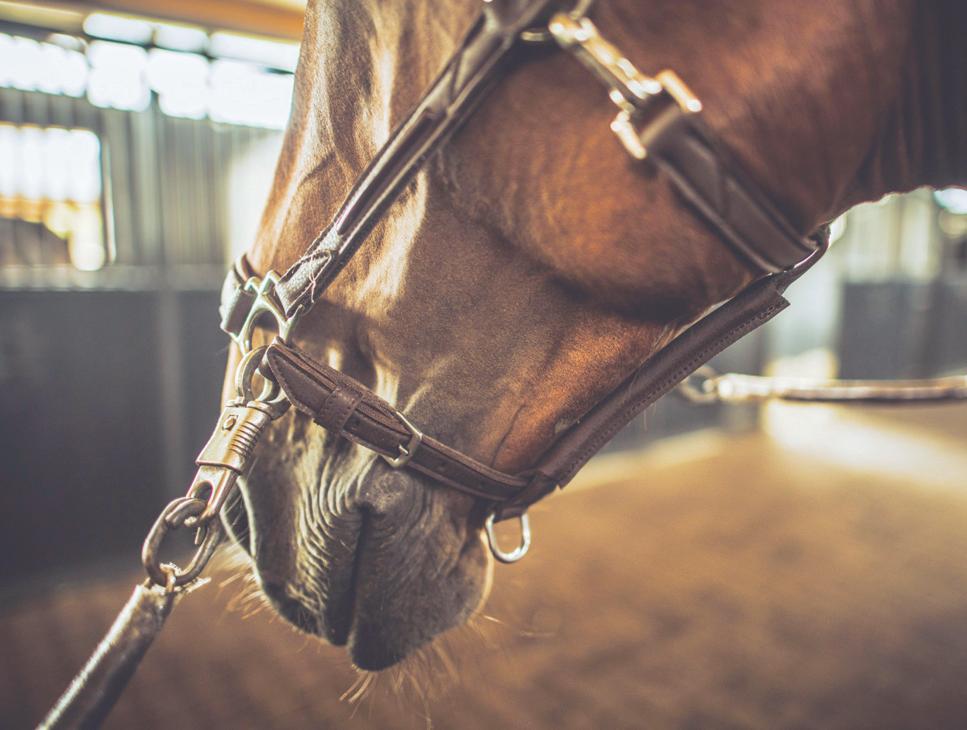
After arriving from Europe as a threeyear-old, Remmy had been in training here in the United States. At several different barns, various people had worked with him to prepare him for competition. When he was six years old, Remmy started to show signs of imbalance. He would take a funny step here and there and didn’t swing his hind as much as he had in the past. He also seemed tense and resisted moving forward. Tests were conducted, limbs assessed, and x-rays taken, but no conclusion was reached.
I asked Remmy if I could check in with him regarding his body, and he obliged. “How does your body feel?” I asked him. Tuning in to him, I saw the structure of a
car collision, with both ends pushing into the middle— the ribcage and spine.”
Experiencing that feeling from Remmy was uncomfortable. The tension in the neck was intense, compounded by the constant push, push, push, with nowhere for these two forces to go but toward the belly.
I explained to Remmy’s owner the uncomfortable feeling I’d had when I checked Remmy’s body, and that I thought he had stomach issues. She said that Remmy had ulcers and had just finished a cycle of Ulcergard.
“That’s why we wondered if he should go to the specialty clinic for a full-body scan,” his owner said. “No one can seem to pinpoint what is wrong with him.”
“You will see many red areas where his
body is inflamed,” I said. “But what will that tell you?” I paused, then said, “I’m not here to tell you what to do, but Remmy needs to be ridden differently to be at ease. Many issues will disappear when he is given the chance to use his body according to his abilities and potential. Once he is more relaxed and his body is more supple, you will know if there’s an actual physical issue. If so, you can always take him for a scan. But right now, everything is on fire.”
One week later the woman reported that she had a new trainer, and that Remmy was on his way to the trainer’s barn. About a month later, the new trainer texted me: “Remmy and I have been working together, implementing what he had asked for. He’s doing well.”
Another month passed, and I went to visit Remmy at his new barn. My first question for his owner was, of course, “How is Remmy?”
“Wonderful,” she said, “I’ve been beyond excited seeing him move easily along the rails. He’s back to being himself under saddle.”
I assessed Remmy’s Chakras: they were balanced. I asked him about his new life; he explained that it was fun and intellectually challenging. I took note that he didn’t say he was physically challenged. When I asked him how he felt in his body, he said, “Great.” And yes, he looked and acted like it. He was curious and engaged, muscled up and well-conditioned. He looked like the star he knew he was meant to be.
“There’s only one thing we are still dealing with,” his person said. “He paws terribly when he’s standing in cross ties.”
Immediately, I got an image of Remmy standing in a barn aisle, held in place by cross ties for hours at a time.
At the same time, Remmy’s person said, “I know that with the last trainer, he had been left in the cross ties sometimes for two hours.”
We looked at each other, first in amazement, then in concern.
I spoke first. “This horse was made to stand in the barn aisle in cross ties for two hours?”
“Yes, after his rides,” she said.
I took a moment to feel myself into Remmy’s experience. The sensation of being stuck in the aisle, restrained for that length of time, was intense. Imagine being ridden hard, nose to chest, butt to middle. Then, when that’s finally over, you get to stand in the cross ties while they take off the saddle, bridle, and boots. That’s a relief. But then, as you are standing and standing, the sweat on your back and
Horses are so forgiving. When we pay attention to our horses, we move from harsher training methods to compassionate approaches that support the horse’s body, mind, and spirit.
around your belly slowly dries, and you get itchy. But you can’t turn your head to touch your lips to your flank or belly because your head is stuck in cross ties. You want to stretch your head down, but you can’t. And you wish for water to cool your body but can’t access any water.
I sighed.
His person looked perplexed.
“We need to give him more time to get past that behavior,” I said. “For Remmy, time has no meaning. The moment you put him into cross ties, he loses track of time. So, he will paw to get out of there, whether after a minute or an hour. Never mind two hours.”
Of course, if I asked the past trainer why he or she would leave the horse standing there, the answer would most likely be to teach him a lesson — a lesson in patience or surrender, to give up and submit.
Tactics like these have been around
for centuries. I’ve heard people talk about tying a young horse to a tree in the woods for days without water or food to get them to capitulate, or “give in.” It’s hard to wrap my mind around that. I imagine you feel the same.
We all have done things or let others do things to or with our horses that felt wrong in the moment. Sometimes, we didn’t know better; other times we may have felt the need or obligation to defer to a professional.
Hopefully, once we know better, we do better. That’s how we gain experience. I know Remmy’s person has learned a lot from her horse. Despite what so-called experts have told her, she’s learned to trust her gut and advocate for her horse.
Horses are so forgiving. When we pay attention to our horses, we move from harsher training methods to compassionate approaches that support and celebrate the horse’s body, mind, and spirit.
Find a tribe of professionals who will support your horse(s). This is a lifelong
and worthwhile quest that will ensure that your horse can shine.
Perhaps now you understand why meeting horses that, often for the first time, get to express how they feel about their lives and what they need from their people is deeply satisfying — for me, for sure, but also for the horse and his human.
Enjoy your horse by supporting your horse’s body, mind, and spirit.
Nicole Birkholzer loves sharing stories from her work as an animal communicator in her weekly podcast. Want to learn to communicate with your animals on a deeper level to discover their guidance and wisdom? Learn about Nicole’s mentorship program, Your Animal, Your Mentor, at mindful-connections.com.


Equi-First Aid was established in 2007 with the vision of educating horse owners in emergency first aid and providing quality training. Courses are developed by veterinarians in conjunction with farriers, equine chiropractors, equine massage therapists, and equine experts. The courses are recognized in the U.S., Canada, Australia, and beyond. Diana offers classes for adults and/or youth. Courses taught in Belchertown or at off-site hosting facilities.
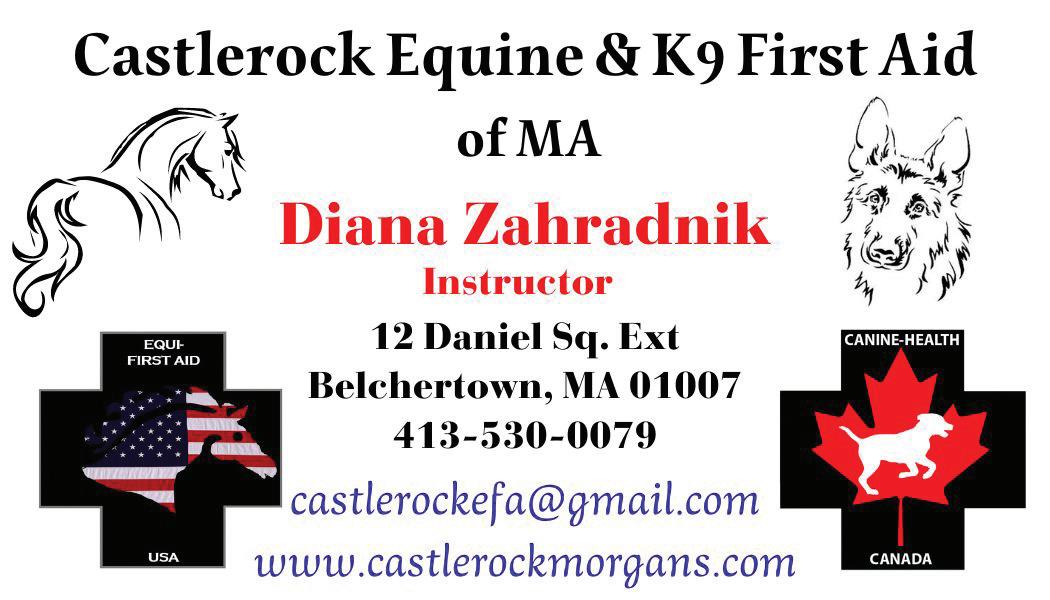


Hartford

by Stacey Stearns
bony Horsewomen, an urban riding center located in Hartford, hosted its second annual Black Boots Awards on Memorial Day Weekend 2024. Black equestrians from across the country traveled to Connecticut for the events, which included a trail ride in Keney Park. I’ve wanted to ride this park for a while and jumped at the chance to join the weekend’s events.

Keney Park opened in 1896 with an expansive 693 acres. It includes meadows, forests, a public golf course, pond, and athletic fields, among other amenities. Henry Keney, a wholesale grocer, gifted the city of Hartford with the original 533 acres in 1894. Frederick Law Olmsted designed Keney Park intentionally using the region’s pastoral landscapes. The famous landscape architect also designed New York City’s Central Park.
The Keney Park Sustainability Project, a nonprofit organization whose mission is to provide individuals with landscaping and forest management skills while also working to preserve the park, leads trail maintenance efforts on the park’s 25 miles of trails, with assistance from Ebony Horsewomen’s Keney Park Rangers.
Fred Wright is the lead farrier with 5 Star Horseshoeing School, and commander of the Keney Park Rangers. He
grew up in Hartford, riding with Ebony Horsewomen, and graduated from the Cornell University School of Veterinary Medicine's Farrier Program.
“Our park is the perfect destination for horse enthusiasts of all levels,” says Fred. “Our well-maintained trails provide a safe and enjoyable riding experience for you and your horse. Whether you prefer leisurely strolls through wooded areas or
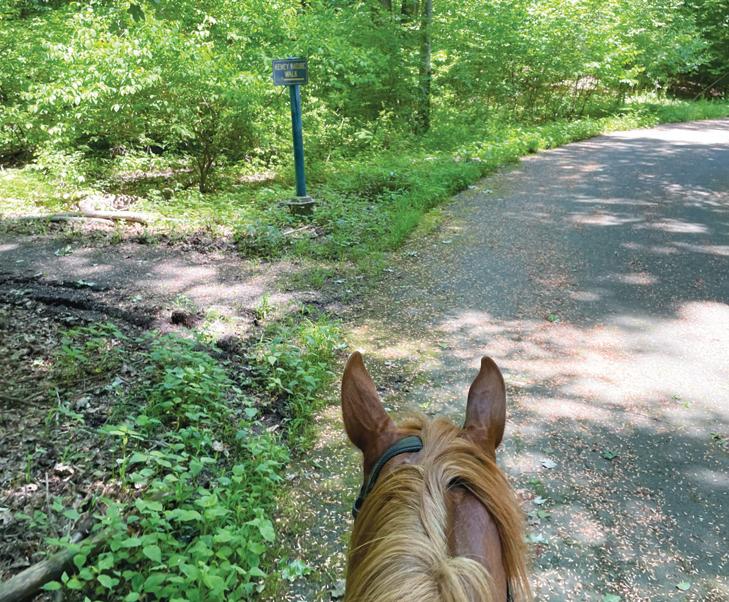
galloping through open fields, Keney Park has something for everyone. And safety is our top priority. Our trails are regularly monitored and maintained to ensure a hazard-free environment for both riders and their horses. Additionally, our park has a team of experienced staff members who are always available to assist in case of any emergencies. So, why wait? Come to Keney Park and experience the thrill of horseback riding in a safe and picturesque setting. Your horse will thank you for it!”
The Ebony Horsewomen stables are in the West Meadows section of Keney Park (337 Vine Street); access to the trails is just beyond the barns and paddocks, making the facility an ideal starting point for trail riders. Ebony Horsewomen hosts several organized rides per year, but equestrians can also use one of the public parking areas to
access the trails. The best parking for horse trailers is 112 Ridgefield Street, which has a paved lot where you can pull through multiple spots with your trailer. This location is also in the West Meadows section of the park. The second option in this area is the Keney Park Woodland entrance, where you’ll also find some paved parking spots that you can pull through. If you enter the park from the Windsor Avenue entrance, there are a few places on the park road where you can pull off or small lots that a trailer will fit in.
Pack water, fly spray, and anything else you need for your horse and yourself. There are public restrooms in a few areas throughout the park. Always clean up around your trailer before heading home. Keney Park is beloved among residents in the region and it’s a busy park with multiuse trails; be prepared to see bicycles, strollers, runners, dogs, and golf carts. We also crossed busy Tower Avenue on our ride, and had multiple cars pass us as we rode along the park road up near Windsor Avenue. Keney Park trails are a mixture of
dirt and paved. There are also rocks and roots in various places, so hoof protection is advisable.
We rode two loops with friends from Ebony Horsewomen. Our first loop was about two miles through the West Meadows, although we left miles to explore in there. The West Meadows map from the Friends of Keney Park website shows our route. We headed out on the trail behind the stables, and then took a left onto the paved trail, heading south toward Keney Park Pond (also called Turtle Pond on some maps). There is room to move your horse onto the side of the trail. We rode past the pond and then looped around on the southern boundary.
Next, we headed north on the Overlook Hill trail, and rode along the fence line past fields where a soccer game and other activities were taking place. True to the trail’s name, one of my favorite parts of this ride was the overlook—out across the fields to the cityscape of downtown

Hartford jutting up over the tree line. We cut through a trail in the woods to the Foothill Meadow Trail, coming back out into the meadow, with paths mowed around the outside edges. The woods were on our right as we followed a mowed path north and took a right onto East Meadow Trail (the purple dots on the West Meadows map), back into the woods and back toward the stables.
Back at the original intersection, with the trail to the stables in front of us, three of us took a left onto the green trail (the green dots on the West Meadows map) to explore another section of Keney Park, heading east toward Waverly Middle School and Park, and the orange dots on the Bushland Trail map. The paved trails are the old carriage road. We continued north on the orange trail, riding past the Waverly ball fields on our right, until we got to Tower Avenue. This is a busy road, so we waited for a clear stretch, and then crossed.
The dirt trails on the other side of Tower Avenue are wide, and we trotted

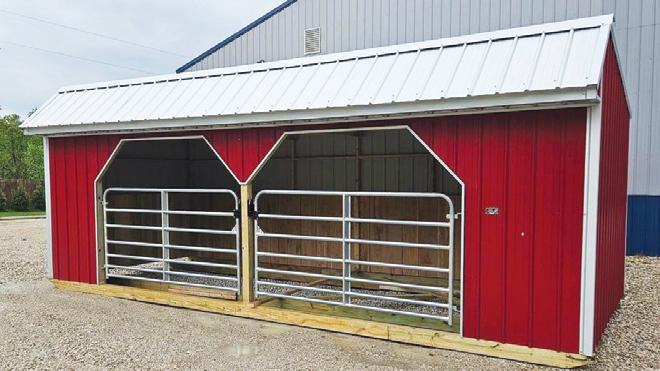
and cantered in these stretches, enjoying the quiet away from other trail users. This section is known as the 10-Mile Woods. We stayed on the main trail, but passed several side trails that beg to be explored. It’s peaceful in here, and hard to believe you’re in the capitol city. Further north along the trail is the Keney Park Golf Course. It’s popular, and on this beautiful Sunday we saw plenty of golfers, many zipping along in their carts. Everyone was courteous to the horses, and we smiled and waved too. We continued on the paved section up to the cricket field, and then took a left onto Keney Park Drive, toward the Windsor Avenue entrance.
Here, we turned around and retraced our ride back to the stables. We stopped and let some golfers cross the street and enjoyed trotting and cantering in the same stretches before arriving back at Tower Avenue. The trail comes back out along Love Lane, and we rode down Vine Street and through the main entrance of Ebony Horsewomen, rather than looping back to the stables on the trails again.
We rode 6.6 miles on this ride, leaving many miles and trails to explore another day, including more in the West and East Meadows, as well as lots of trails in the 10Mile Woods and Bushland still to ride too.
Keney Park is a gem, and thanks to Ebony Horsewomen, horses are welcome and important park trail users in this system. It’s rare to find such a welcoming and enjoyable park with this many miles of trails open to equestrians, especially in the middle of a city. Head out and explore Keney Park. I know I’ll be heading back soon.
Happy trails!
Stacey Stearns, a lifelong equestrian living in Connecticut, enjoys trail riding and endurance with her Morgan horses.


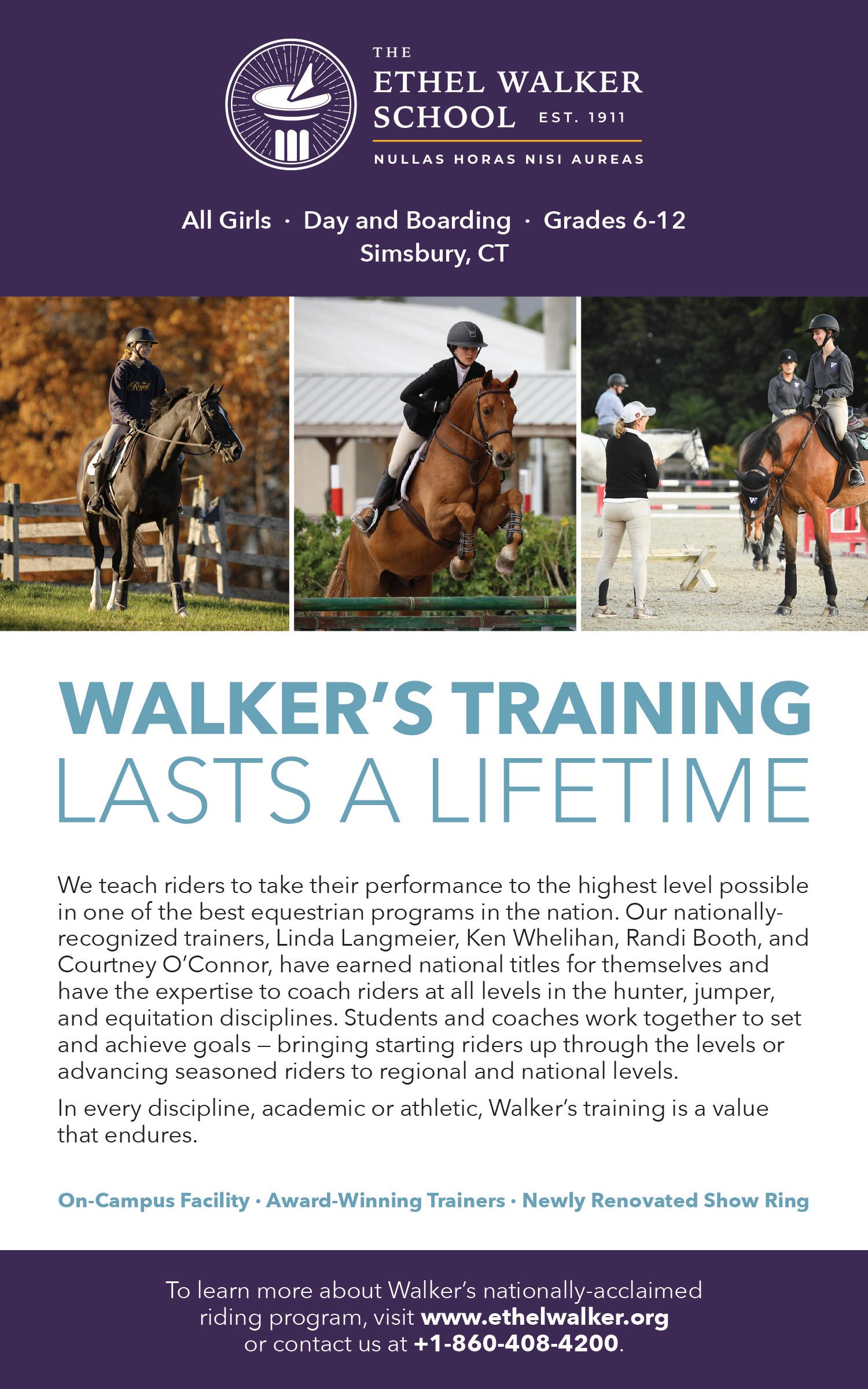

by Stacey Stearns

he Quinebaug River extends through south-central Massachusetts and down to eastern Connecticut, creating a vibrant habitat in the surrounding areas. The Trustees of Reservations acquired 36 acres along the river in Holland and named it Quinebaug Woods. Taken alone, the property isn’t remarkable for
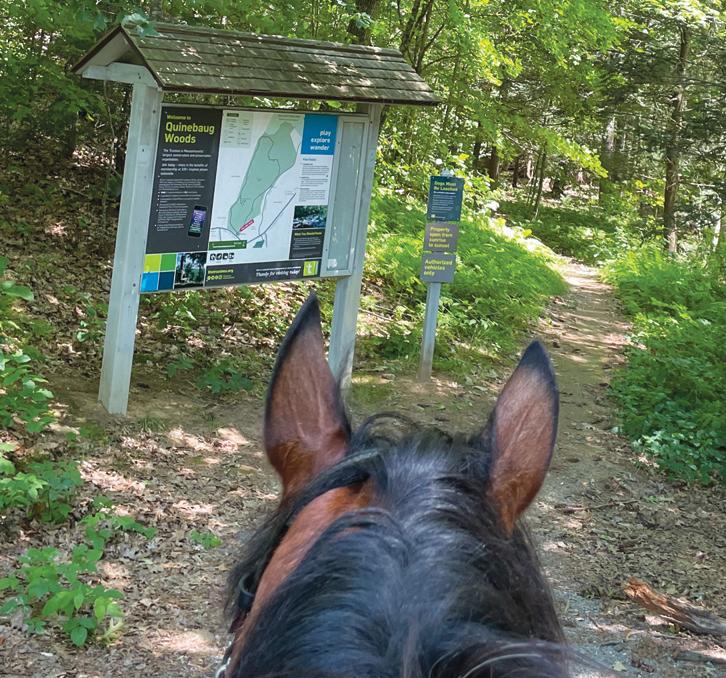
equestrians; however, its location and ecological importance make it worth the visit.
Quinebaug Woods is close to the Holland Pond Flood Control and Recreation Area, as well as the Leadmine Wildlife Management Area. Both properties boast more than 500 acres of preserved land, making a wonderful ecological landscape and diverse species habitat.
The Quinebaug Woods property was originally part of a 100-acre parcel that belonged to Professor William Haller of Columbia University and his family; it was their summer camp. The cottage had no running water or electricity. Ben and Margaret Haller, William’s son and daughter-in-law, gifted the property to the Trustees in 2001.
“Holland works hard to make these trails accessible,” Debra Becroft, a lifelong equestrian and town resident says. The Holland Trail Committee formed in 2011, and its first project connected the Lake
Siog parking area to the Grand Trunk Trail in Brimfield. Horses can use the Lake Siog Pass, which makes riding the Quinebaug Woods even easier.
It’s been a while since I’ve ridden on a Trustees of Reservations property. They can be challenging as there aren’t many miles to ride in some of the properties, and

parking is often limited. But they are always beautiful properties, and what I appreciate most about the Trustees is they are inclusive of horses at as many properties as possible. I had looked at Quinebaug Woods several times, but always opted for somewhere with more miles. On this ride, however, I was looking for a location without a lot of miles to take my gelding as we build his condition back up for pleasure riding. He’s had a couple years off from injuring his leg first in the mud, and again the next year horsing around in his field at home.
Use Dug Hill Road in Holland in your GPS. Quinebaug Woods isn’t in the Lake Siog Park section: it’s over closer to Fisherman’s Landing. Parking is tough; it’s a three-car parking lot, but there is no fee. I arrived late morning on a weekday to an empty lot, and I could have pulled in and
blocked it. I was alone, so decided against it without someone to watch the road as I backed out. Instead, I continued down the road, and pulled off on the left, just before Sturbridge Road, where there is also a large Trustees sign. I came into Dug Hill Road from East Brimfield Road. Ideally, use Sturbridge Road so the truck and trailer are headed in the same direction as traffic. It worked out for us though, and I rode the short distance up to the parking lot and entrance. Those looking for a longer ride using the Lake Siog Pass can also park at the Grand Trunk Trail using 220 Five Bridge Road in Brimfield (or Holland depending on the GPS).
Horses must be kept at a walk in the Quinebaug Woods. Kick manure off the side of the trail and clean up around your trailer. Pack everything you’ll need, including water and bug spray for yourself and your horse; there were lots of deer flies on our ride in early July. The trail is marked with yellow blazes, but it’s also a loop, so it’s hard to get lost. You only deviate from the loop when you explore the river further or go up the hogback out-and-back trail to the old cottage foundation and large stone fireplace and chimney.
This is a short trail at only 1.1 miles, but it packs a lot of technicality and beauty into limited mileage, and hoof protection helps. We rode narrow spaces between trees, a steep climb up a hill strewn with rocks and roots, and of course, the river views and access to water — my horse and I practiced entering and exiting water. There’s one good area for the horses to access the river, and a few more technical areas I didn’t explore. I started my ride heading to the right after the parking lot trail sign, going along the river first, and rode the loop a couple of times, riding in both directions to add some mileage and help my horse continue to practice technical trails. Indeed, for a short trail, I was surprised at how many different ecosystems we rode through, as the area around the trail appeared to change in places. There’s a vernal pool near the top of the ridge that’s home to salamanders and frogs in the spring. Trees line all the trails, but it’s narrow and rocky along the river with large
boulders, and wide and grassy on the western side of the loop. The large trees and huge boulders provided glimpses of this land’s story and made me wonder about all the people before us who have wandered through these woods and accessed the river. I could tell why the Haller family enjoyed this area for so many years, especially as I gazed out over the river. I saw one other trail user, a man and his Newfoundland dog, walking from their house to the trail as I arrived, but I didn’t see them again.
The property is small at only 36 acres, but the boundaries are well marked with Trustees’ boundary signs, so you know not to follow the side trails. This was helpful, especially in one section on the western edge of the property, where a beautiful trail on the right led to a small pavilion. I wondered about its original purpose and current use but rode on.
Once you are back in the small parking lot, turn around, and head back out on the trail; I went to the left on the second loop. After riding a few loops, I went to the right out of the parking lot (away from my truck and trailer) and back toward the Lake Siog Recreation Area. The Army Corps of Engineers manages this location, and it’s a popular picnic and water recreation spot. The Lake Siog Pass is accessed via Pond-Bridge Road, on the opposite side of Holland Pond from the Quinebaug Woods and the access gate I rode to. There is a trail around the pond, but since my gelding needed an easier ride, I didn’t explore further on this outing.
Use the Holland Trail Committee guide for directions on riding the Lake Siog Pass (https://town.holland.ma.us/ sites/g/files/vyhlif3266/f/uploads/lake_ siog_pass_trail_guide.pdf).
This section of Massachusetts has a wealth of properties where we can ride horses, and I plan on returning to Quinebaug Woods and riding the Lake Siog Pass over to the Grand Trunk Trail, one of my favorite rides, again soon. The technicality in Quinebaug Woods is good training. Following a route and combining properties keeps it interesting.
Happy trails!
Stacey Stearns, a lifelong equestrian living in Connecticut, enjoys trail riding and endurance with her Morgan horses.

West Greenwich

by Stacey Stearns
hode Island may be the smallest state, but it certainly has vast amounts of open space. I’m always pleasantly surprised by just how many miles of trails and acres of woods and open space there is for equestrians in the Ocean State. I hadn’t heard of Wickaboxet Management Area, but the Moswansicut Riding and Driving Club (MRDC) was hosting a ride on the Wickaboxet trails and those in Nicholas Farm Management Area, so I headed out to ride with them in early June.

Wickaboxet is a 678-acre wildlife management area and is heavily forested with both deciduous and coniferous trees, along with some wetlands. The Rhode Island Department of Environmental Management (RIDEM) is the land steward for both properties.
Wickaboxet has a unique history. It was designated Rhode Island’s first state forest in 1932. The Civilian Conservation Corp built a picnic area at Stepstone Falls, which is now part of Arcadia Management Area’s West Greenwich property. The National Park Service had a grand opening for the picnic shelter on Memorial Day in 1938 when it opened as a day-use facility. The shelter was refurbished by the Appalachian Mountain Club in recent years and is a favorite spot among hikers. Arcadia is a vast forest popular for its horse campground.
Wickaboxet is also south of Carbuncle Pond and the Trestle Trail. It’s possible to ride from Wickaboxet to Carbuncle Pond on a long ride. In fact, the MRDC ride included Wickaboxet, Nicholas Farm Management Area, and some private trails (with permission) the day I joined them. The Tillinghast Pond Trail System and Pratt Conservation Area are also adjacent and create a 2,700-acre section of conserved land. All together, these various properties provide a large swath of pristine riding in the eastern part of the state.
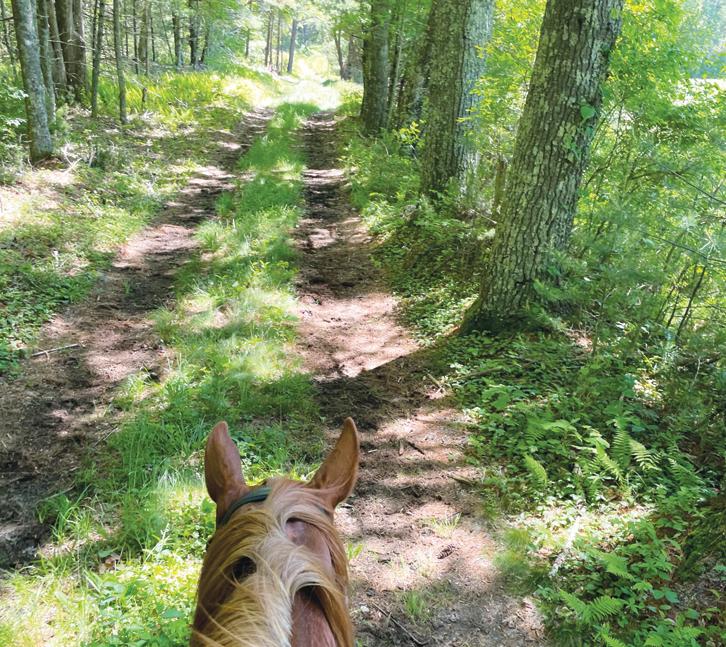
Irene Watson is a MRDC member and helped organize the ride with other club members and Jessica Giroux, club president. “The Nichols Road area in Greene, Rhode Island, has a diverse trail system,” Irene says. “The terrain is a mixture of dirt roads, fields, wood paths, a beaver pond crossing, and of course the North-South Trail.” (The North-South Trail is a 77-mile hiking trail that spans the entire length of Rhode Island.)
Indeed, the beaver pond crossing, where the water overflowed the trail alongside Nichols Pond was one of my favorite parts of this ride, and I was excited that we rode through it twice. We also saw the “39 miles to the ocean” marker for the NorthSouth Trail on our ride with the MRDC.
Public parking for Wickaboxet is available at one of two areas on Plain Meeting House Road in West Greenwich. Both are small lots, but you can pull a trailer in if no one else is there. The six-car lot with direct access to Wickaboxet has the GPS coordinates of 41° 38.192' N, 71° 44.15' W, and is on the right when traveling west. The other option is to continue west to the Bates Homestead parking, also on the right, and then riding the short distance back to Wickaboxet. These are quiet roads, and parking is usually easy thanks to the abundance of trail options.
Horses aren’t allowed on the Tillinghast trails, a Nature Conservancy property. The five-plus miles of trails in Wickaboxet connect directly to those in Tillinghast and Pratt Conservation area, which are located on either side of Wickaboxet, so pay attention to the signage.
This is a large forest area, so be sure to ride with a map or photo of the map on your phone and let someone know your planned route. Pack everything you’ll need, from water to insect repellent, and make sure you carry everything out. Clean up around your horse trailer.
The easiest route to ride is the five-mile Wickaboxet Loop, which follows the perimeter of the property. The woods roads through the forest make it easy to follow and ride next to another horse. Head onto the trail from the parking area and go left at the first fork in the trail. Now you’re riding west, toward Tillinghast Pond. Look for the site of the Wilcox Homestead in this trail stretch. All that’s left are the basement ruins, rocks piled in a square formation in the underbrush. The trail meanders north and comes to another fork. The trail to the left is Tillinghast’s Flintlock Loop. Go right and stay on Wickaboxet as it travels with Flintlock. Some maps call this Narrow Lane.
A side trail on the right is an out-andback that leads to a scenic overlook of a pond. Once back on Wickaboxet continue north until Flintlock and Wickaboxet split. Here, you’ll stay right, and head east to continue the Wickaboxet loop. The trail continues its gentle arc through the woods,
taking you slightly further north along some ledges before bringing you south again. There’s a former tower site just before the trail takes a right to head south again toward Plain Meeting House Road. There are several side trails as you ride toward Plain Meeting House Road. You can stay on the main trail or explore the side trails. This requires some out-and-back riding but adding the side trails gives you closer to six miles in Wickaboxet.
We went right on one of these trails, and then took another right further up the trail, past a side trail on the left. This came back down to the main section of the trail, and we went right, retracing our route back toward Plain Meeting House Road. There are more trails in here to explore too. There are several large boulders in that area that are popular with rock climbers. Unfortunately, the boulders are also a party location.
Plain Meeting House Road will bring you back to your trailer. For some riders, this is enough, but if you are looking for a few more miles you can take a right on Plain Meeting House Road and ride up past the intersection with Narrow Lane to Plain Road. Watch for vehicles in here. Take a right onto Plain Road and ride up into Tillinghast and the Larkin and McAlpine Preserve. You can’t ride in the Preserve; it’s an Audubon Society wildlife preserve, but the roads loop around it, or can take you over to Nicholas Farm Management Area to add more miles to your ride. The day we rode around Larkin and McAlpine we saw a few cars and a fourwheeler; otherwise, we had the trails and roads to ourselves. It’s one of the features I love best about the trails in this area — there is so much space that it really can feel like you’re out there riding all by yourself.
Rhode Island has so much to offer, and every time I ride in this eastern trail and forest system, I discover just how much more I still need to explore. Wickaboxet Management Area has the added advantage of nearby trail systems so you can lengthen your ride or vary the scenery and ride here again and again. I know I will be.
Happy trails!
y
Stacey Stearns, a lifelong equestrian living in Connecticut, enjoys trail riding and endurance with her Morgan horses.
The Community Horse Youth Award is given to the junior exhibitor who has shown the best horsemanship and sportsmanship at an equestrian competition. This is the youth who is working hard with a great attitude. This junior is taking good care of their horse, cheering on their friends, and helping others.
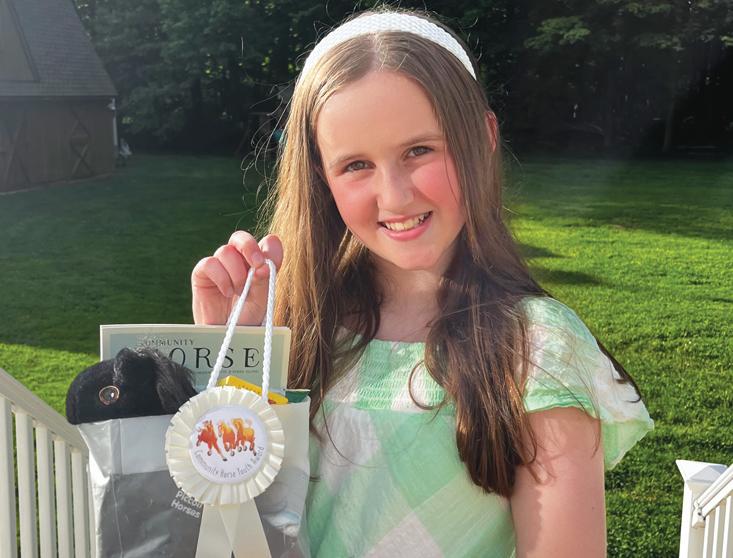
y Ashling Cleveland, 11, of Bethany, Connecticut, won the Community Horse Youth Award at the Connecticut Dressage and Combined Training Association’s May 12 show. “Moon and I have been a pair for almost three years now and love jumping in competitions,” says Ashling. Congratulations, Ashling!
yKayla Eustace (no photo), 13, of North Granby, Connecticut, won the Community Horse Youth Award at the Westfield Riding Club’s June show riding Vic. Congratulations, Kayla!

y Cameron Bartsch, age 8, of Quaker Hill, Connecticut was the recipient of the Community Horse Youth Award for the three Tri-State Horseman’s Association Dressage and Two-phase shows. Cameron, who competed in Intro Dressage, worked hard with his favorite horse Pumpkin (a.k.a. Walla Walla Rooster) and improved at each show. He always had a smile on his face and arrived early to shows and stayed late after he rode to help with anything that was needed by his barn mates and by the show. As a show volunteer, he ran dressage tests, got horses water, and cheered on other competitors. Congratulations, Cameron!

y Fourteen-year-old Bobbi Enman of Webster, Massachusetts, won the Community Horse Youth Award at the Bay State Trail Riders Association’s Annual Awards Banquet. “Thank you!” says Bobbi, “My Standardbred cross, Matilda, loves the treats [in the award]!” Congratulations, Bobbi!
To request a free Community Horse Youth Award for your upcoming equestrian competition in Connecticut, Massachusetts, or Rhode Island, visit communityhorse.org/youth-awards.

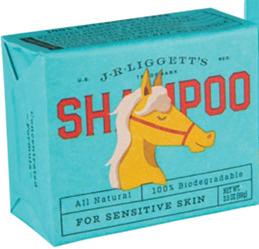

Special thank you to J.R. Liggett’s, jrliggett.com, for sponsoring the Youth Awards!
Reno and Betsey MacDonald
Complete Century Ride
“My horse, Reno, and I completed The Dressage Foundation’s Century Ride this year,” says equestrian artist Betsey MacDonald of Clayville, Rhode Island. “I want to encourage others to do it, too. We had a blast, and it was so much fun at 73 to be working with 27year-old Reno on this project. I’m sure a few other seniors in our area have done this as well.”
The Dressage Foundation’s Century Club recognizes dressage riders and horses in the United States whose combined ages total 100 years or more. Horse and rider perform a test of any level, at a competition or at their home barn, and are scored by a dressage judge or professional. English and western dressage riders are welcome. Nearly 800 horse and rider teams have joined the Century Club since it began in 1996. The Dressage Foundation is a nonprofit organization whose mission is to cultivate and provide financial support for the advancement of dressage in the United States.
Stables in Templeton, Massachusetts, on May 30. All people and animals made it out safely. The training facility was destroyed, but the house was only partially damaged.

The owner, Kim Homans, posted on Facebook, “The barn is on fire. We got horses outside.” On May 31, Kim posted, “I’m overwhelmed with the farm community and all the help everyone has done for our business. Words cannot express my gratitude. We want to extend our deepest sympathy to the Murphy family. The Murphy’s own the property that we rented to run Liberty-Belle Stables. We’re so grateful for the firefighters, police department, animal control, and the community. We intend to rebuild our business and reunite our barn family. Although the location may change, our barn family remains. Our horses are safe, some with minor injuries, and we are thankful they are still with us.”
In 2024, Massachusetts pairs Joy Cooke and Wesmore Beaudacious, Jean Pongratz and Atlantico, Nardine Bellew and Epona Mystique, and Linda Williams and Willamina have also joined the Century Club. Congratulations!
To join the Century Club, visit dressagefoundation.org.
More than a dozen horses were saved from a massive fire that destroyed Liberty-Belle
Liberty-Belle is now located in Hubbardston at Kim’s home. “We’re working hard to get back up and running,” says Kim. “The horses have adjusted and are happy. We’ve been signed off by the state to begin lessons again. The arena is small but rideable, and we have plans in the future to expand. We’ve added a couple of run-in shelters because we do not intend to stall our horses again. We’re waiting on quotes and town permission to clear some of our land to provide bigger paddocks.
“We’re so thankful for the community and its support. We would not have been able to get this far without the financial
help, the donations, and the shoulders to cry on. We thank you from the bottom of our hearts.”
Saved: Equine Rescues of Connecticut galloped onto the literary scene, highlighting inspir ing stories and challenges of horse, pony, donkey, and mule welfare in July. Released by Mouse Hole Farm Press, the coffee-table-style book is by Andrea Steele with photogra phy by Sarah Grote. Sarah is an award-winning photographer and vice president of the Connecticut Draft Horse Rescue. “Andrea and I teamed up for this project because it’s a topic that’s close to our hearts,” says Sarah. “We spent last year visiting rescues to document individual stories through words and photographs. The equines we met had their lives shattered and then restored solely because people not only cared —
they acted and made a difference. We set out to highlight certain hard truths in a way that would share the challenges, talents, and triumphs.”

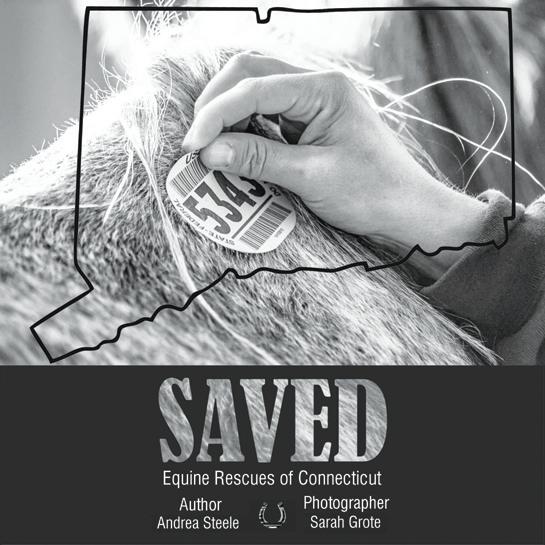
Andrea is a lifelong equestrian, mystery novelist, and producer of Advanced Equine Studies (educational books and videos). “A diverse group of nine Connecticut rescue organizations joined us on the project,” says Andrea. “I feel so privileged to have them trust us to tell their stories. Reading the book will stir a wide range of emotions, but rest assured, you will be inspired by what these rescues accomplish. You’ll put the book down with a smile on your face.”
The book is a fundraiser for the featured rescues. Purchase your copy at advancedequinestudies.com/saved.
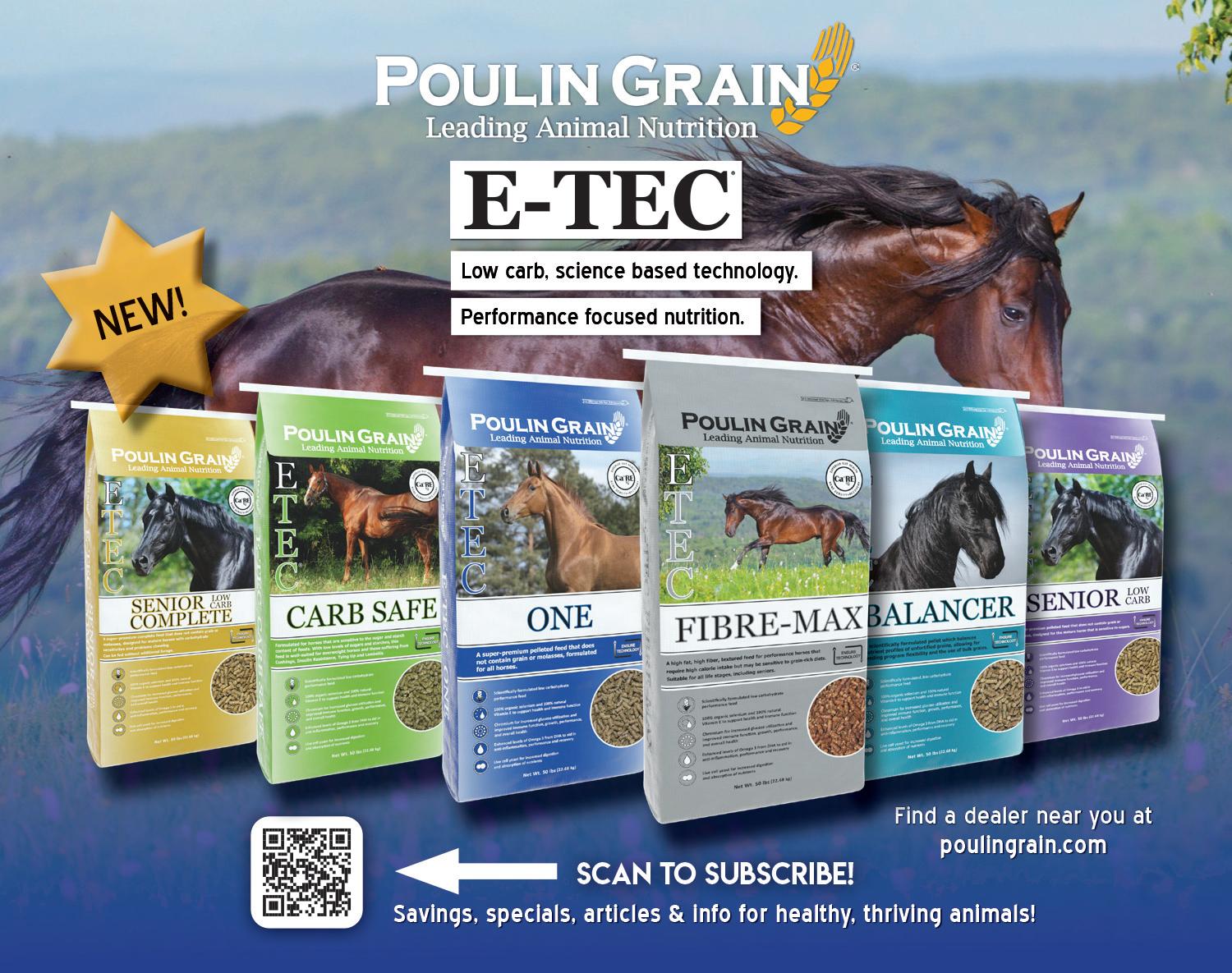
The second annual Black Boots Awards (BBA) was held Memorial Day weekend. Festivities began on Friday with a Denim and Diamonds Dance at the Mary Fields Museum and Conference Center.
The BBA ceremony was held Saturday at the Greater Hartford Academy of the Arts. The event celebrated finalists in diverse categories for adults and youth including rodeo, equestrian influencer, equine tradesperson, trainer, and Blackowned equine organizations. Local (Hartford) saddle maker Richard Dwyer won the BBA for Equine Tradesmen.
The weekend ended with a Sunday morning trail ride through Hartford’s historic Keney Park. Following the ride everyone gathered for a barbecue. The weekend captured the spirit of camaraderie and celebration, leaving attendees with lasting memories and a sense of community within the horse industry.
To learn more and watch the BBA, visit ebonyhorsewomen.org/black-bootsaward-bba-2024.y

Endoscopy . Gastroscopy
Equine Preventative Health . Emergency Services
Vaccinations . Equine Dentistry
Lameness Workups Including Digital Radiography, Ultrasound, and Lameness Locator
Pre-purchase Examinations . Reproductive Procedures
Dr. Fred Hess 1 Dr. Rose McWilliams
Dr. Caroline Barstow 1 Dr. Aislinn Latham
Dr. Annie Gagliardi
Hess McWilliams Veterinary Services
143 N. East St., Amherst, MA . (413) 549-6900 drfrederick.hess@gmail.com hessmcwilliamsvet.com


Offering services in radiology, dentistry, preventative
Looking for a way to get more involved in your equestrian community? Listed here are nonprofit clubs, associations, and rescues in your neighborhood. Each listing’s heading is color coded by state. yConnecticut yMassachusetts yRhode Island y New England
y Arabian Horse Club of Connecticut ahcofct.org
The Arabian Horse Club of Connecticut (AHCC) is a nonprofit organization dedicated to promoting, encouraging, and stimulating interest in the outstanding qualities of the beautiful and most versatile equine, the Arabian and half-Arabian horse. AHCC is the largest Arabian Horse Association-recognized club in Region 16, an area that includes New York and most of New England.
y Barre Riding and Driving Club barreridingdrivingclub.com
The nonprofit Barre Riding and Driving Club (BRDC) promotes interest in horses, furthers ideals of equine education and sportsmanship and raises funds for scholarships. The 80-year-old BRDC hosts a spring and fall trail ride, clinics for members, and a horse show series at Felton Field in Barre, Massachusetts. Proceeds from the BRDC Scholarship Show, one of the shows in the series, are used to award academic scholarships to local students, as well as equine scholarships to children and adults to assist in their equine pursuits.
y Bay State Trail Riders Association bstra.org
The Bay State Trail Riders Association (BSTRA) keeps access to trails open for equestrian use. BSTRA advocates for multi-use trails that are horse friendly and include hiking, mountain biking, snowmobiling, cross-country skiing, and snowshoeing. The organization strives for the acquisition, maintenance, and preservation of trails to benefit all trail users. BSTRA’s projects have made improvements in forests and parks in 33 towns in the Commonwealth. BSTRA offers organized trail rides in Massachusetts, and a few in Rhode Island.
y Camp Marshall 4-H Center campmarshall.net, campmarshallequestriancenter.net Camp Marshall, in Spencer, Massachusetts, provides a positive learning experience for youth in a safe and fun environment with hands-on outdoor and agricultural experiences that foster respect, independence, and positive self-esteem. This is a private, nonprofit organization with a long tradition of providing a 4-H–based camp experience to youngsters each summer. Children do not have to be 4-H members to attend Camp Marshall. Weekly equestrian summer camps and vacation camps are just a few of the activities for equestrians. A horse show series is held at Camp Marshall.
y Charles River Dressage Assoc. crdressage.org
The Charles River Dressage Association (CRDA) provides an affordable, quality dressage schooling show series, clinics, educational lectures, and sponsorships to its members and the local community. The schooling show series is held at Apple Knoll Farm in Millis, Massachusetts. In addition, CRDA strives to offer a friendly casual forum in which riders can compete and gain knowledge about dressage.
y City to Saddle citytosaddle.org
“Give a child a leg up!” That’s been the City to Saddle motto since the launch of this program in 2004. It underscores the mission of providing equestrian opportunities for underserved children — programs that enrich the lives of boys and girls in so many ways — fostering confidence, self-fulfillment, and joy. City to Saddle is a
grassroots Massachusetts-based nonprofit organization run by a devoted group of volunteers.
y Connecticut Barrel Horse Assoc. ctnbha01.com
The Connecticut National Barrel Horse Association club provides safe, fun, and competitive events for all who wish to barrel race not only in Connecticut, but throughout the New England Area. All levels of riders from beginner barrel racers through advanced are encouraged to join.
y Connecticut Color Breed Assoc. connecticut-color-breed-association.mailchimpsites.com
The Connecticut Color Breed Association (CCBA) was established in 2011 for the promotion of equines, no matter the size or breeding, to participate in a variety of competitions and programs for equestrians of every age, seat, and level. CCBA offers an Equestrians with Disabilities division at its five shows as well as an Open Walk Trot division. CCBA’s Dressage Program offers three virtual shows, as well the option to submit scoresheets of 55 percent or higher from other shows (in-person or virtual), and the CCBA Trail Miles Program encourages members to get out of the ring. Both programs have opportunities to earn great prizes at the year-end banquet.
y Connecticut Draft Horse Rescue ctdraftrescue.org
Connecticut Draft Horse Rescue is an all-volunteer, nonprofit organization dedicated to saving the lives of draft horses bound for slaughter, in addition to the victims of starvation, neglect, or abuse, or surrendered by owners no longer able to provide for their needs. Since its inception in 2011 by founder, executive director, and equine veterinarian, Stacey Golub, 130 horses have been rescued and the majority adopted into loving new homes.
yConnecticut Dressage Assoc. ctdressage.org
The Connecticut Dressage Association (CDA) is a nonprofit organization promoting dressage in the Northeast through education and opportunity. CDA is also a Group Member Organization of the United States Dressage Federation, which offers schooling shows, recognized shows, clinics, and year-end awards.
y Connecticut Dressage & Combined Training Assoc. cdctaonline.com
The Connecticut Dressage and Combined Training Association (CDCTA) is an all-volunteer, nonprofit equestrian organization dedicated to providing instruction, education, and competition opportunities for classical/western dressage and event riders of New England. Each year, CDCTA hosts a schooling show series at venues throughout Connecticut, featuring the Jockey Club Thoroughbred Incentive Program and Pony Cup. Clinics, workshops, and special events are scheduled throughout the year. Equestrians of all ages and skill levels are welcome to join or come to events; membership perks include discounted fees and eligibility for yearend awards.
y Connecticut Gymkhana Assoc. facebook.com/connecticutgymkhana
The Connecticut Gymkhana Association promotes fun-filled competition and strives to educate its membership.
y Connecticut Horse Council cthorsecouncil.org
The Connecticut Horse Council (CHC) is a nonprofit organization dedicated to serving all aspects of the horse industry in Connecticut. CHC is an affiliate of the American Horse Council. Since 1971, CHC
has worked to be the voice of the horse industry in Connecticut. CHC has been involved with zoning, enacting state laws, equine health issues, disaster planning for horses, and more. CHC regularly interacts with legislators, town boards, and others in its dealings with horse-related concerns. The organization also advocates for horse owners in Connecticut and is a resource for those seeking information.
y Connecticut Horse Shows Assoc. chsaonline.com
The Connecticut Horse Shows Association (CHSA) welcomes all riders who seek good sportsmanship and enjoy competition. CHSA was established in 1928 to encourage and promote the interest of Connecticut horse shows. CHSA has approximately 100 affiliated shows each year enabling riders and horses to compete for more than 100 year-end awards. CHSA also has a scholarship program for members pursuing higher education and has given more than $50,000 in scholarships.
y Connecticut Morgan Horse Assoc. ctmorgans.org
The Connecticut Morgan Horse Association is a nonprofit organization dedicated to promoting and enjoying the Morgan breed. The club has numerous events throughout the year, including the annual Connecticut Morgan Horse Show in June; all are welcome, including all breeds of horses.
y Connecticut Renegades ctrenegades.com
Do you enjoy camaraderie and competition? If you've been thinking about trying something new with your horse, we invite you to join the Connecticut Renegades to see what cowboy mounted shooting is all about. Come meet the horses, cowboys, and cowgirls and watch the excitement as riders turn back the clock to the late 1800s. Riders in this timed event carry two .45 caliber single-action revolvers loaded with specially prepared blank ammunition as they ride through designated patterns firing at balloon targets. The Renegades offer a new horse/new shooter clinic each spring; riders of all ages and skill levels are welcome.
y Connecticut Trail Rides Assoc. cttrailridesassoc.org
The Connecticut Trail Rides Association (CTRA) is a nonprofit, volunteer organization founded in 1940. CTRA is a family-oriented group with a campground in Goshen, Connecticut, adjacent to the Mohawk State Forest. Members can enjoy camping with their horses and riding the beautiful trails there. During the riding season CTRA holds six organized camping weekends, which include meals and events. From March through November, CTRA also hosts several trail rides and events throughout Connecticut.
y Epona Safe Haven facebook.com/eponasafehaveninc
Epona Safe Haven is a 501(c)3 nonprofit equine rescue located at Journey’s End Farm in Scituate, Rhode Island. Epona Safe Haven has rescued, rehabilitated, and rehomed 60 horses, ponies, donkeys, and mules during the past five years. Epona Safe Haven is passionate about rescuing at-risk equines from slaughter, preventing them from going to auction, serving as an educational resource, and offering adoption services.
y Granby Horse Council granbyhorsecouncilct.com
Founded in 1979 by residents of Granby, Connecticut, the GHC is a nonprofit organization whose purpose is to promote the protection of the rights of horses, other equines, and the horse people in the town of Granby; the education of horse owners and the public; educational and charitable causes in the community; and riding activities such as trail riding, parades, and demonstrations.

Be the best you can be in the saddle. Be 100% to give your horse your all.
• Loosen up back, spine, knees, and ankles.
• Strengthen quads and core.
• Gain upper body flexibility.
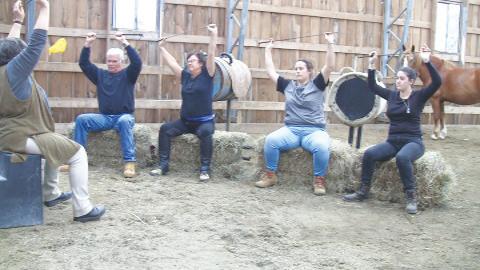
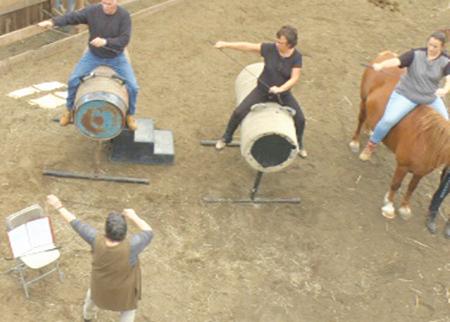
Judith is a retired international dancer/performer who studied in NYC with Joseph Pilates in the late 60s. She teaches Barre Stretch & Posture classes for the ALFA program, Fitchburg State University.
Focus on stretches to get ready for your ride.
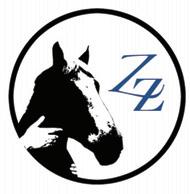
ZZ Productions
Judith Lindstedt
zz.judithproductions@gmail.com
y Granby Regional Horse Council granbyregionalhorse.org
Since 1994, the nonprofit Granby Regional Horse Council (GRHC) has served the needs of equestrians in greater Western Massachusetts. GRHC offers educational lectures, organizes trail rides, hosts an annual horse show, and works with other groups to save trails and open space.
y Greenwich Riding and Trails Assoc. thegrta.org
The Greenwich Riding and Trails Association (GRTA) preserves, protects, and promotes open space, historical trails, and the tradition of horseback riding. The GRTA organizes several annual equestrian events as fundraisers to support this mission. GRTA’s Nichols Nature Preserve is a 94-acre property open to horseback riding.
y Hampshire County Riding Club hampshirecountyridingclub.org
The Hampshire County Riding Club (HCRC), established in 1939, is a nonprofit organization focused on the commitment to the care, breeding, and protection of horses, and promoting the knowledge of horses and horsemanship. The club’s 47-acre grounds with two large rings, woodland obstacle course and trails are in Goshen, Massachusetts. The club offers fun events for equestrians of all ages and disciplines. HCRC hosts trail rides held from the club grounds and state forest locations, gymkhana and obstacle competitions, several horsemanship clinics, and community events along with monthly meetings featuring educational presentations.
y Hanover Hunt and Riding Club briggsstable.com
The Hanover Hunt and Riding Club (HHRC) is a volunteer-based organization that began in 1932. The HHRC holds numerous events throughout the year, including the annual June Horse Show, the Wednesday night Mini Shows, trail rides, a used tack sale, and an
annual awards banquet. HHRC is located at Briggs Stable in Hanover, Massachusetts, where the Hanson Riding Club, Heritage Dressage Association, and the Massachusetts Horsemen’s Council also hold shows.
y Hanson Riding Club hansonridingclub.org
The Hanson Riding Club (HRC) hosts trail rides, horse shows, clinics, and a year-end awards banquet. HRC offers four organized trail rides each year, including a benefit beach ride, in addition to two versatility events. Throughout the year, HRC organizes clinics with trainers and judges. In addition to its scholarship program, HRC also offers two reward programs — the Ambassador Program and Milestone Points.
y Hay Burr Inn Equine Rescue & Sanctuary hayburrinn.org
Hay Burr Inn’s all-volunteer staff is dedicated to saving the lives of horses that are victims of starvation, neglect, abuse, bound for slaughter, or whose owners are unable to provide for their needs. The nonprofit organization’s goal is to rehabilitate and restore the physical and emotional health of the horses and when possible, to find them a loving foster home, or continue to give them the special, intensive care they need to live out their days in peace at Hay Burr Inn’s Plainfield, Connecticut, location.
y H.O.R.S.E. of Connecticut horseofct.org
The Humane Organization Representing Suffering Equines, H.O.R.S.E. of Connecticut, established in 1981, is a nonprofit organization dedicated to the rescue and rehabilitation of abused and neglected horses. In addition to rescue, H.O.R.S.E. maintains an ongoing commitment to educating the public on proper horse care. Open houses, horse showing events, volunteer days, and basic horse care clinics provide opportunities to meet the horses.
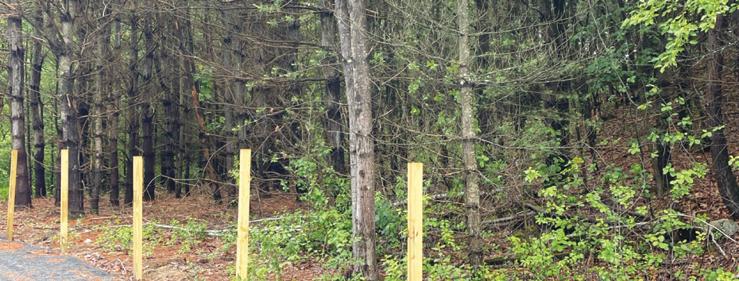



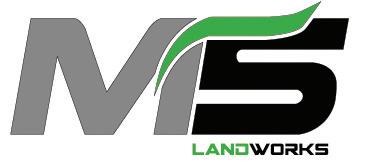
y Massachusetts Horsemen’s Council mahorsecouncil.com
The Massachusetts Horsemen’s Council (MHC) is comprised of equestrians of all breeds and disciplines with a focus on hunter/ jumper, equitation, and pleasure styles of riding. The Council offers support and guidance for those interested in the Massachusetts show circuit, the MHC Finals, higher education scholarships, marketing and communication internships, or the year-end banquet.
y Massachusetts Morgan Horse Assoc. massmorgan.com
The Massachusetts Morgan Horse Association hosts one of the largest all-Morgan horse shows in the country. Its members are eligible for generous academic scholarships and year-end awards.
y Massachusetts Quarter Horse Assoc. massqha.com
The Massachusetts Quarter Horse Association is organized to educate youth and adults about the American Quarter Horse; its temperament and history; to advocate for the best interests of Quarter Horse owners, riders, and enthusiasts, as well as the breed; to promote and encourage breeding, performance, and competitions involving the American Quarter Horse within the Commonwealth; and to encourage sportsmanship and youth activity. Check out our Ride Program, open to all breeds, to earn special prizes for hours ridden.
y Middlebury Bridle Land Assoc. middleburybridle.org
The Middlebury Bridle Land Association (MBLA) in Middlebury, Connecticut, is a nonprofit organization dedicated to the preservation and protection of our region’s bridle trails for horseback riding. The MBLA welcomes riders of all disciplines to enjoy its country trails and join in its efforts to save and defend our equestrian heritage. Membership strengthens MBLA’s efforts in safeguarding
treasured bridle land. Each day equestrians are losing more and more open spaces to development, never again to be claimed for riding.
y Myopia Hunt Club myopiahunt.org
The Myopia Hunt Club, established in 1882, welcomes all equine enthusiasts to participate in foxhunting. The Myopia Hunt gathers just north of Boston, Massachusetts, with foxhunting meets in Hamilton, Ipswich, Topsfield, Essex, Rowley, Newbury, and West Newbury. Equestrians can participate as subscribers, patrons, or cappers, and enjoy foxhunting by following the hunt. The Myopia Hunt is grateful to have such beautiful countryside — a combination of both public and private property whose owners have generously granted it access. The spring season begins in late April/early May. Fall roading starts in September.
y Nashoba Valley Hunt nashobavalleyhunt.org
Located in Royalston, Massachusetts, Nashoba Valley Hunt is dedicated to the enjoyment of foxhunting. Members enjoy their time out with the hounds while riding horses, bicycles, walking, or following along in their vehicle. It’s a time to enjoy the countryside as well as work the hounds. Each meet ends with a traditional hunt breakfast where members can enjoy each other’s company and share the follies of the hunt. Hunting season typically runs from opening meet in September to late December, or whenever the snow and ice make the footing too treacherous.
y New England Equestrian Center of Athol neeca.org
The New England Equestrian Center of Athol (NEECA) is a horse park in North Central Massachusetts. Through grants, fundraisers, numerous equestrian events, auctions, and tack sales, along with
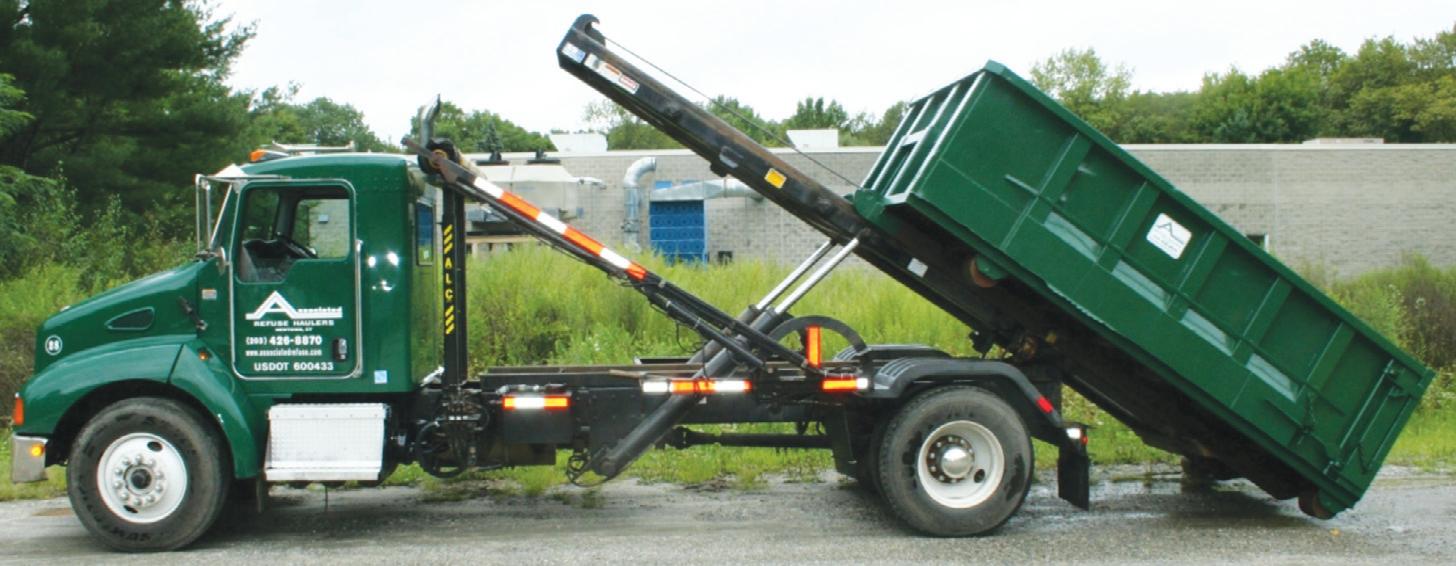

hands-on workdays at the park, NEECA members continue to maintain and improve this 200-acre horse park. The park offers a fenced-in main arena and a second arena; a round pen located near the main arena; a trail loop with a versatility confidence course; the NEECA Nibblers food booth; and a large trailer parking area adjacent to the main ring.
y New Canaan Mounted Troop newcanaanmountedtroop.org
The New Canaan Mounted Troop (NCMT) is a nonprofit youth development and therapeutic equestrian center located in New Canaan, Connecticut, whose mission is to build leadership, responsibility, and confidence in youth through sound horsemanship and to enrich the lives of individuals with special needs through equineassisted activities.
y Newtown Bridle Lands Assoc. nblact.org
The Newtown Bridle Lands Association (NBLA) is a nonprofit volunteer organization formed in 1978 in the town of Newtown, Connecticut. NBLA’s goal is to foster an interest in horseback riding as well as to preserve, protect, and maintain riding and hiking trails in the community. NBLA works with landowners and developers to maintain and expand crucial links in Newtown’s trail system.
y North Shore Horsemen’s Assoc. facebook.com/profile.php?id=100064651723107
The North Shore Horsemen’s Association holds pleasure shows at Bob-Lyn Stables in Amesbury, Massachusetts, and hunter shows in Hamilton. An awards banquet finishes the year.
y Northeast Icelandic Horse Club www.neihc.com
The Northeast Icelandic Horse Club (NEIHC) was founded in 2003

and is a regional club of the United States Icelandic Horse Congress. Its goals are to promote interest in Icelandic horses and to share information about the breed. NEIHC organizes shows, clinics, trail rides, breed evaluations, competitions, and opportunities to learn more about Icelandic horseback riding and horsekeeping.
y Old North Bridge Hounds oldnorthbridgehounds.org
The Old North Bridge Hounds (ONBH), established in 1969, is registered with the Masters of Foxhounds Association. ONBH’s hunt country, primarily in Middlesex County, Massachusetts, is a combination of suburban and rural territories. Like most hunt clubs, ONBH engages in drag hunting, not live foxhunting. This ensures that the hounds will follow a scent laid on a prescribed course; it also ensures participants a nice run every time the hounds go out. Hunts are Tuesday and Saturday mornings during the hunting seasons. The ONBH also holds a hunter pace series.
y Peace For All Animals peaceforallanimalsrescue.org
Peace For All Animals is a rescue organization whose goal is to help donkey foals, pregnant jennys, and many other animals in need. They are in East Wareham, Massachusetts and serve the South Shore and Cape Cod Area.
y Pomfret Horse and Trail Assoc. pomfrethorseandtrail.com
Pomfret Horse & Trail Association (PHTA) is a nonprofit, volunteer organization formed in 2007 to preserve and maintain open space and the historic trail system in Pomfret, Connecticut. PHTA brings local equestrians together to find riding partners, learn trails, and organizes activities, presentations, and social events for its members. It also sponsors rides, clinics, and educational presentations, which are open to all equestrians. PHTA promotes the safe enjoy-

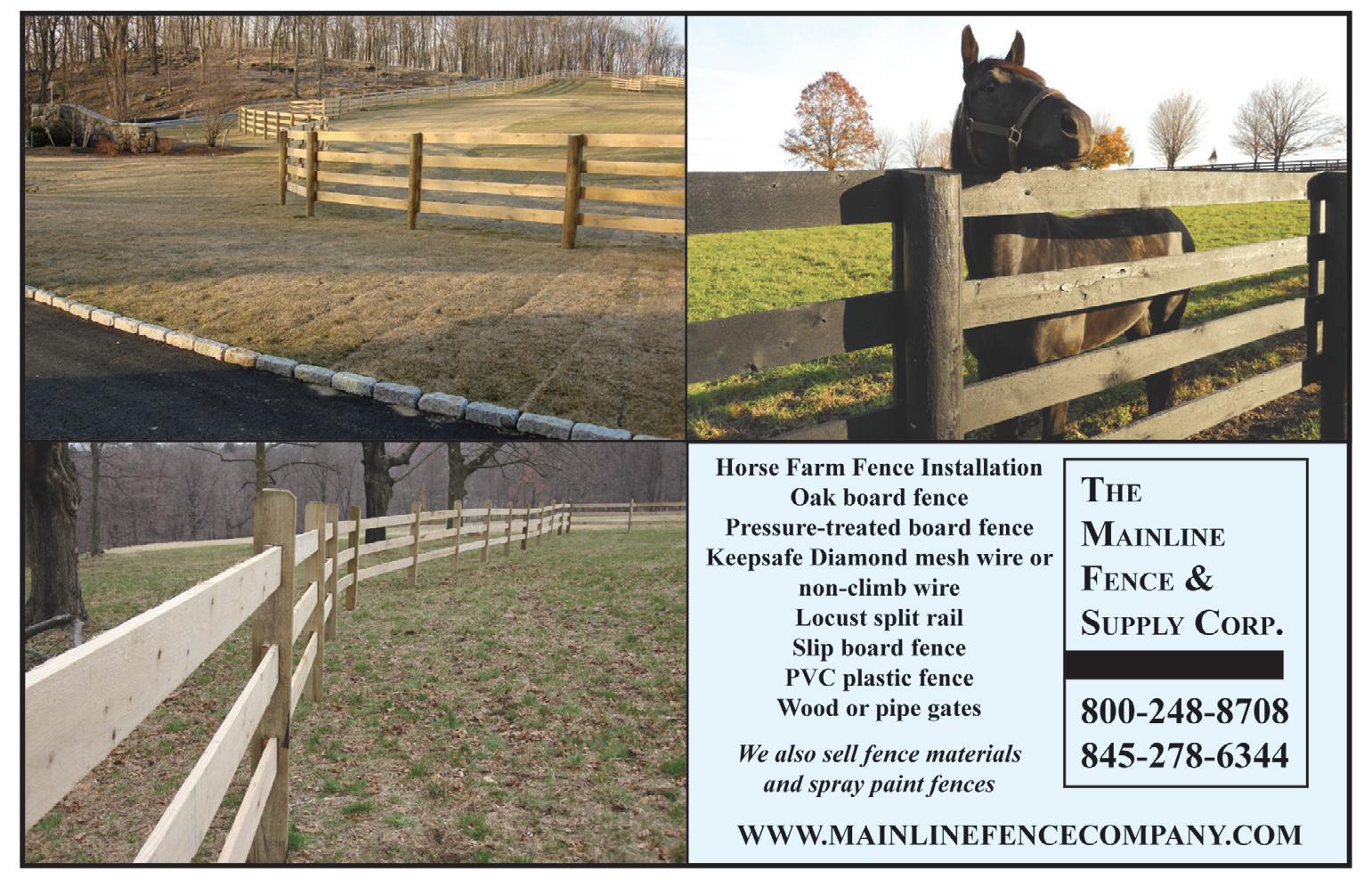
ment of horseback riding, advocates for riders of all disciplines, and supports local land trusts and other nonprofit organizations. PHTA’s goals are to preserve the town’s rural heritage, expand and maintain a safe trail system for horseback riders, offer a variety of educational opportunities, and maintain a strong presence in the community.
y Reddington Rock Riding Club reddingtonrockridingclub.org
Reddington Rock Riding Club (RRRC) is a private organization with an 18-acre horse camp adjacent to the Shenipsit State Forest in Stafford, Connecticut. RRRC hosts trail rides; fun days; horseback games; educational events; dental and vet clinics; parties and cookouts. The club participates in Stafford’s Farm Day, the Four Town Parade, and other local community events. Club members can volunteer to help maintain local trails, join the Volunteer Horse Patrol, or certify for Mounted Search and Rescue. RRRC welcomes new members.
y Rhode Island Arabian Horse Assoc. riarabianhorseassociation.com
The Rhode Island Arabian Horse Association (RIAHA) is a small group of dedicated equestrians — owners, trainers, riders, breeders, admirers — who are enthusiasts of the Arabian and half-Arabian. RIAHA conducts several events throughout the year, including horse shows, clinics, and demonstrations, as well as regular meetings.
y Rhode Island Federation of Riding Clubs rifederation.wixsite.com/rifrc
Since 1966, the Rhode Island Federation of Riding Clubs (RIFRC) has organized horse clubs and individual horse people in Rhode Island and bordering states into a single body. This action works toward establishing and maintaining bridle trails and equine activities. The RIFRC has lobbied for legislation, supported 4-H, and is an active member of Rhode Island Trails Advisory Committee. RIFRC members have maintained the LeGrand Reynolds Horseman’s Area, in Exeter.
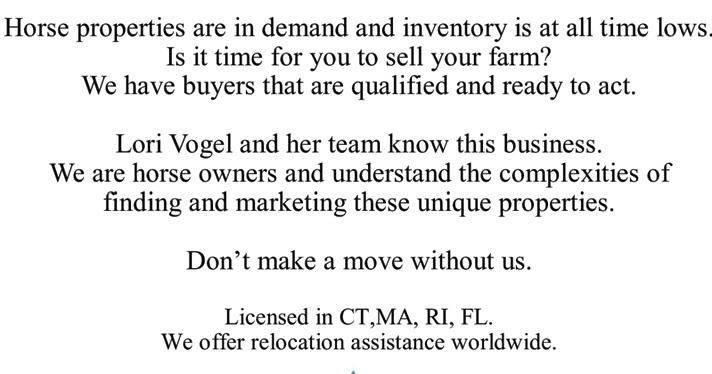


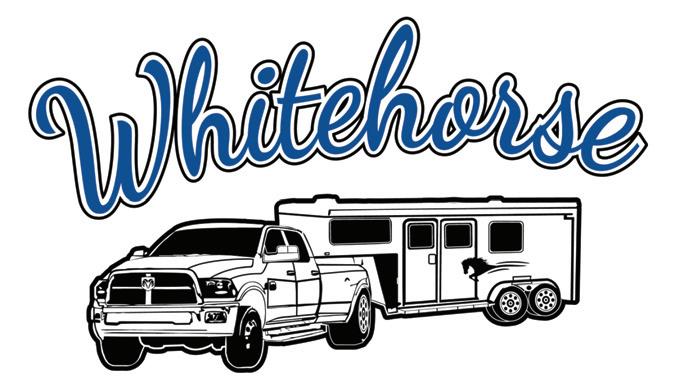







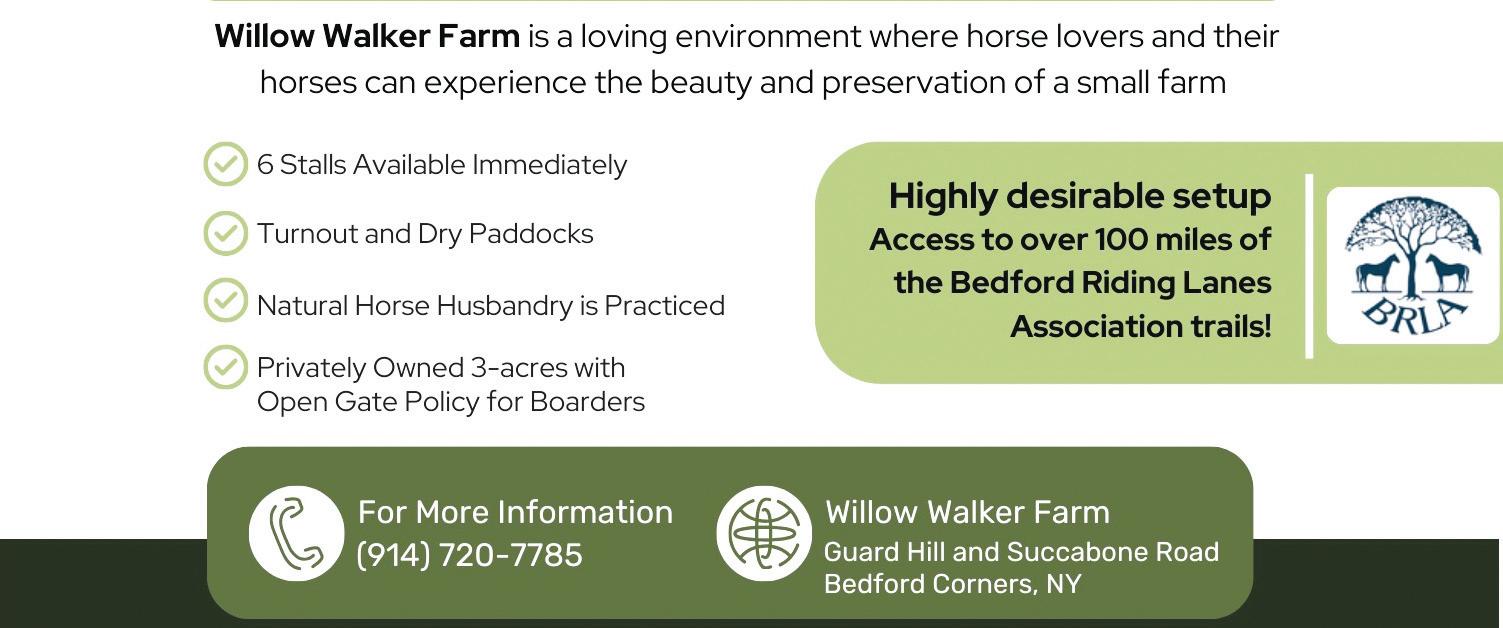

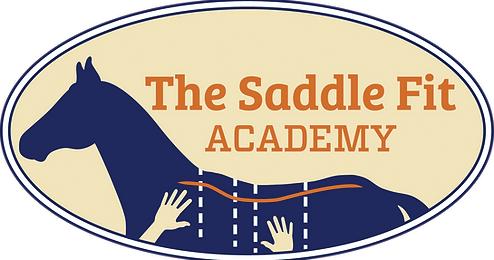
y Rhode Island Horseman’s Assoc. rihorseman.com
The Rhode Island Horseman’s Association is a group of hunter, jumper, and equitation riders, trainers, and farms that attend affiliated horse shows at member farms throughout Rhode Island, Connecticut, and Massachusetts including the annual Rhode Island Equitation Championships.
y South Shore Horsemen’s Council sshconline.org
Since 1962, the nonprofit South Shore Horsemen’s Council has offered a series of horse shows with year-end awards held at Rozena’s Field in Raynham, Massachusetts.
y Southern New England Horsemen’s Assoc. snehassociation.com
The Southern New England Horsemen’s Association holds a horse show series of six shows at the Glastonbury Hunt Club in Glastonbury, Connecticut.
y Tanheath Hunt Club tanheathhunt.org
In 1958, a small group of people met and formed the Tanheath Hunt Club (THC) in Massachusetts. In 2014, the club re-incorporated in Connecticut, and voted to change from a live hunt to a drag hunt. A new kennel was constructed in North Franklin, close to THC fixtures. In addition to foxhunts, the club holds spring, summer, and fall hunter paces; intro to foxhunting clinics; the Blessing of the Hounds; hunter trials, and a turkey trot.
y West Newbury Riding and Driving Club wnrdc.com
The West Newbury Riding and Driving Club (WNRDC) preserves and improves riding opportunities in West Newbury; organizes riding




Ann Guptill
USET Pan Am Dressage Team Silver
USDF Certified Instructor & Examiner
USDF “L” Judge Graduate
USPC Graduate A

29-A Daniels Road, East Haddam, CT (860) 873-8108 . eqarts@snet.net www.foxledgefarm.net
activities with members of the equine community and the general public; and promotes camaraderie and understanding with all users of the preserved open space areas. The WNRDC is dedicated to the preservation and maintenance of open trails in its local communities for the purpose of passive recreation and the benefit of the environment. The WNRDC holds two horse trials annually to raise funds to continue to improve the town-owned Pipestave Hill Equestrian Recreation Area, in West Newbury, Massachusetts. The club also holds an annual Adventure Trail competition, with funds from that event going to benefit trail work in West Newbury.
y Western Massachusetts Appaloosa Assoc. westernmassapp.weebly.com
The Western Massachusetts Appaloosa Association (WMAA) has been a regional club, holding a charter from the national Appaloosa Horse Club since the 1960s, with members throughout New England. The WMAA’s primary goal is to support and promote the Appaloosa. The WMAA holds the Yankee Color Classic Appaloosa and All Breed Show annually.
y Western New England Professional Horsemen’s Assoc. wnepha.com
The Western New England Professional Horsemen’s Association (WNEPHA) holds more than 25 hunter, jumper, and equitation shows a year at eight locations including an equitation final and hunter derby in the fall. Points accumulated throughout the year are celebrated at the awards banquet in the winter. WNEPHA is in its 48th year and is actively welcoming new members to continue its mission: To give aid and sustenance to needy horsemen; to provide educational aid to children of professional horsemen through a scholarship fund; to promote and foster interest in the horse industry; and to aid in the protection and care of horses through education.
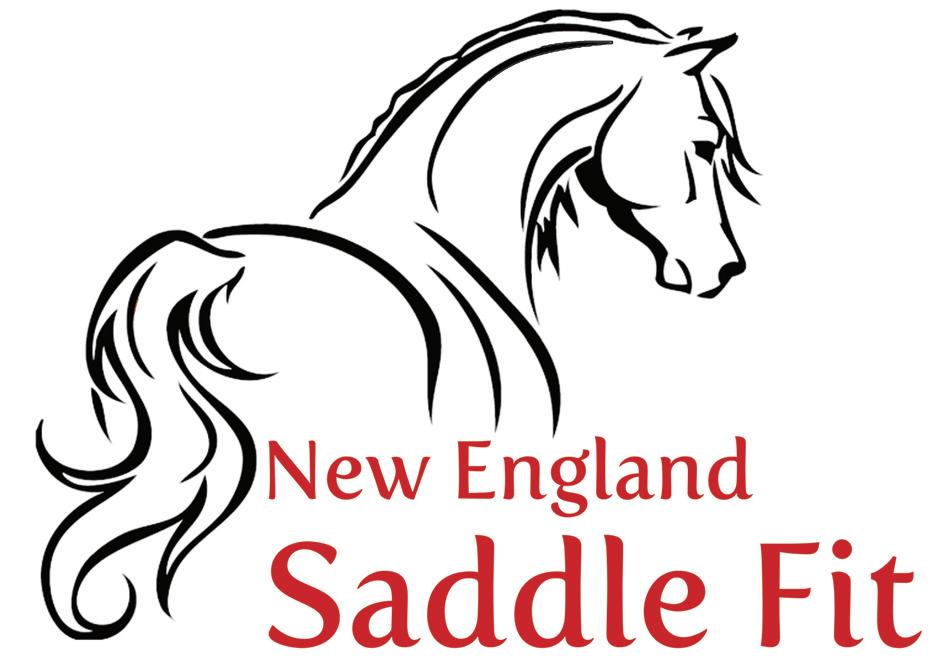


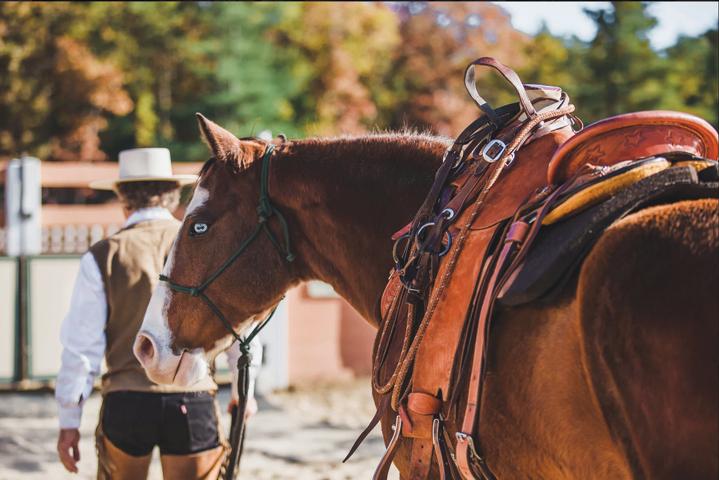
We train horses and their owners. Natural horsemanship is all about the human nurturing a relationship with the horse so strong and close, so as to earn the horse’s complete trust. We do this using soft and quiet techniques, which are always in the best interest of the horses.

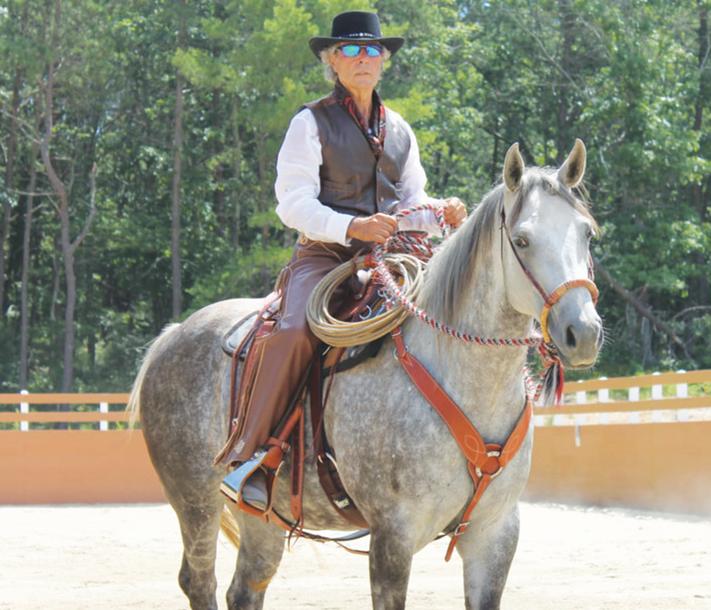
Licensed and certified horse trainer and clinician with more than 40 years experience in all disciplines. Uses natural horsemanship to solve your horse’s problems. Beginning with ground work to achieve harmony and trust, you’ll then move on to riding for that balanced partnership so essential to all phases of riding.
If you want help with your horse, or to hold a clinic, please contact us. Call for a free demonstration!
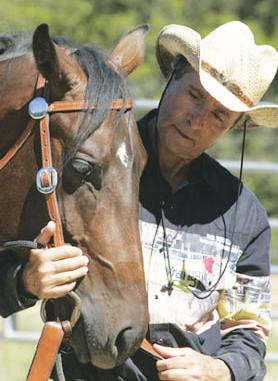
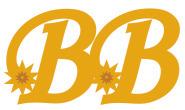


y Westfield Riding Club westfieldridingclub.org
The Westfield Riding Club (WRC) is a nonprofit organization founded in 1939 by a group of horse enthusiasts committed to fostering healthy horses, good riders, and excellent horsemanship. The WRC plans a year full of exciting events including shows, trail rides, clinics, educational seminars, parties, contests, and raffles. The WRC owns five acres in Westfield, Massachusetts. The grounds feature a rustic meeting house with a kitchen, fireplace, and a nice porch; a riding arena complete with a judge’s booth, as well as a cookshack, a small storage barn, and plenty of room to park trailers.
In every issue, Connecticut, Massachusetts, and Rhode Island equestrian-related nonprofits can be listed here and have their events listed in the Events Calendars. Each member of the nonprofits will receive a free one-year online subscription. Club officers and board members receive a free one-year print subscription — thank you for volunteering! Would you like to see your local organization or nonprofit listed here? Email partners@communityhorse.org.


We provide large and small horse farms with a manure removal program that suits the farm’s needs. Retain a 10- to 30-yard container at your facility and we provide regular service or on-call service. Choose to stockpile your manure and we’ll provide pile removal services.
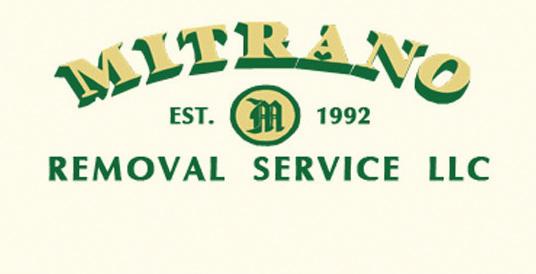
Cherry Hill is an award-winning author of more than 30 books and videos on horse training and care. Her How to Think Like a Horse, originally published in 2006, remains a classic for every equestrian library.
How to Think Like a Horse is informative, interesting, and helpful. This gem is easy to read, understand, and is written in a casual, friendly language. Cherry teaches so many relevant things in a way that’s easy to understand with clear photographs and illustrations to reinforce concepts.
Cherry writes in just enough detail to understand the concepts and the why behind everything. How to Think Like a Horse is a great way to start learning about horses, and established horsepeople will find it helpful too.
Want to understand why your horse does a certain behavior? How to Think Like a Horse provides valuable insight about how horses think.

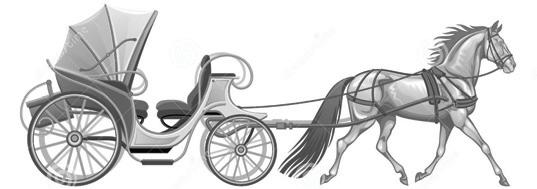


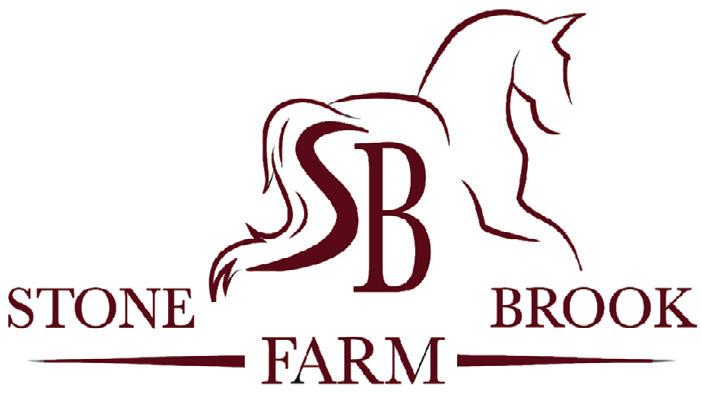
Specializing in starting young horses for riding and driving.
Devin Burdick
USDF Bronze Medalist Trainer/Manager/Instructor
25 Queen Lake Rd., Phillipston, MA (978) 696-1269 (text/voice) stonebrookfarmdb.com facebook.com/stonebrookfarmdb stonebrookfarm.db@gmail.com
1 Cowboy Mounted Shooting Demo Goshen Fairgrounds. ctrenegades.com.

1 CHSA CHJA Show New Milford. chsaonline.com.
1 Polo Match Greenwich. greenwichpoloclub.com.
1 CDA Schooling Dressage Show Bethany, ctdressage.org.
2 NBHA Barrel Racing Goshen. ctnbha01.com.
7 Polo Match Farmington. farmingtonpolo.com
7 CTRA Ride Cockaponsett State Forest, Chester. cttrailridesassoc.org.
7 CHSA CHJA NEHC Show Avon. chsaonline.com.
7 – 8 NEPHC Fall Show Moosup. nephc.com
8 CCBA September Show Glastonbury. connecticut-color-breed-association.mailchimpsites.com.
8 Schooling Dressage Show Lakeville. belandstables.com
8 CHSA CHJA Pines Open South Glastonbury. chsaonline.com.
8 Sunshine Show Series Somers. shallowbrook.com.
8 CGA Gymkhana Bethany Airport. facebook.com/ConnecticutGymkhana
8 Polo Match Greenwich. greenwichpoloclub.com.
13 – 15 NBHA Barrel Racing Tristate Championship Moosup. ctnbha01.com.
14 NBLA “Fun” Raiser Country Dance Newtown facebook.com/groups/123717740974532/.
14 GHC Open Farm Day West Granby. granbyhorsecouncilct.com.
14 Polo Match Farmington. farmingtonpolo.com.
14 CHSA CHJA Show End of Hunt, Suffield. chsaonline.com.
14 Three Phase Salem. treasurehillfarm.com.
14 – 15 NEDA Breed Show Moosup. neda.org.
15 CTRA Ride Pistol Creek, Berlin. cttrailridesassoc.org.
15 CHSA CHJA Show Simsbury. chsaonline.com.
15 CHJA Show Stepping Stone Farm, Ridgefield. chja.net.
15 CGA Gymkhana Bethany Airport. facebook.com/ConnecticutGymkhana

Equestrian events held in Connecticut, Massachusetts, and Rhode Island are listed free in the Community Horse Events Calendars!
y Next issue is Spring/Summer 2025.
y Free event listings include the event name, location, and website or phone number.
y Events must be submitted by March 1, 2025.
y Questions? Email events@communityhorse.org.

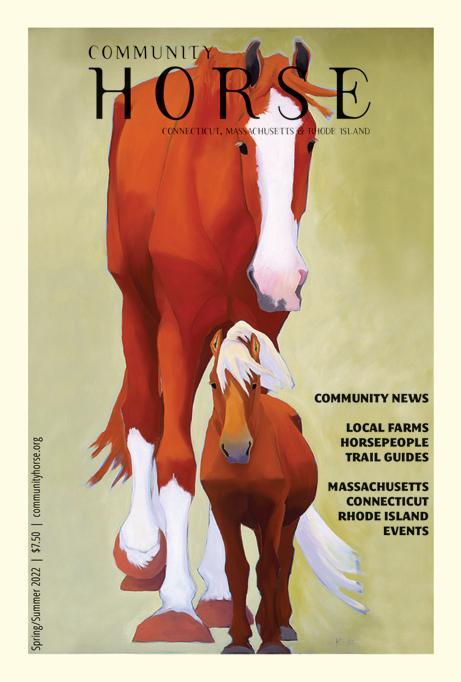
Event name ____________________________________________________________
Event location __________________________________________________________
Event website or phone __________________________________________________
Mail this form to Community Horse, 99 Bissell Road, Williamsburg, MA 01096.
Or email your event information to events@communityhorse.org.
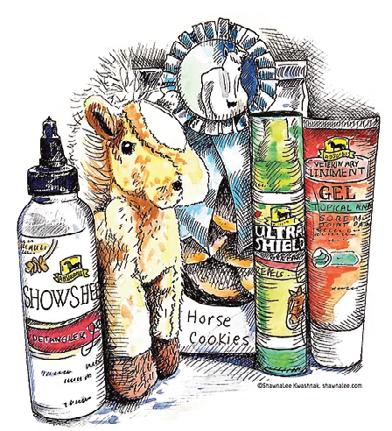
Community Horse provides free Youth Awards to equestrian competitions in Connecticut, Massachusetts, and Rhode Island. Each award includes a gift bag with horse care products, horse treats, a plush pony, and a rosette. To learn more and request your award, see page 64 and visit communityhorse.org/youth-awards.
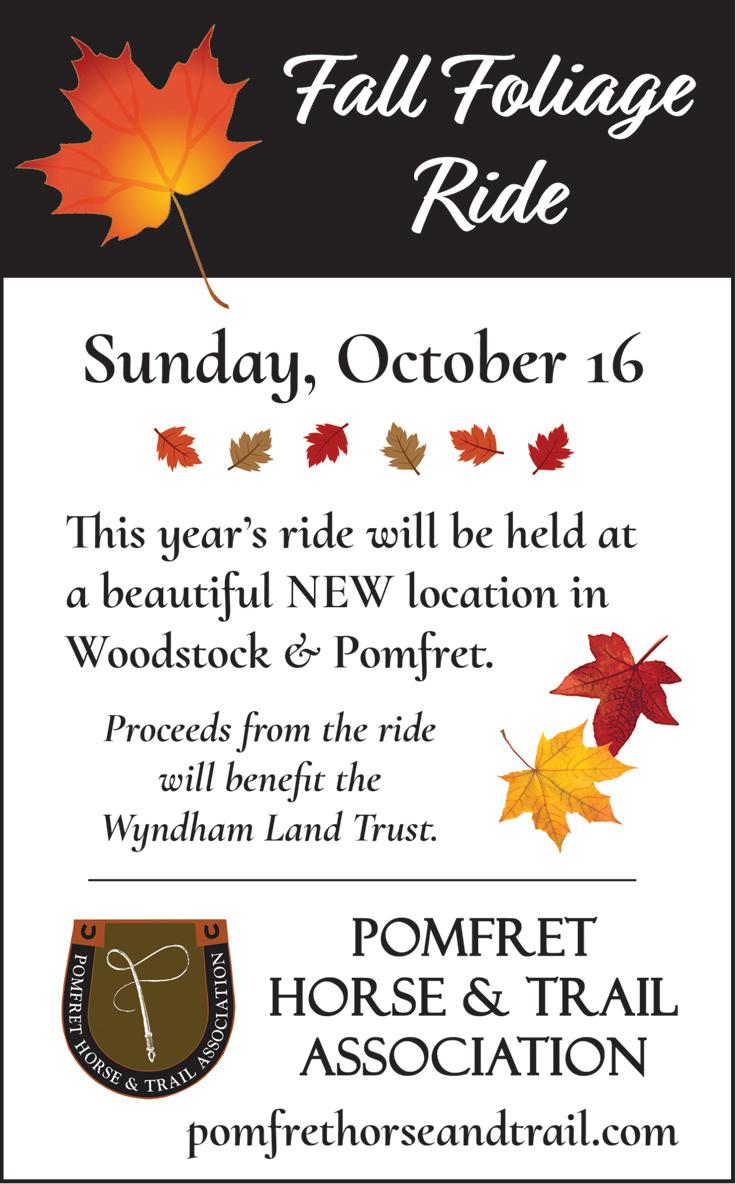
Saturday, October 26
Tyrone Farm, Pomfret, CT
8:30 a.m. to 11 a.m. last rider out
Rain date Sun., Oct. 27
Limit 100 riders . NEHTA ride
To learn more and register, visit pomfrethorseandtrail.com/events
15 Polo Match Greenwich. greenwichpoloclub.com.
20 NBLA Equine Nutrition Presentation Sal e Pepe, Newtown. facebook.com/groups/123717740974532/.
20 – 22 CHSA CHJA Westbrook Grand Fall Classic Westbrook. chsaonline.com.
21 Polo Match Farmington. farmingtonpolo.com.
21 NBLA Slow-n-Go Trail Ride Cherry Grove Preserve, Newtown facebook.com/groups/123717740974532/.
21 Concert on the Roof Plainfield. hayburrinn.org.
21 FBTA Group Trail Ride and Lunch Fairfield. fairfieldbridletrails.com.
21 Auction and Fundraiser Ray of Light, East Haddam. rayoflightfarm.org.
22 NBHA Barrel Racing Bethany. ctnbha01.com.
22 SNEHA Show Series Glastonbury. snehassociation.com..
22 NEHC Show Westport. huntclubonline.org.
23 NEHC Show Eastfield Farm, Ashford. nehc.info.
15 Lyme Hunter Pace Lord Creek Farm, Old Lyme. lymetrailassociation.org.
26 – 29 Hunter/Jumper Show Moosup. fallscreekfarm.com.
28 CDA Schooling Dressage Show Columbia, ctdressage.org.
28 Polo Match Finals Farmington. farmingtonpolo.com.
28 CHSA CHJA NEHC Show Avon. chsaonline.com.

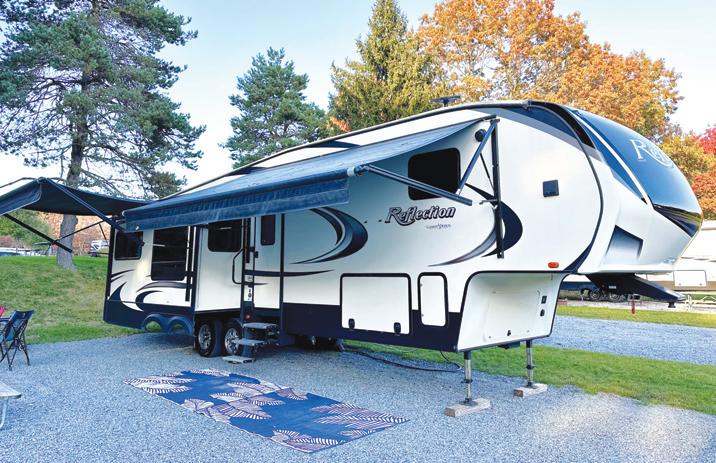
29 Horse Trials Woodbury. frazierfarmct.com.
29 Versatility Challenge DeCarli Equestrian Center, Ellington. decarliequestriancenter.com.
29 CHSA CHJA Pines Open South Glastonbury. chsaonline.com.
29 Dressage Schooling Show Coventry. ctequestrian.com.
1 CHC Meeting Berlin. cthorsecouncil.org.
5 CTRA Ride Cockaponsett State Forest, Chester. cttrailridesassoc.org.
5 RRRC Fun Day Stafford. reddingtonrockridingclub.org.
5 NBHA Barrel Racing Bethany. ctnbha01.com.
5 CHSA CHJA Show Stepping Stone Farm Hebron. chja.net.
5 CHJA Show Windcrest, Hebron. chja.net.
5 Day In the Country Show Greenwich. thegrta.org.
6 CDCTA Dressage & Combined Training Schooling Show Salem. cdctaonline.com.
6 Cowboy Mounted Shooting Demo Old Bethany Airport, Bethany. ctrenegades.com.
6 CHSA CHJA NEHC Hunter/Jumper Show Mystic Valley Hunt Club, Gales Ferry. chsaonline.com.
6 Wyndham Land Trust Cabbage Hill Trail Ride Pomfret. wghaweb3.wixsite.com/wgha.
6 CHJA Show Fox Cross Equestrian, Morris. chja.net.
6 SNEHA Show Series Glastonbury. snehassociation.com.
6 Sunshine Show Series Somers. shallowbrook.com.
11 – 12 Cross Country Derby Horse Power Farm, Canterbury. horsepowerfarm.info.
12 CHSA CHJA Folly Farm Fall Classic Simsbury. chja.net.
13 NBLA Fall Trail Ride Newtown facebook.com/groups/123717740974532/.
13 CCBA Halloween Haunt Glastonbury. connecticut-color-breed-association.mailchimpsites.com.
13 Schooling Dressage Show Lakeville. belandstables.com.
13 CHSA CHJA Show NEHC Avon. chsaonline.com.
13 CHJA Show Marchant Farm, Redding. chsaonline.com.
13 Haunted Trail Plainfield. hayburrinn.org.
13 Frazier Farm Show Woodbury. frazierfarmct.com.
13 GRTA Hunter Pace Greenwich. thegrta.org
13 CGA Gymkhana Bethany Airport. facebook.com/ConnecticutGymkhana
19 CTRA Fun Day Sunrise State Park, Moodus. cttrailridesassoc.org.
19 NBHA Halloween Barrel Racing Goshen. ctnbha01.com.
19 CHSA CHJA Pines Open South Glastonbury. chja.net.
19 NEHC Show Fairfield County Hunt Club, Westport. huntclubonline.org.
5th Annual Tack Sale April 6
Cross-Country Derby May 3/4 June 21/22
August 2/3 October 11/12

19 Haunted Trail Plainfield. hayburrinn.org.

20 CHSA CHJA Show End of Hunt, Suffield. chsaonline.com.
20 CHJA Show New Canaan. chsaonline.com.
20 Fall Dressage Show Bethany. centerlineevents.com.
20 Cross-Country Derby Coventry. ctequestrian.com.
20 Schooling Hunter/Jumper/Dressage Show Mystic Valley Hunt Club, Gales Ferry. mysticvalleyhorse.com.
20 TSHA Fun Day Bash Brooklyn. tristatehorsemen.com.
20 GRTA Hunter Pace Greenwich. thegrta.org.
26 Halloween Cowboy Mounted Shooting Match Old Bethany Airport, Bethany. ctrenegades.com.
26 CHSA CHJA NEHC Show Magnolia Run Equestrian Center, Willington. magnoliaruneqcenter.com.
26 Haunted Trail Plainfield. hayburrinn.org.
26 PHTA Fall Foliage Ride Tyrone Farm, Pomfret. (Rain date Oct. 27.) pomfrethorseandtrail.com/events
27 Versatility Challenge DeCarli Equestrian Center, Ellington. decarliequestriancenter.com.
27 CGA Gymkhana Bethany Airport. facebook.com/ConnecticutGymkhana
27 NBLA Frost on the Pumpkin Hunter Pace Newtown facebook.com/groups/123717740974532/.
27 CHSA CHJA NEHC Show Wesbrook. chsaonline.com.
27 NEHC Show Westport. huntclubonline.org.
27 – 28 NEHC Show Eastfield Farm, Ashford. nehc.info.
2 CHSA CHJA NEHC Show Avon. chsaonline.com.
3 Schooling Dressage Show Lakeville. belandstables.com
3 CHSA CHJA NEHC Hunter/Jumper Show Mystic Valley Hunt Club, Gales Ferry. chsaonline.com.
3 CGA Gymkhana Bethany Airport. facebook.com/ConnecticutGymkhana
9 CHSA CHJA Pines Open South Glastonbury. chja.net.
9 NEHC Show Westport. huntclubonline.org.
10 CHSA CHJA NEHC Show Westbrook. chsaonline.com.
10 CHJA Show Stepping Stone Farm, Ridgefield. chja.net.
10 Schooling Hunter/Jumper/Dressage Show Mystic Valley Hunt Club, Gales Ferry. mysticvalleyhorse.com.
15 – 17 H.O.R.S.E. of CT Indoor Tack Sale Washington. (860) 868-1960.
16 CHSA CHJA Show Windcrest, Hebron. chsaonline.com.
16 NEHC Show Fairfield County Hunt Club, Westport. huntclubonline.org.
16 Craft and Vendor Fair East Haddam. rayoflightfarm.org.
16 GRTA Silver Horse Ball Greenwich. thegrta.org
17 BSTRA Raceway Ride Thompson. bstra.org.
17 CHSA CHJA Show Morris. chsaonline.com.
17 – 18 NEHC Show Eastfield Farm, Ashford. nehc.info.
19 NBLA Backyard vs. Boarding Friendly Debate Newtown. facebook.com/groups/123717740974532/.
23 CHSA CHJA Show Westbrook. chsaonline.com.
24 CHSA CHJA Show Folly Farm, Simsbury. chsaonline.com.
24 CMHA Turkey Trot Bluff Point State Park, Groton. All breeds welcome. ctmorgans.org.
30 – December 1 CHSA CHJA Pines Open South Glastonbury. chsaonline.com.
1 Holidays & Horses Community Event Farmington. farmingtonpolo.com
3 CHC Meeting Berlin. cthorsecouncil.org.
7 H.O.R.S.E. of CT Holiday Open House Washington. (860) 868-1960.
7 RRRC Christmas Caroling on Horseback Stafford. reddingtonrockridingclub.org.
17 NBLA Sip & Shop Vendor Night Newtown facebook.com/groups/123717740974532/.
20 Winter Trail of Lights Plainfield. hayburrinn.org.
29 Winter Trail of Lights Plainfield. hayburrinn.org.

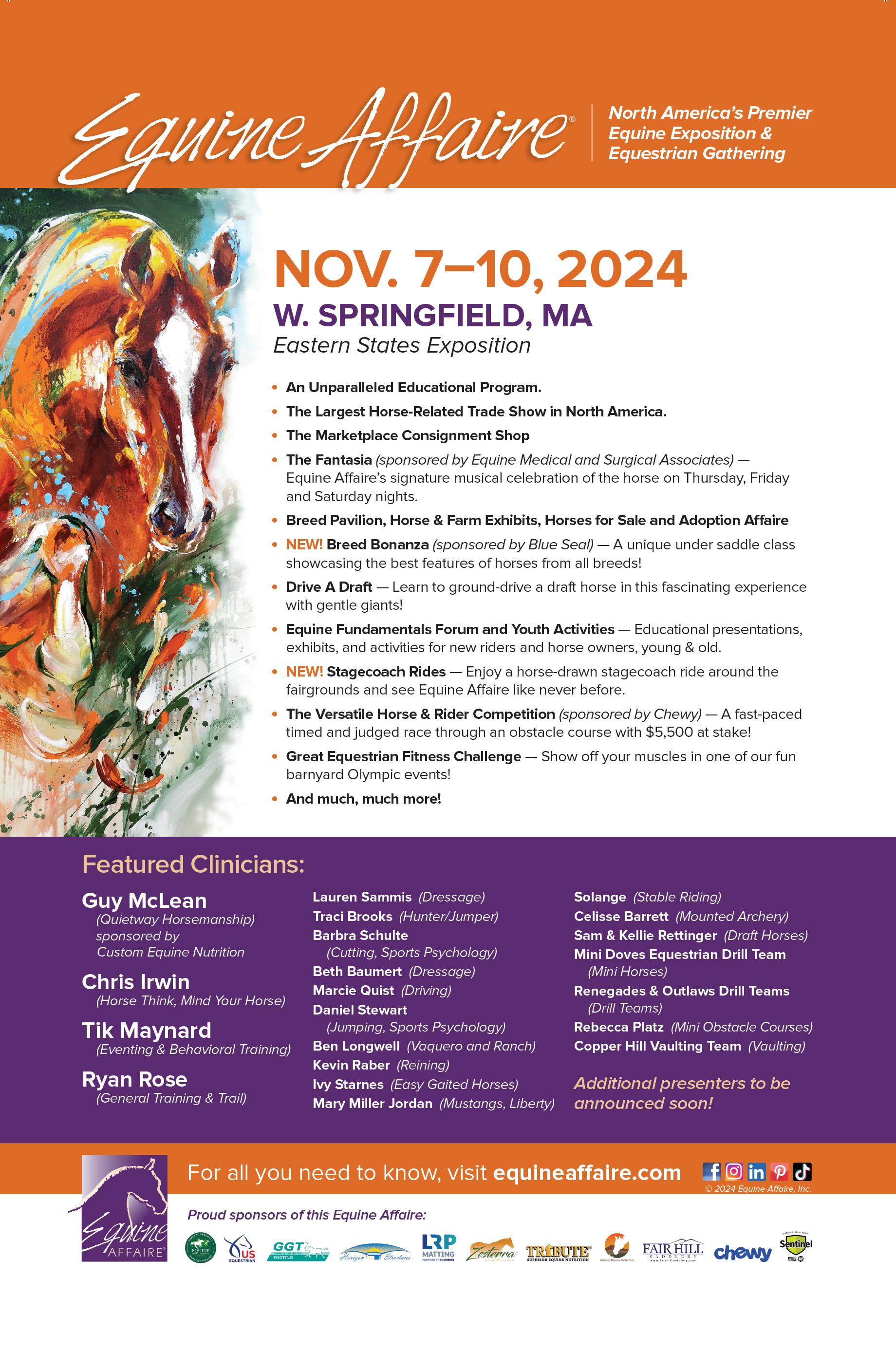
1 NEDA Fall Kickoff Dressage Show Millis. neda.org.
1 WNEPHA Show Harmony Hill Farm, Great Barrington. wnepha.com.
1 Polo Match South Hamilton. myopiapolo.org.
1 NEHC Hunter Show Newbury. autumnskyfarm.com.
2 Just Jumpers Summer Jumping Show Northampton. wnepha.com.
4 Jumper Challenge Show Millis. appleknoll.com.
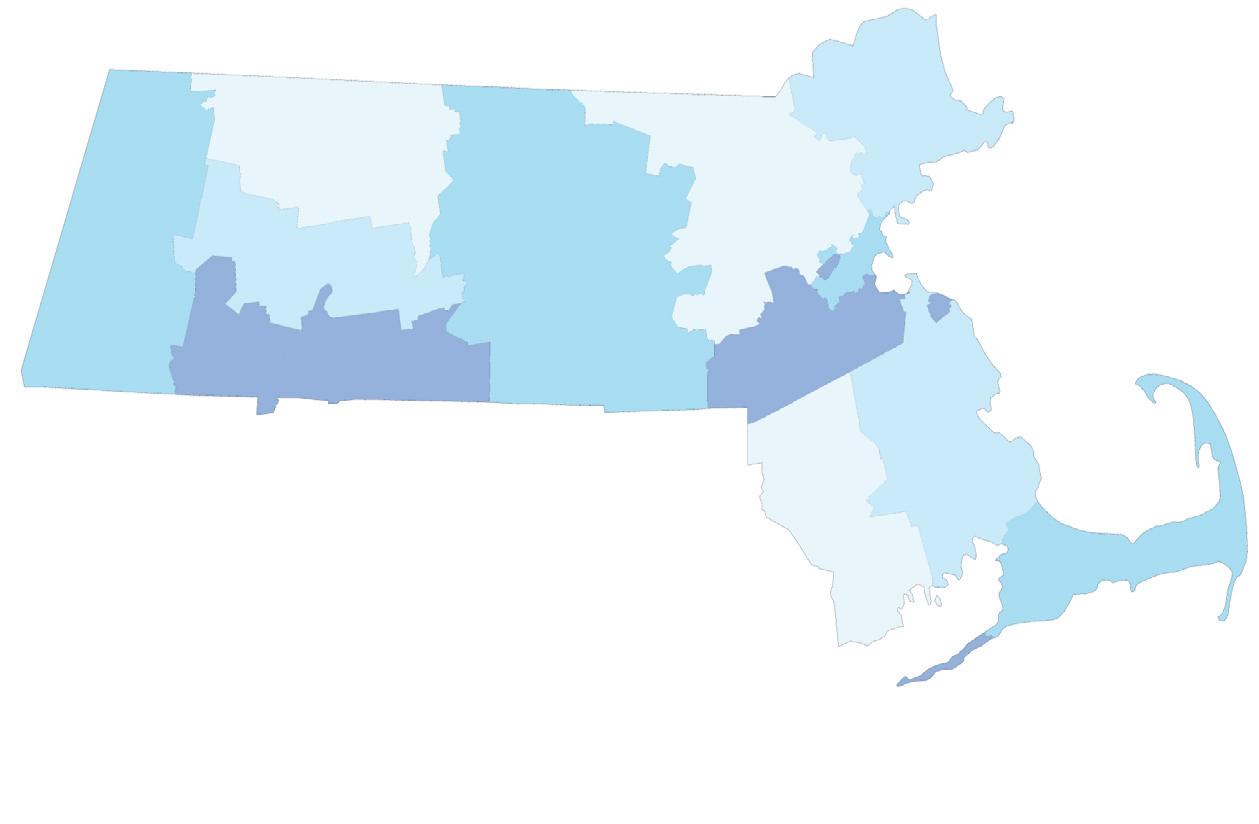
4 – 8 Northeast Classic Halifax. fieldstoneshowpark.com
6 Polo Match South Hamilton. myopiapolo.org.
7 – 8 Regional 4-H Show Northampton. mass4H.org.
7 – 8 Tim Bourke Eventing Clinic Emerald Isles Eventing, Westborough. emeraldisleseventing.com..
8 NEECA Gymkhana Series Athol. neeca.org.
8 Area 1 Schooling Horse Trials Championships Apple Knoll Farm, Millis. appleknoll.com.
8 North East Finals Halifax. fieldstoneshowpark.com.

8 Merrimack Valley Dressage Show Bradford Equestrian Center, Haverhill. bradfordequestriancenter.wordpress.com.
8 MHC Show Haverhill. ridecornerstonefarm.com.
8 MHC Pleasure Classic Finals Hanover. mahorsecouncil.com.
8 ONBH Hunter Pace Great Brook Farm, Carlisle. oldnorthbridgehounds.org.
8 Polo Match South Hamilton. myopiapolo.org.
8 Rowley Riding & Driving Club Show Rowley. facebook.com.
9 NEECA Carriage Driving Day Athol. neeca.org. 11 Jumper Challenge Show Millis. appleknoll.com.


Northbridge Equine Challenge Series Jumper Shows
August 28
September 4
September 11 – Finale & Awards
Lynne Kimball Davis Clinics
August 24 & 25
September 21 & 22
October 19 & 20
Charles River Dressage Association Show: September 15
Lauren Sprieser Clinic: Nov. 23 &24 crdressage.org

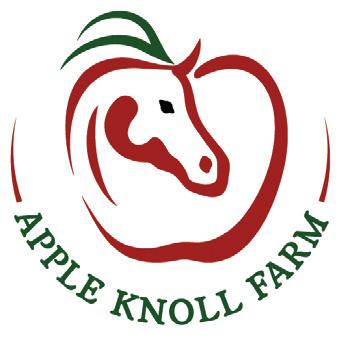
New England Dressage Association Fall Kickoff Show
September 1 neda.org
Area I Schooling Horse Trials Championships
September 8

USEA-Recognized Horse Trials
October 5
Starter thru Training

Haunted Halloween Hunter Pace
November 3
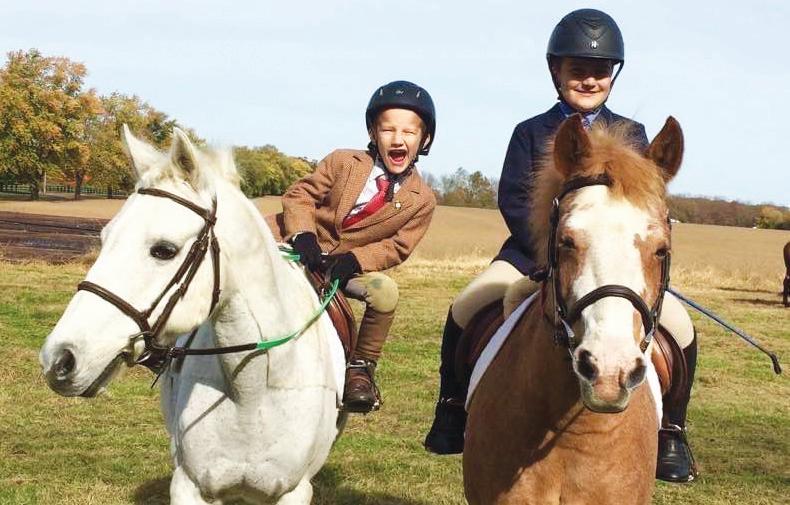
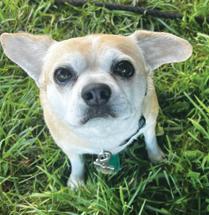


USDF “L” Graduate; Available for Lessons, Clinics, Training, and Judging. 54 Plain Rd. Hatfield, MA 413.427.2026 rerponies@gmail.com RERponies.com

AUGUST 25 - Windsor State Forest Ride
SEPTEMBER 15 - Hawley State Forest Ride
SEPTEMBER 18 - Club Meeting
OCTOBER 20 - Northfield Mountain Fall Foliage Ride
OCTOBER 27 - Hilltown Misfits 4-H Club Open Fun Day
OCTOBER 30 - Annual Club Meeting

Members participate at reduced rates! For full event calendar and membership details go to hampshirecountyridingclub.org.
11 – 15 Hunters, Hunt Seat Equitation, USHJA Zone 1 HOTY Finals West Springfield. thebige.com.
13 – 15 NEPtHA Show Northampton. neptha.info.
14 NEECA Hunter Pace Athol. neeca.org.
15 Hunter Show Series Holliston. augustfarm.com.
15 BRDC Show Series Barre. barreridingdrivingclub.com
15 Dressage Schooling Show Series Independence Stable, Belchertown. independencestablellc.com.
15 Schooling Two-Phase and Dressage Show Dracut. cutterfarm.com.
15 Schooling Dressage Show Xenophon Farm, Montague. neda.org.
15 WNEPHA Show White Horse Hill, Richmond. wnepha.com.
15 Heron’s Crest Schooling Jumper Show Series NEECA, Athol. neeca.org.
15 HCRC Ride Hawley State Forest, Hawley. hampshirecountyridingclub.org.
15 HRC Show Briggs Stable, Hanover. hansonridingclub.org.
15 BSTRA Sue Brainard Memorial Fall Hunter Pace Douglas. bstra.org.
15 CRDA Schooling Dressage Show Millis. crdressage.org.
15 Polo Match South Hamilton. myopiapolo.org.
15 Norfolk Hunt Polo In the Country Steeplechase Course, Medfield. norfolkhunt.com.
15 SNECDA Carriage Driving Pleasure Show
Celtic Cross Farm, Dudley. snecda.org.
15 Adventure Trail Team Ride West Newbury. wnrdc.com.
19 – 22 Big E Heritage Show West Springfield. thebige.com.
20 – 22 NSHA Fall Classic Northampton. nhhja.com.
21 – 22 Lynne Kimball Davis Clinic Millis. appleknoll.com.
21 MHC NEHC MHJ Show Medway. nv-farm.com.
21 Horse Trials Azrael Acres, Uxbridge. azraelacres.com.
22 WNEPHA Show SJH Equestrian, Richmond. wnepha.com.
22 NEECA Gymkhana Series Athol. neeca.org.
22 South Coast Series Hunter Show Grazing Fields Farm, Buzzards Bay. southcoastseries.com.
22 Polo Match South Hamilton. myopiapolo.org.
22 New England Hunter Trials Steeplechase Course, Medfield. norfolkhunt.com.
26 – 29 Draft Horse Show West Springfield. thebige.com.
26 – 29 MHC Days of Champions Northampton. mahorsecouncil.com.
28 NEECA Driver Appreciation Day Athol. neeca.org.
29 CMHSS Show Camp Marshall, Spencer. cmhss.org.
29 BSTRA Ride Northfield Mountain, Northfield. bstra.org.
29 USEF USEA Horse Trials Sherborn. coursebrookfarm.com.
HampshireCountyRidingClub.org Hampshire County, Mass.
29 WNEPHA Show Bellwether Stables, Richmond. wnepha.com.
29 HRC Versatility Event Middleboro. hansonridingclub.org.
The Western New England chapter of the Professional Horsemen’s Association of America holds Hunter and Jumper Shows.
Aug. 18 . White Horse Hill, Richmond
Aug. 25 . SJH Equestrian, Richmond
Sept. 1 . Harmony Hill Farm, G. Barrington
Sept. 2 . Just Jumpers Show, Northampton
Sept. 15 . White Horse Hill, Richmond
Sept. 22 . SJH Equestrian, Richmond
Sept. 29 . Bellwether Stables, Richmond
Oct. 6 . Harmony Hill Farm, G. Barrington
Oct. 13 . FINALS, South Hadley
See 2025 Show Dates at wnepha.com
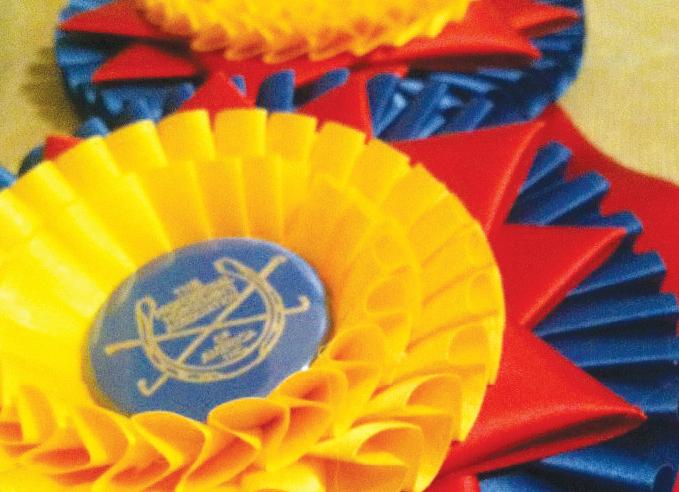
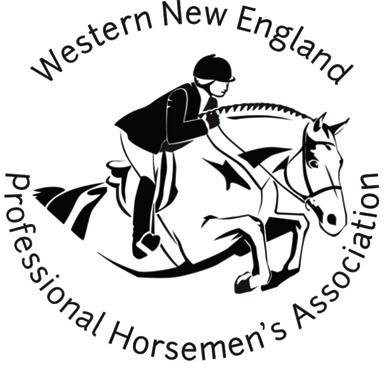
October 13
Mount Holyoke College, South Hadley
Walk Trot Final. Beginner Equitation Final
Short/Long Stirrup 18” Medal Final
Pre-Child/Adult 2’ Medal Final
Children’s Equitation 2’6” Medal Final
Adult Equitation 2’6” Medal Final
Modified Junior Equitation 2’9” Medal Final
Junior Equitation 3’ Medal Final 18”, 2’, 2’6” and 2’9” Hunter Classics

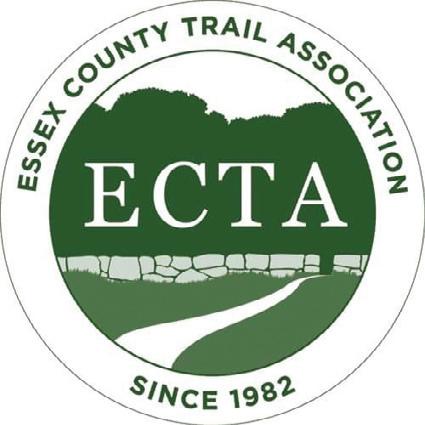
the 30th annual
Saturday, April 26, 2025 . 9 a.m. - 3 p.m.
Large vendor marketplace selling new and used items!
Plus services for the horse, rider, and driver.
Demonstrations All Day
$5 Admission . children under 10 free
Vendor Spaces Available . Free Parking
Held Indoors . Arena Building at the Topsfield Fairgrounds
29 Sunrise Ranch Show Series South Hadley. (413) 695-8384 or kwainsco@mtholyoke.edu.
29 Polo Match South Hamilton. myopiapolo.org.
29 Special Olympics Massachusetts Briggs Stable, Hanover. hansonridingclub.org.
5 USEA Horse Trials Millis. appleknoll.com.
5 Sunrise Pleasure Show Series South Hadley. (413) 695-8384 or kwainsco@mtholyoke.edu.
6 WNEPHA Show Great Barrington. wnepha.com.
6 Hunter & Equitation Show Byfield. evenstrideltd.com.
6 HDA Schooling Show Hanover. heritage-dressage.org.
6 NEECA Open Carriage Driving Trial Athol. neeca.org.
6 Polo Match South Hamilton. myopiapolo.org.
6 Schooling Dressage Show White Spruce Farm, New Braintree. whitesprucefarms.com.
6 ONBH Hunter Pace Red Rail Farm, Lincoln. oldnorthbridgehounds.org.
12 MHC NEHC MHJ Show Medway. nv-farm.com.
12 – 14 Gerd Heuschmann BioMechanics Symposium Sacred Dog Farm, Oakham. sacreddog.farm.
12 – 13 BRDC Fall Trail Ride Felton Field, Barre. barreridingdrivingclub.com.
13 WNEPHA Finals Show South Hadley. wnepha.com.

Sponsored by the Massachusetts Horsemen’s Council Double Point MHC Show Affiliated with NEHC, SSHC Open and Breed Classes
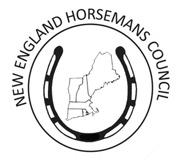
More than 100 exhibitors compete for great prizes and awards offered in a multitude of Open, Breed, Pleasure, Western, Saddle Seat, and Equitation classes in two rings to ensure a variety of classes.

Sunday, September 8, at Briggs Stable, 623 Hanover Street, Hanover, Mass.
Begins Promptly at 8 a.m.

13 HRC Versatility Event Middleboro. hansonridingclub.org.
13 Schooling Trials Groton. grotonponyclub.org.
13 Polo Match South Hamilton. myopiapolo.org.
13 Pipestave Hill Horse Trials West Newbury. wnrdc.com.
16 – 20 New England Equitation Championships West Springfield. newenglandequitation.com.
19 NEDA Symposium South Hadley. neda.org.
19 – 20 Lynn Kimball Davis Clinic Millis. appleknoll.com.
20 Hunter Show Series Holliston. augustfarm.com.
20 Schooling Two-Phase and Dressage Show Dracut. cutterfarm.com.
20 HCRC Ride Northfield Mountain, Northfield. hampshirecountyridingclub.org.
26 NEECA Fall Social Athol. neeca.org.
26 MHC Show Haverhill. ridecornerstonefarm.com.
26 HRC Beach Ride Rexhame Beach, Marshfield. hansonridingclub.org.
27 Hilltown Misfits 4-H Club Fun Day Goshen. hampshirecountyridingclub.org.
27 BSTRA Big Pumpkin Ride Upton. bstra.org.
27 South Coast Series Hunter Show Grazing Fields Farm, Buzzards Bay. southcoastseries.com.
27 Myopia Fall Hunter Pace Hamilton. myopiahunt.org.
27 Norfolk Hunt Hunter Pace Westport. norfolkhunt.com.
27 Schooling Horse Trials Sherborn. coursebrookfarm.com.







27 Schooling Dressage Show Plymouth. valinorfarm.com.
30 Myopia Junior Halloween Hunt Hamilton. myopiahunt.org.
2 MHC NEHC Show Pembroke. riverwindfarm.com.
3 BSTRA Turkey Trot Carver. bstra.org.
3 GFF Show Buzzards Bay. grazingfields.com.
3 Haunted Halloween Hunter Pace Millis. appleknoll.com.
3 HRC Versatility Event Middleboro. hansonridingclub.org.
7 – 10 Equine Affaire West Springfield. equineaffaire.com.
9 MHC NEHC MHJ Show Medway. nv-farm.com.
9 New England Joint Meet Hamilton. myopiahunt.org.
10 MHC Show Haverhill. ridecornerstonefarm.com.
16 MHC NEHC Show Pembroke. riverwindfarm.com.
23 CRDA Annual Banquet Primavera, Millis. crdressage.org.
23 – 24 CRDA Lauren Sprieser Clinic Millis. crdressage.org.
24 Thanksgiving Schooling Jumper Show Dracut. cutterfarm.com.
24 Hunter & Equitation Show Byfield. evenstrideltd.com.
24 MHC NEHC Show Pembroke. riverwindfarm.com.
28 Myopia Thanksgiving Hunt Hamilton. myopiahunt.org.



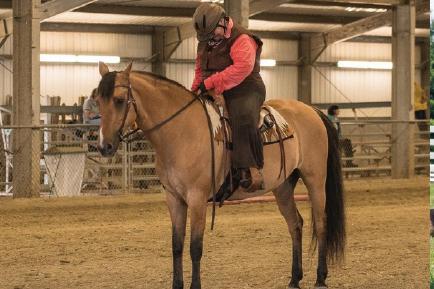

RHODE ISLAND
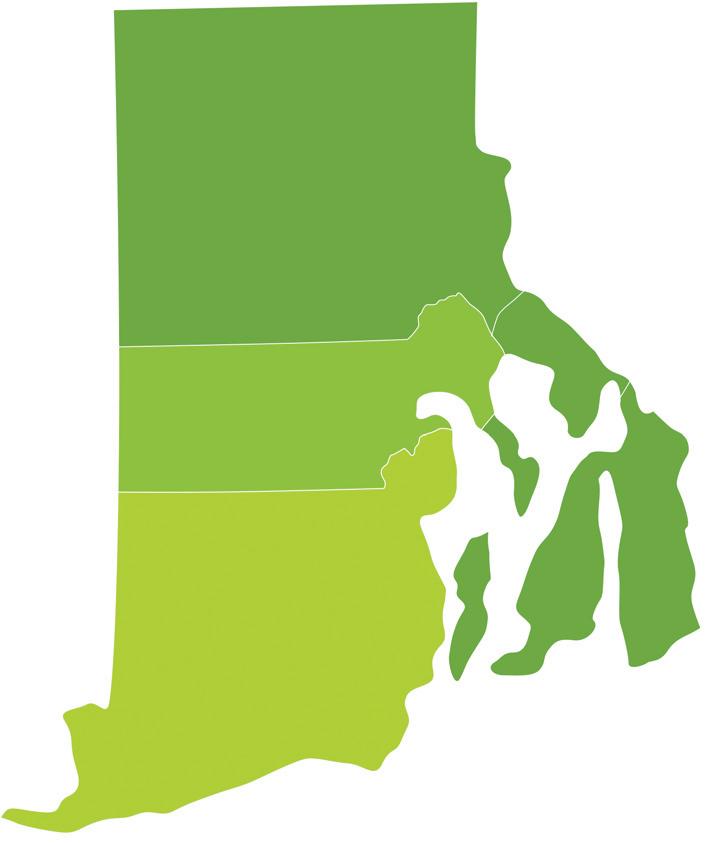
8 NEHC RIHA Show Hunter Ridge, Ashaway. hunterridge.squarespace.com.
8 Open Schooling Show Downeast Performance Horses, Westerly. facebook.com/downeastperformancehorses/.
8 Open Schooling Show Cornerstone Farm, Foster. cornerstonefarmri.com.
15 Open Schooling Show Cornerstone Farm, Foster. cornerstonefarmri.com.
21 Gymkhana Fun Show Downeast Performance Horses, Westerly. facebook.com/downeastperformancehorses/.
22 Schooling Show Series Smithbridge Stables, South Kingstown.
13 Open Schooling Show Cornerstone Farm, Foster. cornerstonefarmri.com.
19 Cutting Flag Clinic Downeast Performance Horses, Westerly. facebook.com/downeastperformancehorses/.
19 WGHA Ghost Ride Goddard Memorial State Park, Warwick. wghaweb3.wixsite.com/wgha.
20 HRC Beach Ride Goddard Park, Warwick. hansonridingclub.org.
26 Open Schooling Show Cornerstone Farm, Foster. cornerstonefarmri.com.
27 NEHC RIHA USHJA Outreach Show Claddagh Farm, Tiverton. claddaghfarminc.com.
27 Schooling Show Series Smithbridge Stables, South Kingstown.
27 NEHC Show Glen Farm Stables, Portsmouth. glen.farm.
27 Open Schooling Show Downeast Performance Horses, Westerly. facebook.com/downeastperformancehorses/.
3 RIHA Show Hunter Ridge, Ashaway. hunterridge.squarespace.com.
10 Medal Day Show Claddagh Farm, Tiverton. claddaghfarminc.com.
10 Open Schooling Show Cornerstone Farm, Foster. cornerstonefarmri.com.
10 NEHC Show Glen Farm Stables, Portsmouth. glen.farm.
10 WGHA Turkey Trot Goddard Memorial State Park, Warwick. wghaweb3.wixsite.com/wgha.
17 Schooling Show Series Smithbridge Stables, South Kingstown.
24 NEHC RIHA Show Hunter Ridge, Ashaway. hunterridge.squarespace.com.
14 Annual Holiday Stroll Epona Safe Haven, Scituate. facebook.com/eponasafehaveninc.

Serving the North Shore since 1951
Helen Noble, VMD . Robert Orcutt, DVM
Elizabeth Lordan, DVM
Nicole Syngajewski, DVM
Delaney Patterson, DVM

l Connecticut l Massachusetts
l Rhode Island l Region
Mindful Connections® with Animals
Nicole Birkholzer; nbirkmc@gmail.com
Phone consultations; barn calls serving MA, CT, and RI
Is your horse suddenly shying at the mounting block? Not getting along with a pasture mate? There’s a reason for it. A phone call/barn visit gives you insights and clarity. Ad on page 55.
Double J Western Store
West Springfield, MA; (413) 732-8800; doublejwestern.com
Carrying an excellent selection of western boots, hats, and apparel from top brands including Justin, Dan Post, Wrangler, and Scully. One of a kind Navajo and Zuni jewelry. And now carrying TuffRider English riding apparel. Special orders always welcome. Ad on page 39.
ART AND GIFTS
Lisa’s Art & Horses
Lisa Guarino; (401) 475-2749; lisa@lisasart.com; lisasart.com
Looking for a special gift? Lisa’s Art & Horses offers a variety of artistic gift items. Equine paintings, T-shirts, portraits. Find that perfect gift!
WeCover Structures
(877) 849-9049; wecoverequine.com
Ride in bright, natural light year-round. WeCover designs and builds dream riding arenas.
R & R Pallet Corp.
120 Schoolhouse Road, Cheshire, CT; (203) 272-2784 jrizzo.javanet@rcn.com; rrpalletcorp.com
Uniform, clean, semi-dry hardwood and softwood bedding; mixed sawdust and shavings in bulk. Large quantities available as low as $10 per cubic yard. Decorative mulch as low as $10 per cubic yard. Firewood blocks $100 per cord. Pick up (we’ll load your truck)/local delivery available. Call for more information and pricing.
M5 Landworks
Serving MA, RI, CT; (508) 510-2004; m5landworks.com
Pasture restoration, field mowing, fence line clearing, underbrush clearing, bridle trail creation, forestry mulching. We’ll manage your overgrown land. Ad on page 70.
TEAM Mobile Feline Spay/Neuter Clinic
Throughout Connecticut; (888) FOR-TEAM; everyanimalmatters.org TEAM brings affordable spay/neuter and vaccination services for
cats to more than 25 communities statewide. Any Connecticut cat — domestic, barn cat, stray, or feral — is welcomed aboard. Call now to book your appointment.
Blackshadow Dales Pony Stud
Upstate New York blackshadowdales.com; blackshadowponies@gmail.com
Devoted to the preservation and promotion of the critically endangered Dales Pony since 2013. Exceptional young stock available annually; reserve a foal in utero. Good conformation with a calm and intelligent nature. Home of Kingmaker Jupiter. Ad on page 29.
The Ethel Walker School
Simsbury, CT; (860) 408-4200; ethelwalker.org
Pamela J. Safford, admission@ethelwalker.org
At Walker’s, riders train on campus in the hunter, jumper, and equitation disciplines to achieve regional and national titles under the guidance of our nationally recognized trainers. Ad on page 59.
Sean Hogan, Esq.
Westport, CT; (203) 221-3250; seanhoganlaw.com
Attorney focusing on estate planning and assisting trainers, owners, and investors in equine-related transactions and litigation in Connecticut, New York, and before the USEF. Ad on page 25.
ZZ Productions
Judith Lindstedt; zz.judithproductions@gmail.com
Stretch classes for equestrians. Be the best you can be in the saddle. Loosen up back, spine, knees, and ankles. Strengthen quads and core. Focus on stretches to get ready for your ride. Ad on page 69.
Amanda DeFazio Equestrian Specialist (774) 392-4831; amanda.defazio@raveis.com amandadefazio.raveis.com
Find your dream equestrian property or sell your farm. Amanda is passionate about helping her clients realize their dreams as an equestrian specialist with William Raveis. Ad on page 27.
Sally Mann; (800) 859-2745; equinehomes.com
Featuring equestrian and country properties in New England and Florida. Our team of Realtors understands and appreciates the unique nature of these properties and looks forward to matching you to the property that is right for you. Ad on page 8.
Vogel Team at William Raveis Real Estate (860) 840-4720; lorivogel.com
Team Vogel is dedicated to the listing and sale of equestrian estates,
luxury properties, and professional horse facilities throughout southern New England. Years of experience, award-winning service. We understand it’s not just a home, it’s a lifestyle. Ad on page 73.
Blue Rider Stables, Inc.
South Egremont, MA; (413) 528-5299; bluerider.org
Where happy horses help make happy humans. We offer a holistic educational environment in which people and animals can safely interact, and through their mutual therapeutic experiences, broaden the scope of their lives. Year-round programs for children and adults, with and without disabilities.
New Canaan Mounted Troop
New Canaan, CT; (203) 966-0634; newcanaanmountedtroop.org
We are a 501(c)(3) youth development and therapeutic equestrian center. We operate a comprehensive horsemanship program for youth ages 7 to 17 and a therapeutic program.
SpiritHorse Therapeutic Riding Center
174 Morgan Road, Canton, CT; (860) 841-9930; spirithorsect.org
Therapeutic horseback riding and nonriding lessons for people of all ages, with and without disabilities. Early intervention program, one-hour mentorship lessons, summer programs, and equineunified vocational agricultural training program.
Dillon’s Equine Dentistry
Edward F. Dillon; Serving New England (508) 528-2242 (voice/text); dilloneq.com
Overall dental care for horses, ponies, minis, and donkeys. Twentyfive years experience. Tooth extractions, no power tools, no sedation required, no farm call fee. New customers welcome. Ad on page 46.
Northeast Equine Veterinary Dental Service
Leah Limone, DVM, DAVDC/Eq & Kim Allshouse, DVM
Topsfield, MA; (978) 500-9293; nevds.com
Board-certified equine dental specialists licensed to practice in MA, NH, VT, ME, RI, and CT. Comprehensive oral/dental exams, routine maintenance, advanced diagnostics with digital radiography and oral endoscopy, basic and advanced extractions.
Naughty Pony Blanket Laundering & Boutique
Serving MA,CT, and RI; (401)255-0395; naughtypony@aol.com
We have the largest facility capabilities in the tri-state area and specialize in organizing complimentary, large, group pick-ups. We offer wash, re-waterproof, repairs, air drying, individual packaging, and sealing using NIKWAX. Enjoy 10-year anniversary promos! Trusted by SmartPak and Greenhawk Equestrian Sport. Ad on page 27.
Connecticut Draft Horse Rescue East Hampton, CT; (860) 467-6587; ctdraftrescue.org
CDHR rescues, rehabilitates, retrains, and rehomes at-risk draft
horses in the Northeast. We host gelding clinics, educate horse owners about responsible care, and help struggling horse owners.
Rising Starr Horse Rescue
Wilton, CT; (203) 257-8345; risingstarrhorserescue.org
Rescue, rehabilitate, retrain, and rehome at-risk horses. Adoptions, sponsorships, and volunteer opportunities. Lessons, summer programs, fun, and education. Free programs for veterans. We give horses a second chance at life.
Oak View Farm
Washington Depot, CT; joegitterman@me.com
Staff and owners live on this small farm with their own horses. Large paddocks and fields with water on demand. 24/7/365 turnout. Daily hands-on checks, grooming, supplements. Same love and attention we give our own steeds. References available.
Equine Affaire
West Springfield, MA; equineaffaire.com
Equine Affaire, the nation’s premier equine exposition and equestrian gathering in November 7 - 10, 2024. Learn from the foremost experts in the horse industry. Ad on page 85.
Equine Expo & Tack Sale
Topsfield, MA; Kay at (978) 768-6275; kljoreo@aol.com
April 26, 2025 in the Arena Building at the Topsfield Fairgrounds. Large vendor marketplace selling new and used items, services for the horse, rider, and driver. Vendor space available. Ad on page 90.
Benedict’s Home & Garden
480 Purdy Hill Rd., Monroe, CT; (203) 268-2537; benedictsgarden.com
Serving Monroe and surrounding area since 1950. Feeds: Blue Seal, Nutrena, Triple Crown, Kalmbach/ Tribute, New Country Organics. Hay, shavings, straw. Horse/pet and poultry supplies.
Find a dealer near you at blueseal.com. Ad on pages 32 and 33. Amherst Farmer’s Supply, amherstfarmerssupply.com
A.W. Brown Pet & Garden Center, awbrown.com
Benedict’s Home & Garden, benedictsgarden.com
Bridgewater Farm Supply, bridgewaterfarm.com
Essex County Co-op, essexcountycoop.com
G.M. Thompson & Sons, gmthompson.net
Greenfield Farmers Co-op Exchange, greenfieldfarmerscoop.com
Hardwick Farmers Co-op Exchange, hardwickfarmers.net
Leeway True Value, leewayace.com
Litchfield Blue Seal Store, blueseal.com
Lock, Stock & Barrel, lsbfarmsupply.com
Meriden Feed & Supply, facebook.com/MeredenFeed
Sweet Meadow Feed & Grain, sweetmeadowfeedandgrain.com
Custom Equine Nutrition
customequinenutrition.com; (802) 644-5585
Vermont Blend and Vermont Blend Pro. One supplement with mul-
tiple benefits including coat, hooves, topline, and digestive system. No soy, iron, or inactive ingredients. Ad on page 3.
Lucerne Farms
lucernefarms.com; (800) 723-4923
Lucerne Farms is a proud producer of superior, all-natural horse forage feed. Whether you’re looking for a grain complement, fiber supplement, or hay replacement, we’ve got you covered. Learn more about the benefits of adding Lucerne Farms forage blends to your feed program at lucernefarms.com. Ad on page 99.
Pleasant View Farms
Somers, CT; (860) 698-2388; pleasantviewfarmsinc.com
Premium quality hay, small and large square bales, large round bales, timothy, timothy/orchard grass, orchard grass/alfalfa, alfalfa. Bagged and bulk grains, bagged shavings, pellets, hemp, and straw. Pick up and delivery. Ad on page 23.
Poulin Grain
Find a dealer near you at poulingrain.com.
Premium feeds and personalized service since 1932. Formulated to meet the unique demands of the Northeast. Latest cutting-edge technology and industry-leading research in every bite — so you can always be sure they’re getting the best. Ad on page 66.
Farm Credit East
240 South Rd., Enfield, CT; (800) 762-3276; countrylivingloans.com
Loans for building a country life. Financing for farms, home construction, land, equestrian facilities. Our lending experts specialize in financing rural properties. Ad on page 17.
A & B Insurance Group
Licensed in MA, NH, VT, ME, CT & RI (978) 399-0025; abinsgroup.com
Insurance for all your equine needs. Farm and equine, equine mortality, horse owner’s liability. Our agents have been serving the equestrian community for a combined 50 plus years. Ad on page 13.
American National
Boxborough, MA: Donald Ludwig (978) 467-1001
Carver, MA: Richard Blair (508) 866-9150
Centerville, MA: Mark Sylvia (508) 428-0440
Great Barrington, MA: Dominic Sinopoli (413) 528-1710
Lisbon, CT: (860) 376-2393 or (860) 808-6608
Middleborough, MA: Kevin Sullivan (508) 998-0512
Middlefield, CT: (860) 349-7064
Northborough, MA: Jeff Pichierri (508) 393-9327
South Deerfield, MA: Tim Viles (413) 665-8200
Southwick, MA: The Mason Agency (413) 569-2307
Topsfield, MA: Scott Brockelman (978) 887-8304
West Greenwich, RI: Ashley Johnson (401) 397-1050
Wilbraham, MA: Sean Rooney (413) 887-8817
Williamstown, MA: Marcia Hawkins (413) 458-5584
Worcester, MA: Thomas Carroll (508) 752-3300
Ad on pages 20 and 21.
Terri Ray; Serving CT, MA, and RI (781) 837-6550; donrayinsurance.com
Competitive rates, educated service, and help substantiating values. Mortality and major medical, farm packages, horse associations and clubs, directors and officers, horse shows, clinics, expo coverage, instructor liability, and payment plans. Ad on page 14.
Salty Dawg Equine Services
Serving MA, CT, and RI; (508) 259-6924; saltydawgequine.com
Custom-made jumps, tack trunks, bit boxes, and more. Great for year-end awards. View photos at saltydawgequine.com and on Facebook. Ad on page 4.
Associated Refuse Hauler
Newtown, CT; (203) 426-8870; associatedrefuse.com
Containerized manure removal for one to 100 horses; containers from 4- to 30-cubic yards. Serving Fairfield, New Haven, and Litchfield Counties in CT. Ad on page 71.
Mitrano Removal
Shirley, MA; (978) 425-6181; mitranoremoval.com
We provide large and small horse farms with a manure removal program that suits the farm’s needs. Retain a 10- to 30-yard container and we provide removal service. Choose to stockpile your manure and we provide removal service. Ad on page 78.
New England Saddle Fit
Lise Krieger; Serving New England (203) 685-2308; newenglandsaddlefit.com
Certified saddle fitter for English and western saddles. Saddle assessments, fitting evaluations, flocking, repairs, consignments, and sales. Ad on page 76.
Awl for the Horse
Fran Hornick; (203) 371-5635; awl4thehorse@gmail.com
Repair work for English, western, harness, and more. Refinishing, conditioning, custom work, leather carving. By appointment only.
Briggs Tack Shop & Trailer Sales
Hanover, MA; (781) 826-3191; briggstackshop.com
Full-service tack shop with everything for the horse and rider. Authorized dealer of Kingston Trailers. Ad on page 49.
Cheshire Horse
Swanzey, NH; (877) 358-3001; cheshirehorse.com.
English and western tack, apparel and footwear, horse clothing, pet food and supplies, feed and supplements, stable supplies and fencing, horse/utility trailers, chicken coops, and gifts. Ads on pages 2 and 7.
Triple Crown Tack Shop
West Boylston, MA; (508) 835-2773 triplecrowntack.com; info@triplecrowntack.com
In the community for decades and our owners and staff are riders, here to serve all riders of all levels. We carry hunter/jumper casual and show apparel, as well as items for eventing, dressage, trail riding and foxhunting including boots, helmets, tack, cleaning supplies, supplements, blankets, horse treats, collectibles, and gifts.
EB Equine Massage
Erin Barbato; Serving MA and NH (508) 579-4348; ebequinemassage.com
Board certified equine massage practitioner, also certified in equine kinesiology taping. Formally trained in biomechanics, gait analysis, and multimodality massage techniques. All disciplines and levels welcome.
Apple Knoll Farm
Millis, MA; (508) 376-2564; appleknoll.com
Our mission is to provide a safe and well-equipped facility for riders to develop the skills and confidence required for the sport of eventing. Facility rentals. USEA horse trials, jumper show series, clinics, and more. Ad on page 87.
Back Bay Farm
Ipswich, MA; (978) 356-0730; backbayfarm.com
A premier hunter equitation training and boarding stable. Riding lessons, showing, training, full board, sales, and leasing. Horse shows on farm; beach and country rides off farm. Travel to USEF local shows. New riders welcome! Ad on page 91.
Bob Burrelli Natural Horsemanship
Plymouth, MA; (508) 224-9430; bobburrelli.com
Natural horsemanship trainer and clinician with more than 40 years experience training and teaching all disciplines. Create a better partnership with your horse through gentle, effective, and traditional Vaquero training methods. Starting colts, helping problem horses, and helping horse and rider partnerships. Ad on page 77.
Bradford Equestrian Center
Keith & Lynda Angstadt; Haverhill, MA (978) 374-0008; leangst@comcast.net
Dressage training and instruction, full-care facility, individualized programs, excellent footing, indoor and outdoor arenas, ample turnout, reasonable rates, dressage competitions and clinics.
Carrier’s Farm
Nancy Carrier; Southampton, MA; (413) 527-0333
Indoor arena, outdoor riding ring, round pen, fields, obstacles, trails, individual or group turnout, friendly adult atmosphere. All disciplines welcome, owner lives on premises.
Cathy Drumm Kindful Training
Teaching throughout the Northeast (413) 441-5278; cathydrumm.com
Clinician, trainer, and coach of western dressage, working equitation, and mountain trail. Kindful training for horse and rider. Happy, relaxed horses and riders are my objective. Ad on page 92.
Crimson Acres
Whitmore Family; Orange, MA; (978) 575-0341; crimsonacres.org
Lessons, training, clinics, drill team, horse shows, game nights, boarding, and summer camps. We provide a safe educational environment. Dare to Dream Educational Farm Program. Ad on page 91.
Plymouth, MA; (508) 746-8545; doubleb-ranch.com
Horsemanship for all disciplines. Natural horsemanship training, lessons, boarding, and certification. Ranch/trail obstacle course, cow work, ranch roping, team penning, reining, flat work/jumping, and equitation/classical dressage. Ad on page 77.
Ann Guptill; East Haddam, CT; (860) 873-8108; foxledgefarm.net
USET Pan Am Dressage Team Silver, USDF Certified Instructor and Examiner, USPC Graduate A, and USDF “L” Judge Graduate. Training, lessons, board, clinics. All levels welcome. Schooling show series. Wooded trails and open, rolling fields. Ad on page 76.
Westhampton, MA; (413) 539-1242; fullershorsefacility.com
Intimate boarding environment and quality care. Matted stalls, recently renovated indoor arena, jumping field, outdoor arena, trails, group or individual turnout, indoor wash stall. Lessons with our trainer or yours. Because it’s not just your horse, it’s your family.
Ann Bowie, BHSII(T); Canterbury, CT (860) 334-1772; horsepowerfarm.info
Eventing farm specializing in lessons, boarding, clinics, and test and tune. Cross-country derbies, perfect for the green eventer and the professional with a young horse. Dressage, stadium jumping, and cross-country training. Ad on page 83.
Shana Holland; Chester, MA; (413) 354-7744
Infants through advanced riders. Problems, restarts, mounted and unmounted, horse therapy. Horses connect and communicate through body language, energy, and space. Body riding is safer, more harmonious, and healthier for horses. Will travel.
Dottie Foreman; Belchertown, MA (413) 284-0371; independencestablellc.com
Dressage schooling shows with traditional and western dressage tests. Riding and carriage driving instruction. Board and training with personalized attention for each horse and rider. Ad on page 91.
Peter Whitmore; Orange, MA (978) 652-2231; itsapleasuretraining.com
Peter specializes in starting young horses correctly. More than 25
years experience starting horses as well as fixing existing problems. Available for clinics and events. Board available as well as internship program. Ad on page 86.
Rebecca Hathaway Horsemanship
Manager, Sandy Hook Equestrian Center; Newtown, CT (203) 313-6389 (voice/text); sandyhookequestriancenter.com
Riding lessons, horse training, natural horsemanship, boarding. Equitation, jumping, dressage lessons, horsemanship groundwork/ riding, haul-ins welcome. Self-esteem and confidence building, improve cognitive skills, problem solving, games, and fitness.
Red Mare Farm
Kate Cameron; Hatfield, MA; (978) 739-4707; redmarefarm.com
Young horse training and starting. Lessons on your horse or ours. Kids and adults. Boarding. Two-phase and dressage shows. Eventing barn, open to all riding styles. Ad on page 44.
Heather Dostal; Hatfield, MA; (413) 427-2026; rerponies.com
Lessons, summer programs, clinics, training, starting, Pony Club. Adults and children. Heather is a USDF “L” graduate and bronze medalist. Dressage, cross-country, stadium jumping. Ad on page 88.
Stonebrook Farm
Devin Burdick; Phillipston, MA; (978) 696-1269; stonebrookfarmdb.com
Specializing in starting young horses for riding and driving. Boarding, lessons, training, and coaching. Dressage and carriage driving focus. Devin is a USDF bronze medalist. Ad on page 79.
Briggs Tack Shop & Trailer Sales
Hanover, MA; (781) 826-3191; briggstackshop.com
Authorized dealer of Kingston Trailers for more than 50 years! Fullservice tack shop with everything for the horse and rider, plus we’re a Stübben Custom Authorized Dealer and Fitter. Ad on page 49.
Whitehorse Truck & Trailer Service & Sales
Northbridge, MA; (508) 641-9212; whitehorsetruckandtrailer.com
We come to you for complete trailer service! New and used trailers for sale, trailer consignments, pre-purchase inspections, gooseneck and hitch sales and installation, truck modifications, brake controllers and repairs, and wheel/tire replacement. Ad on page 73.
Beckett & Associates Veterinary Services
Chip Beckett, DVM, Jennifer Webb, DVM
Caitlin McIntosh, DVM, Stephanie Tornaquindici, DVM
Glastonbury, CT; (860) 659-0848; beckettvet.net; info@beckettvet.net Farm calls and trailer-in appointments. Preventative care, medical diagnostics, dentistry, sports medicine, ophthamology, surgery, alternative medicine, vaccinations, reproduction, and emergency services.
Bud Allen, MS, DVM (413) 268-9312, famvet@comcast.net
Equine chiropractic and acupuncture. Ad on page 36.
Connecticut Equine Clinic
Servicing large portions of eastern CT; (860) 742-1580 connecticutequineclinic@gmail.com; connecticutequineclinic.com Multi-doctor ambulatory equine-exclusive practice, offering preventive care, dentistry, pre-purchase exams, lameness evaluations, sports medicine, regenerative treatments, and chiropractic care.
Caitlin Eaton, DVM; Liz Forbes, DVM; Tessa Lumley, DVM
Central MA and beyond; (508) 885-4205; equiddocvet.com
Veterinary care for your horses including 24/7/365 emergency coverage for our clients, preventative health care, lameness exams, parasite management, radiography and ultrasound, dentistry, prepurchase exams, geriatric exams, and more. Ad on page 45.
Phone: (978) 337-1260; northbridgeequine.com
Find us on Facebook: /NorthBridgeEquine; Instagram: @nbea_vet
A team of highly skilled and dedicated veterinarians who are committed to the health and well-being of all horses. Led by the dynamic trio of Dr. Fred Nostrant, Dr. Stephanie Shen, and Dr. Cory Branscomb, North Bridge Equine exists for the horse: to protect and fortify their health, to maximize their athletic potential, and to share in the happiness they bring us every day, #thefunvets. Ad on page 31.
Samantha C. Clay, DVM & Andraya Cole, DVM
South Deerfield, MA; (413) 665-3626; sdvconline.com
We provide preventive care and medical care for large and small animals. We’re accepting new clients! Ad on page 67.
Helen Noble, VMD; Robert Orcutt, DVM; Elizabeth Lordan, DVM
Evice Bolton, DVM; Nicole Syngajewski, DVM; Delaney Patterson, DVM Ipswich, MA; (978) 356-1119; srhveterinary.com
Large and small animal medicine and surgery. Serving the North Shore since 1951. A Heritage Veterinary Practice. Ad on page 93.
Lisa Dauten, DVM; Litchfield, CT (860) 459-0986; tristatevetservices.com
Mobile large animal veterinary practice serving CT, MA, and NY. We provide skilled and reliable veterinary services to equines, cattle, swines, small ruminants, and camelids through science-based medicine, client education, and management ingenuity.
(860) 376-4373; twinpinesequine.com
Serving eastern Connecticut as well as areas of Tolland, Hartford, and New Haven Counties; and Rhode Island. Full-service equine ambulatory practice offering quality, compassionate care for your horse. Ad on page 51.
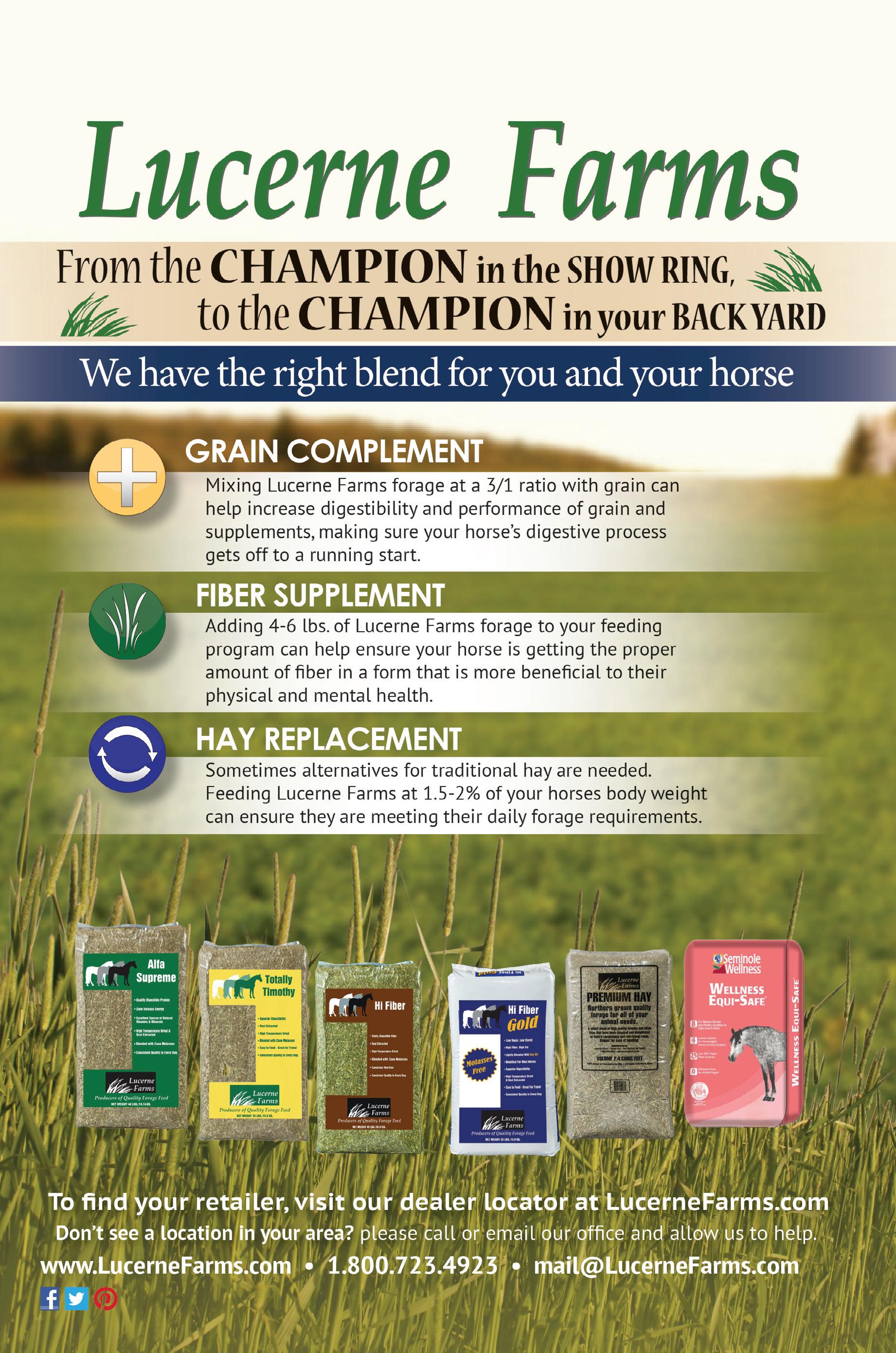
Williamsburg MA 01096
communityhorse.org
